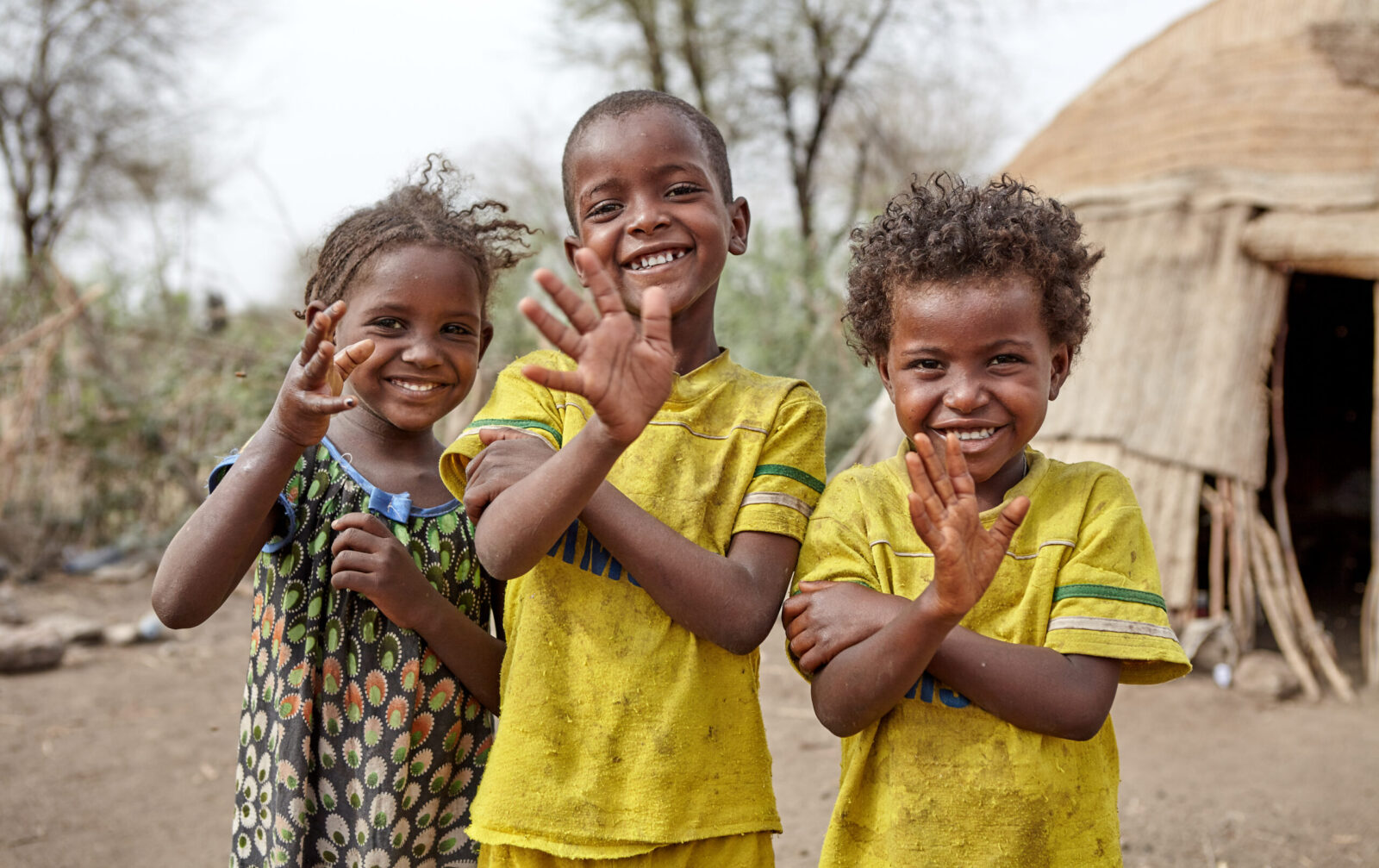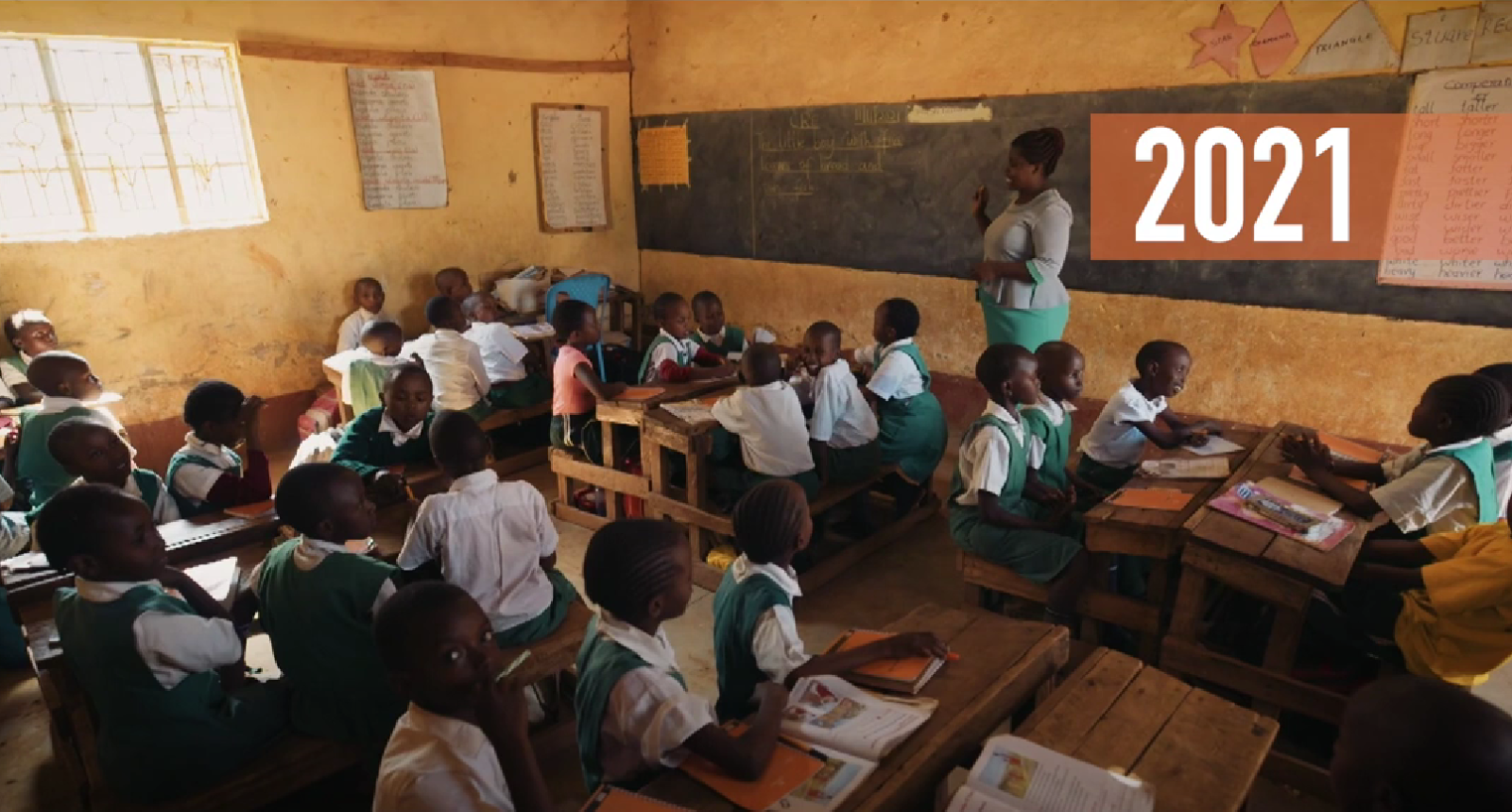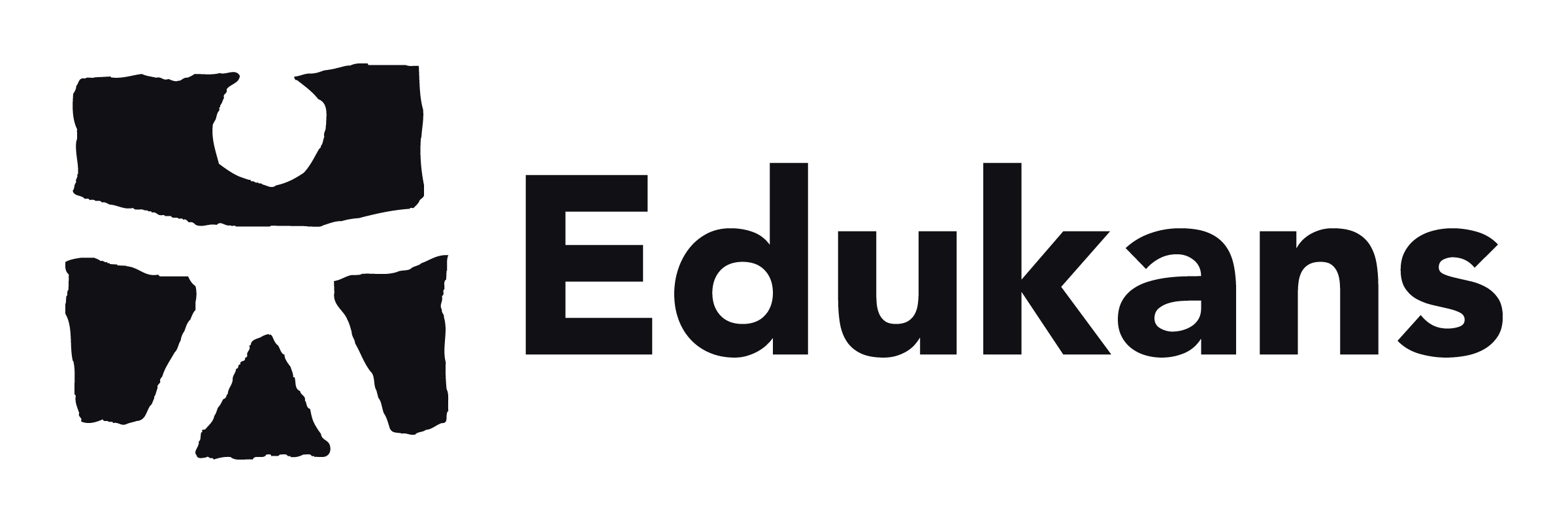Annual Report Edukans 2022
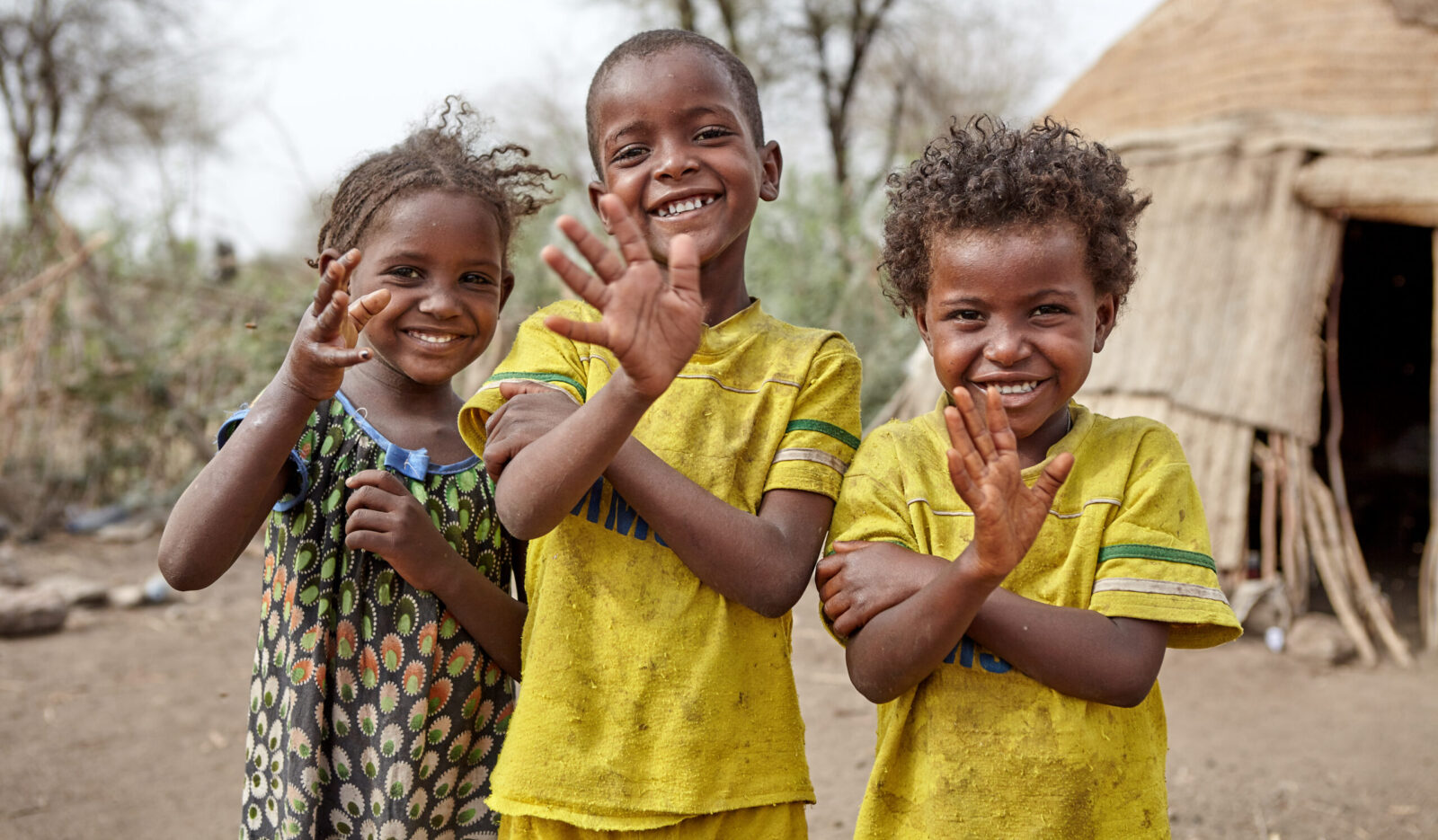


Message from our executive director

While it seems that the earth is shaking to her core, literally and figuratively, it is important for us to be able to continue offering our children hope and perspective. This starts with education and the opportunity to learn. No matter what happens, every child has the right to good quality education.
Education is the most powerful engine for progress. Edukans is committed to Unleash the Power of Education. Our worldwide mission is to create opportunities, enabling children and young people* to shape their futures with confidence. When living in Uganda, I had the privilege of experiencing how powerful education can be for children, adolescents and their families. Going to school is so much more than learning how to read, write or do mathematics. It is also about forgetting your daily worries and learning to make friends. And about adolescents grasping the opportunity to learn technical and life skills, so that they can start a small business, giving them the opportunity to take their future into their own hands.
We serve children and young people by providing our experience and expertise in the improvement of education on a structural level. Edukans is committed to improving the quality of education through four programmes: Basic Education, Skills for Work and Life, Education in Emergencies and Exchange.
I strongly believe in collaboration and social connections. We achieve more through collaborations with our partners across the world and by involving governments, donors, international and national partners, and the private sector in Edukans programmes. We strive to create an optimal learning environment by supporting teachers in enhancing their pedagogical skills, assisting school management, and involving parents and the wider community. It is great to see teachers become stable factors and role models for children and young people. We are enabling young people acquire valuable skills and find their voice, with the ambition of helping a new generation to work towards a sustainable and equal future.
Last year in Kenya, I saw the importance of engaging with young people during their learning processes. They told me how they understand the work opportunities available in agriculture, but also how they would like to do things differently to their parents, making use of modern technics and digitalisation.
2022 was a year of transition for Edukans. We adjusted our programmes and funding strategies to align with the rapidly changing global and national environment we are working in. The development of our borderless governance and organisation is taking shape and colleagues are working together on the design and implementation of our education and operational services.
* Children in our Basic Education programmes are between 4 – 18 years old.
Young People in our Skills programmes are between 18 – 35 years old.
In September 2022 we were deeply saddened by the devastating news we received about the loss of our colleague, Tarike Soboka, in a tragic security incident. On Friday 30 September several vehicles – including an Edukans vehicle with four colleagues – unexpectedly came under fire while travelling back to Addis Ababa from the Afar Region. All necessary safety measures were taken. Unfortunately, they were in the wrong place at the wrong time. Three other colleagues in the vehicle got out of the accident with injuries and are now rehabilitated and back to work. Tarike Soboka was a strong professional woman who should not have passed away at the age of 23 years old. Edukans is serving all sorts of different communities with our staff working in harsh conditions to provide education and learning support to children and young people in emergency settings. It was this selfless dedication which ultimately cost Tarike Soboka her life. On behalf of the communities and all the children, I would like to thank her and all our colleagues for their courageous commitment to continue our valuable work.
In 2022 we further grew our organisation and started new projects in all the countries we work in, both Basic Education and our Skills for Work and Life programme.
With our borderless team of professionals Edukans has made a difference through a variety of programmes:
- We have reached 456,586 children and young people of which 56,693 are in emergency situations. They received improved quality education.
- We have reached 5,033 teachers. They were equipped with the competencies to improve the quality of education.
I am proud of all the children who have increased their literacy level last year and developed their social and emotional skills. And I am proud of all the young people who have developed their skills and social competences. And proud of those who obtained a new job. Thanks to all the teachers for making the difference in the life of so many children.
All these results we have achieved together and made possible by the contribution of every staff member, through excellent cross-border teamwork.
From Teaching with Impact, Social and Emotional Learning to Skills for Work and Life: through our comprehensive education approaches we ensured that almost 500,000 children and young people could embrace their right to learn. Thanks to the generous donations of our partners and donors we have made high quality education possible for them.
Warm regards,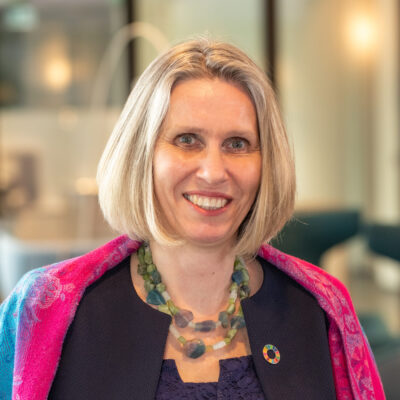
Petra van Haren, CEO Edukans
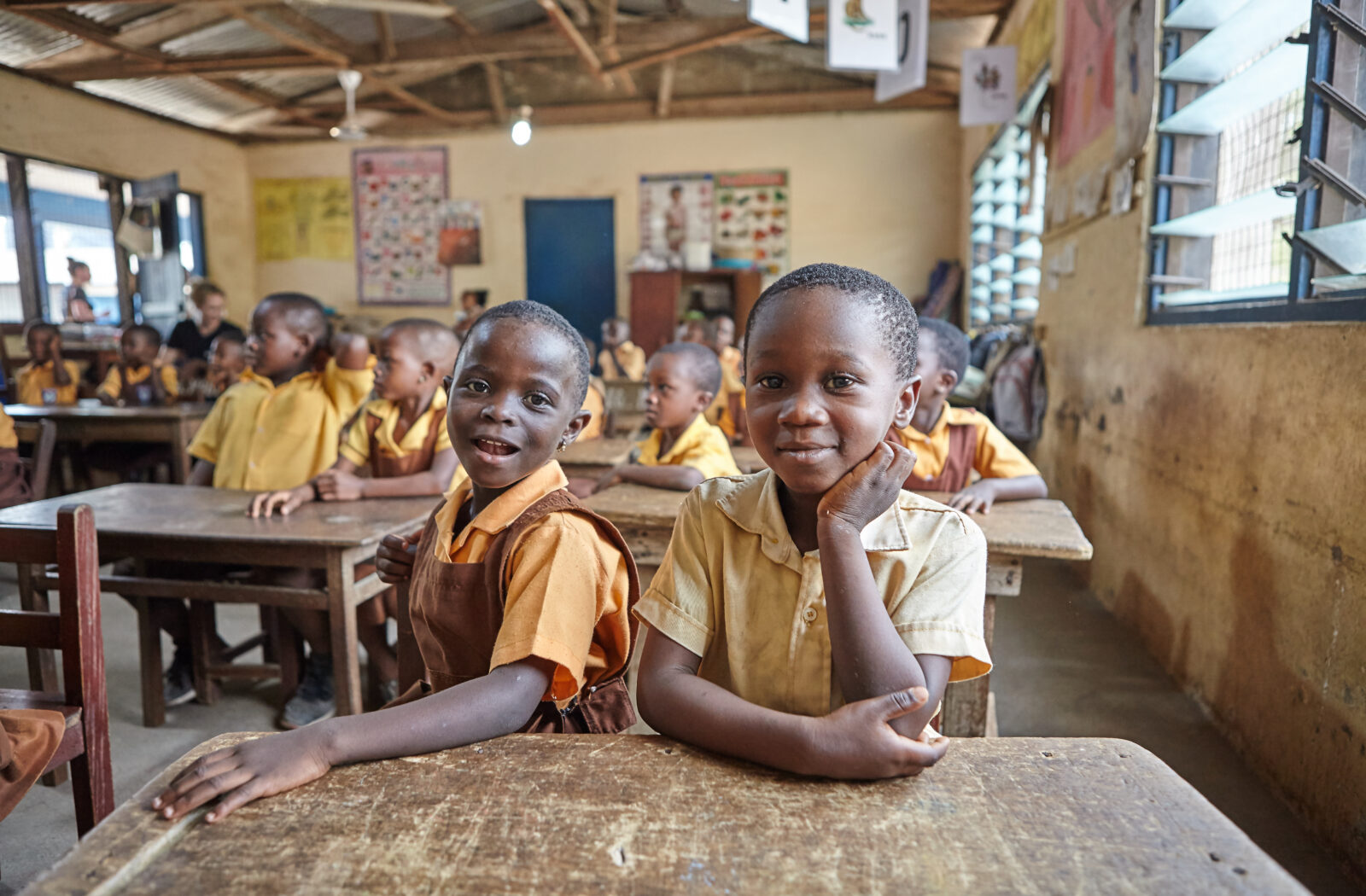
What did Edukans achieve last year?

Our results in 2022


Total reach:
456,586 children & young people
received improved quality education
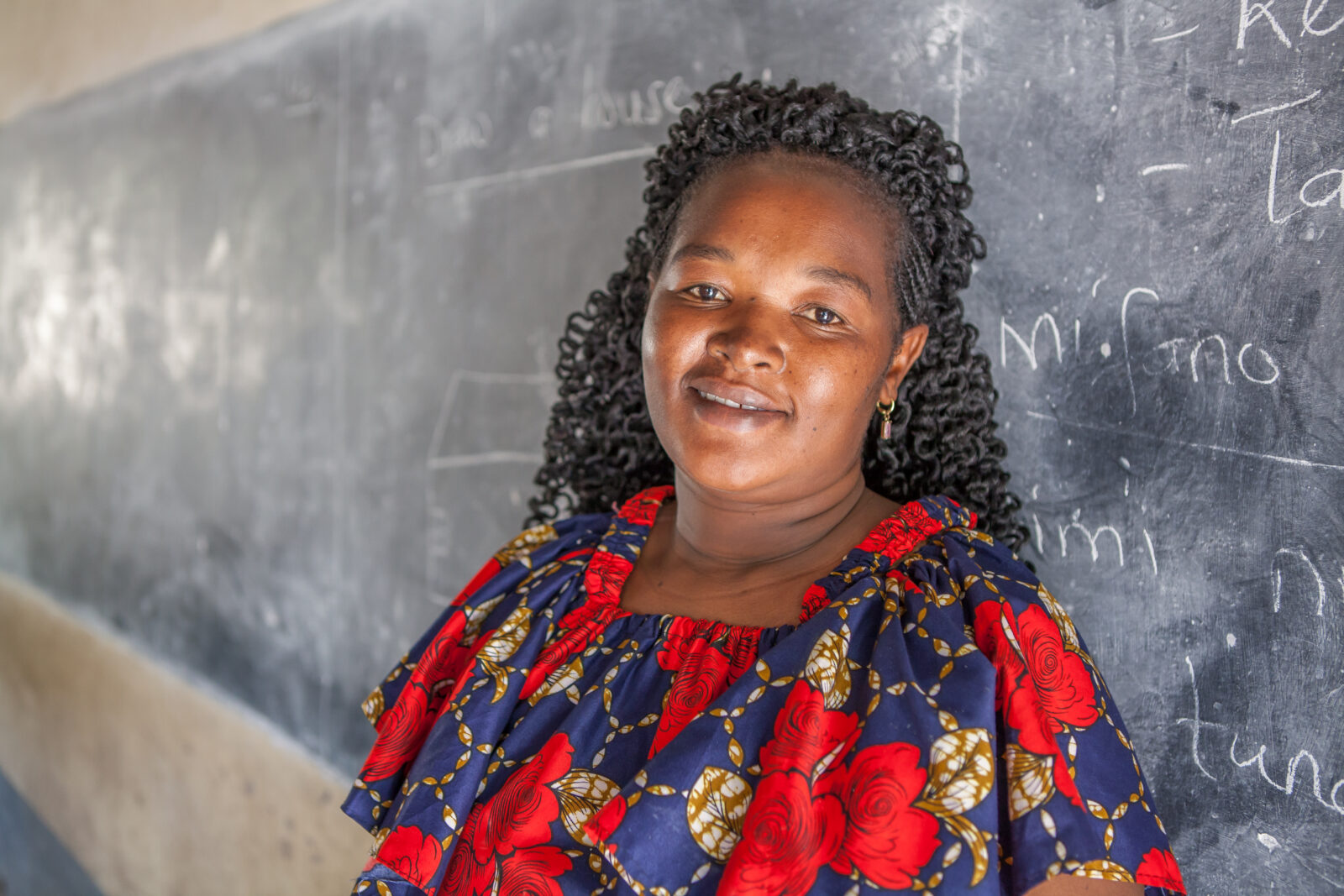

Total reach:
5,033 teachers
were equipped with the competencies to improve the quality of education
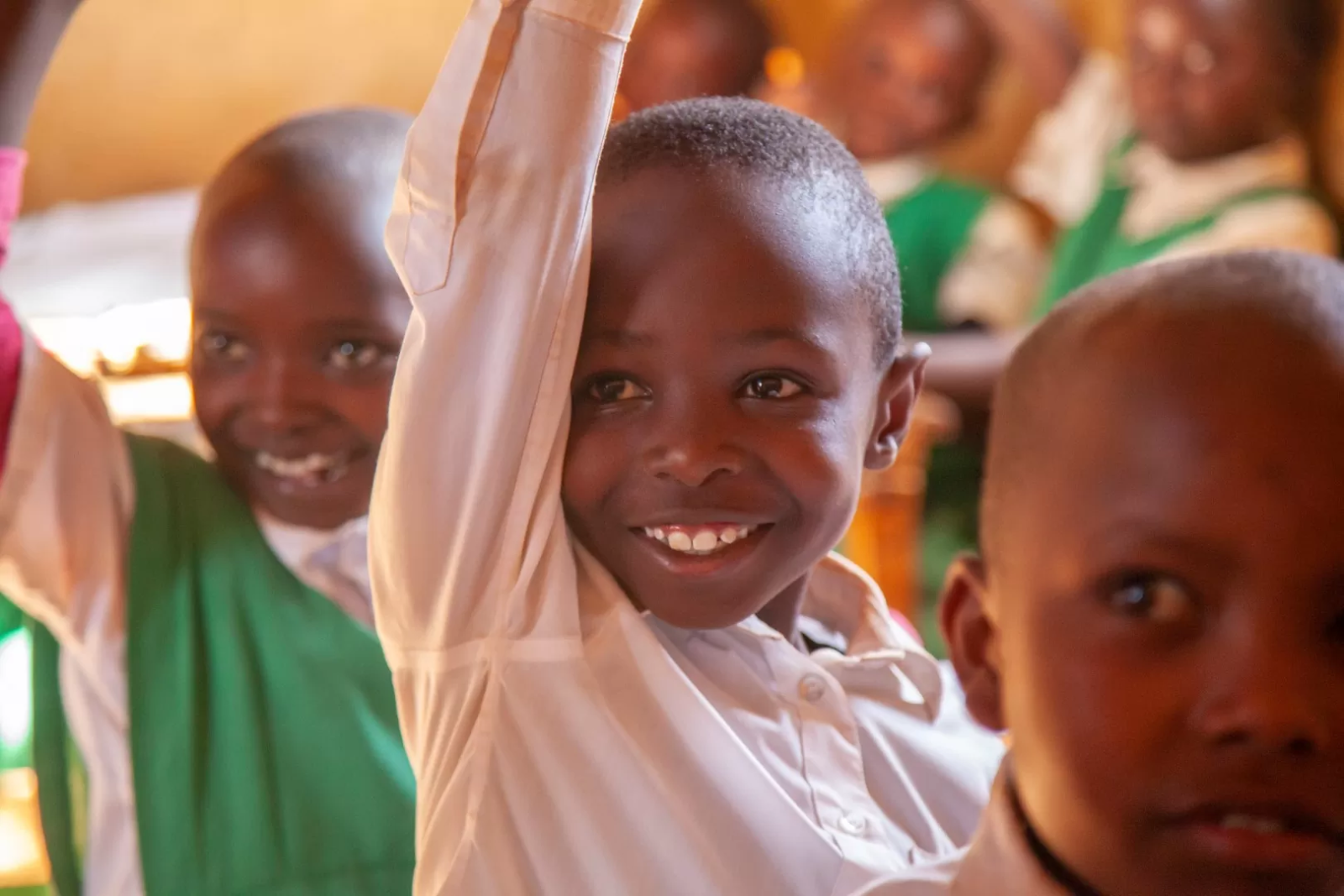

Basic Education
378,883
children received improved quality education

Basic Education
3,095
teachers developed their pedagogical skills

Basic Education
1,173
Star Schools improved the quality of education for learners and teachers

Skills for Work and Life
16,450
young people developed their skills in preparation for work and life

Skills for Work and Life
739
teachers were equipped with the competencies to teach Life Skills
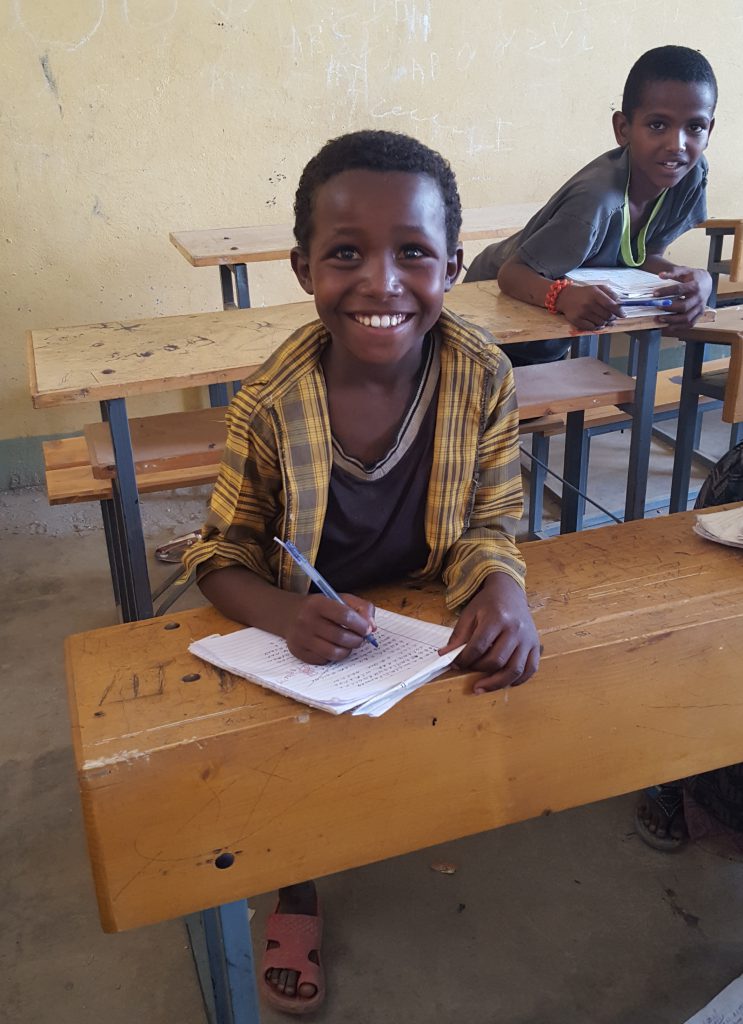

Education in Emergencies
56,639
children and young people received quality education in emergency situations

Education in Emergencies
806
teachers were trained in child-centred pedagogy and learning and behavioural difficulties

Exchange
4,560
young peers and 393 educational staff from the schools were reached indirectly via the program

Going Global 2022 brought together
54
pupils from the Netherlands and Uganda

Collaboration with more than
100
global and national partners and stakeholders

Supported by more than
600
donors including churches, foundations and international partners
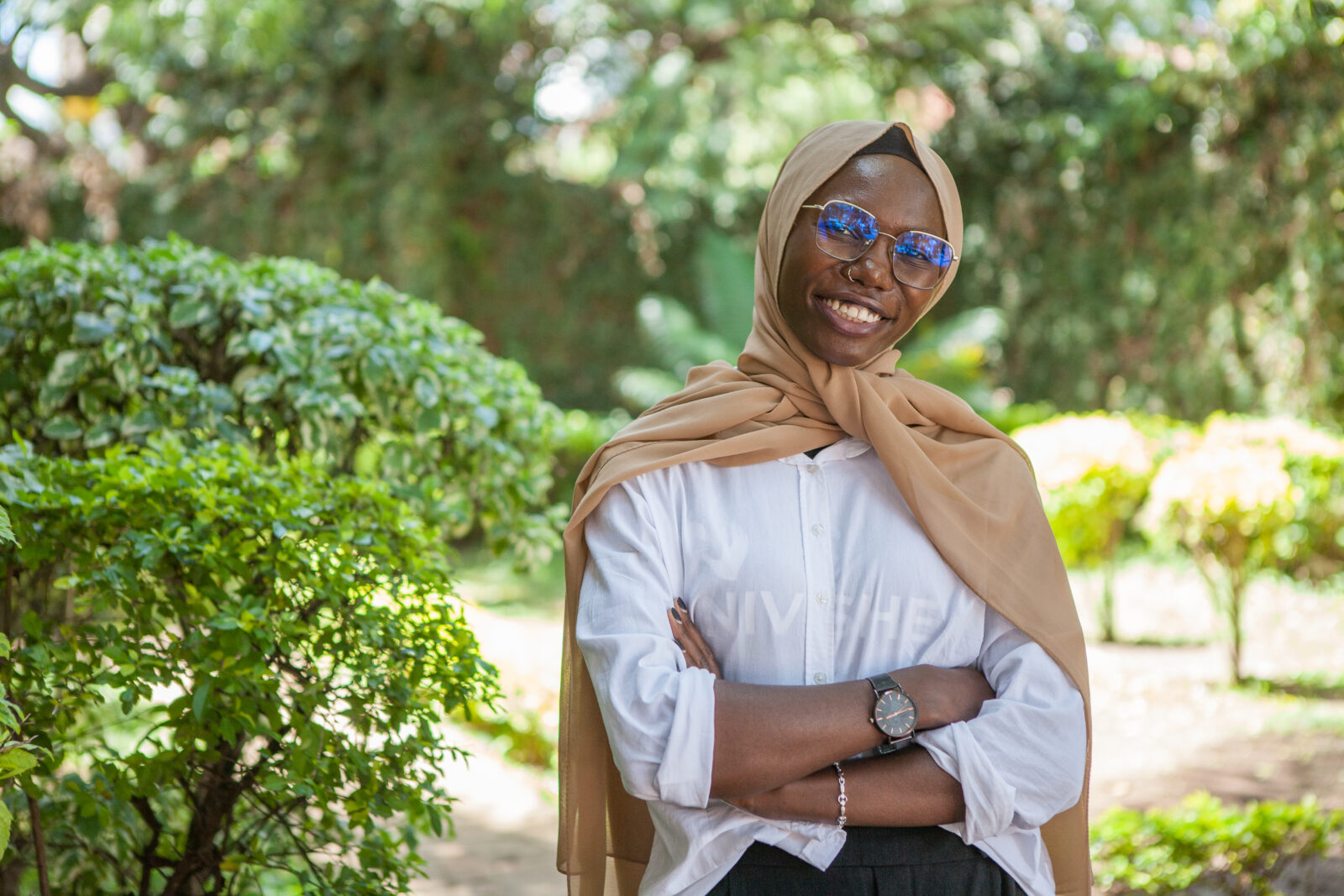
We are a
member
of global and national networks: GCE, Partos, PerspActive, KROS, INGO networks

We have worked on
42
projects
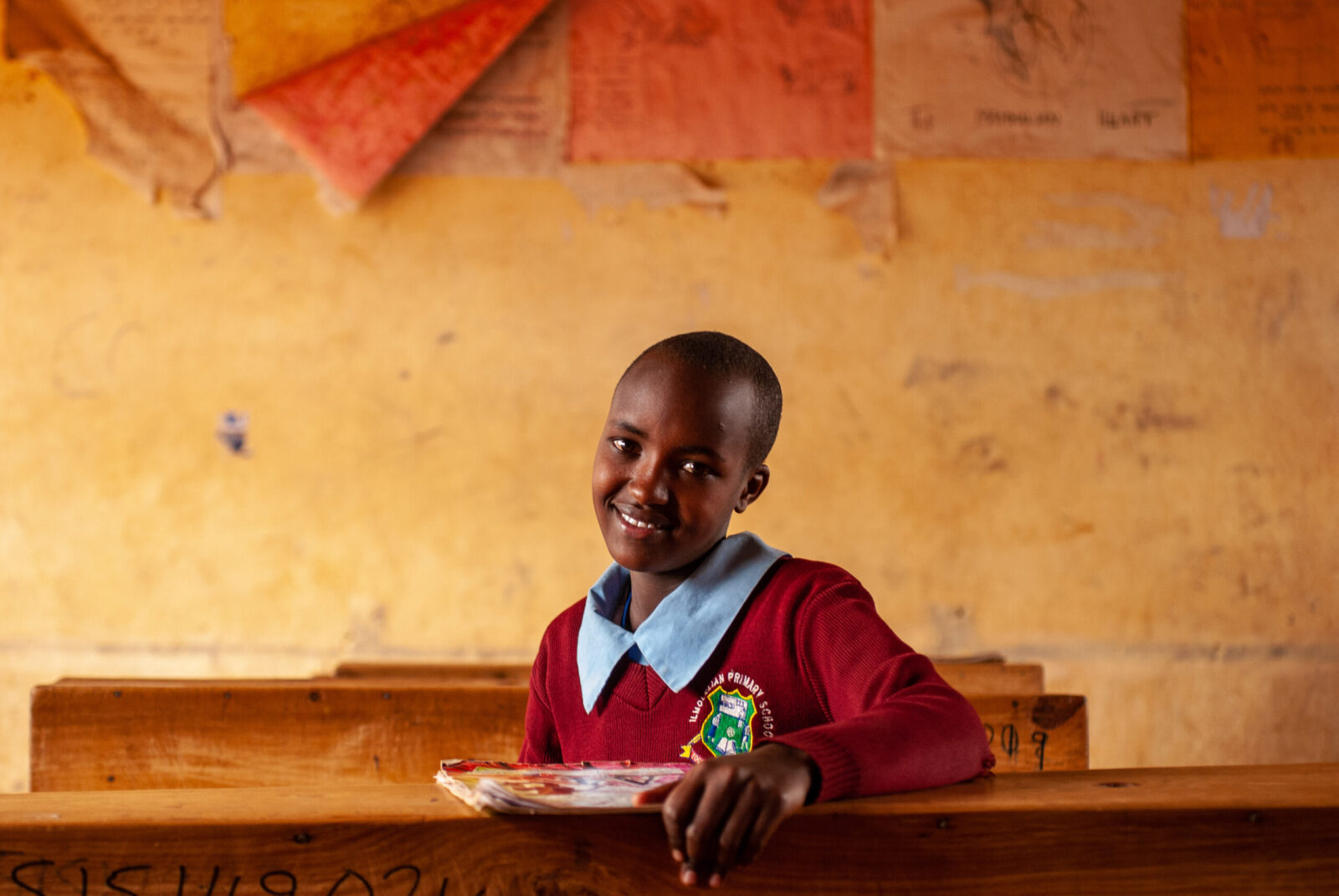

We have worked in
10
countries
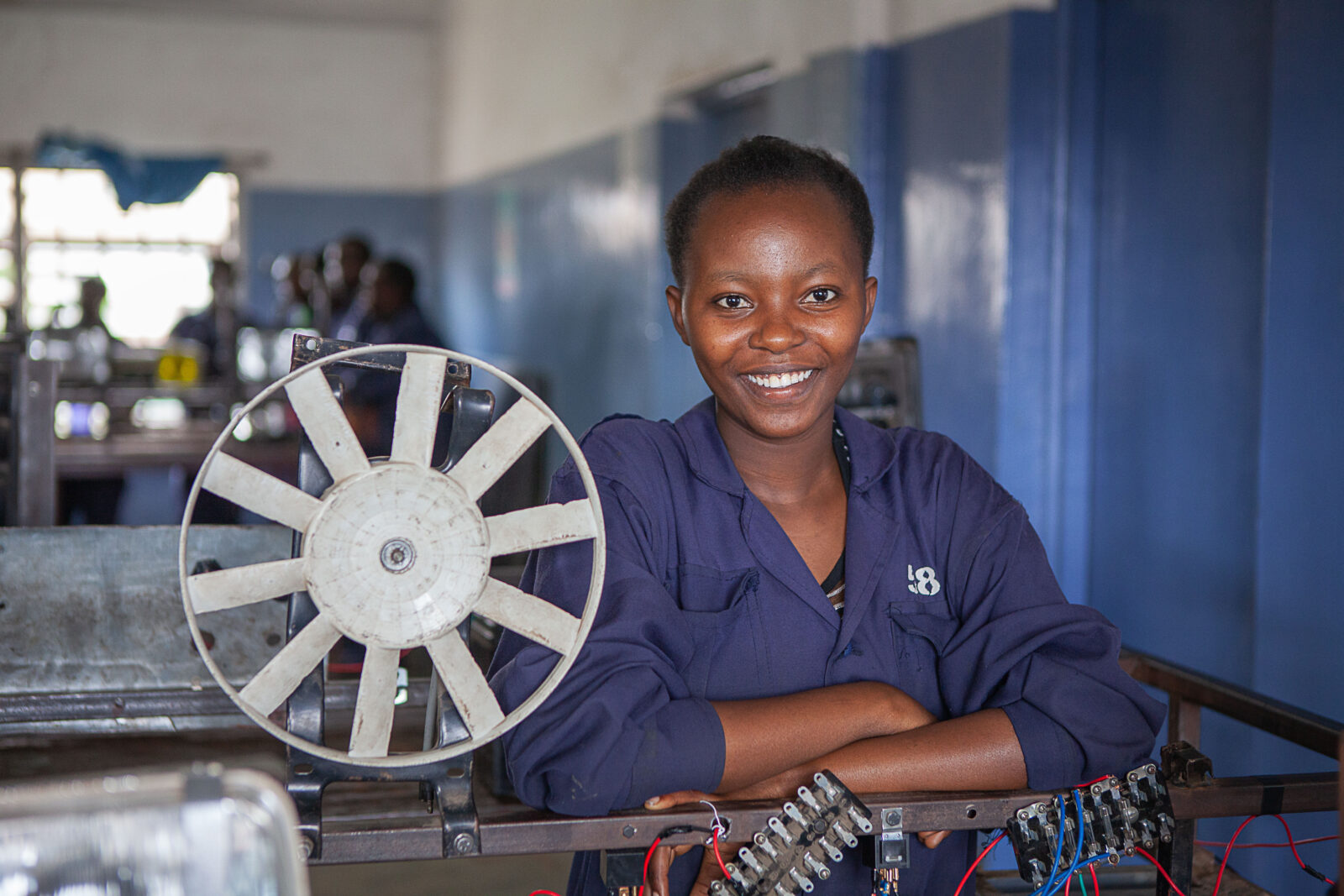

41,623
individual donors
Total income from fundraising:
€5,913,950
Total spending:
€6,559,518
On objectives
€5,223,884
On fundraising
€973,137
Management and administration expenses
€362,497
Visualisation of our work:
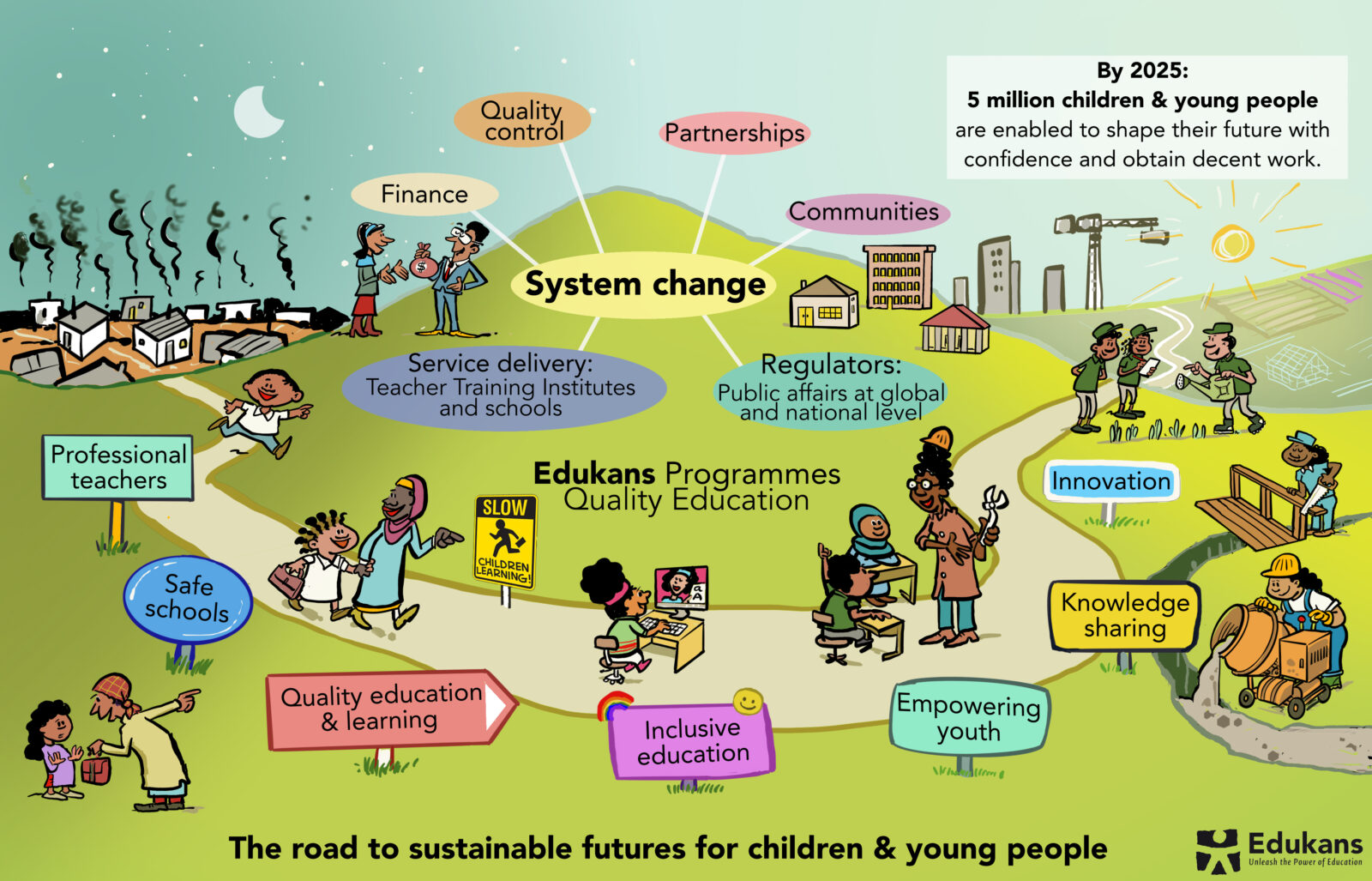
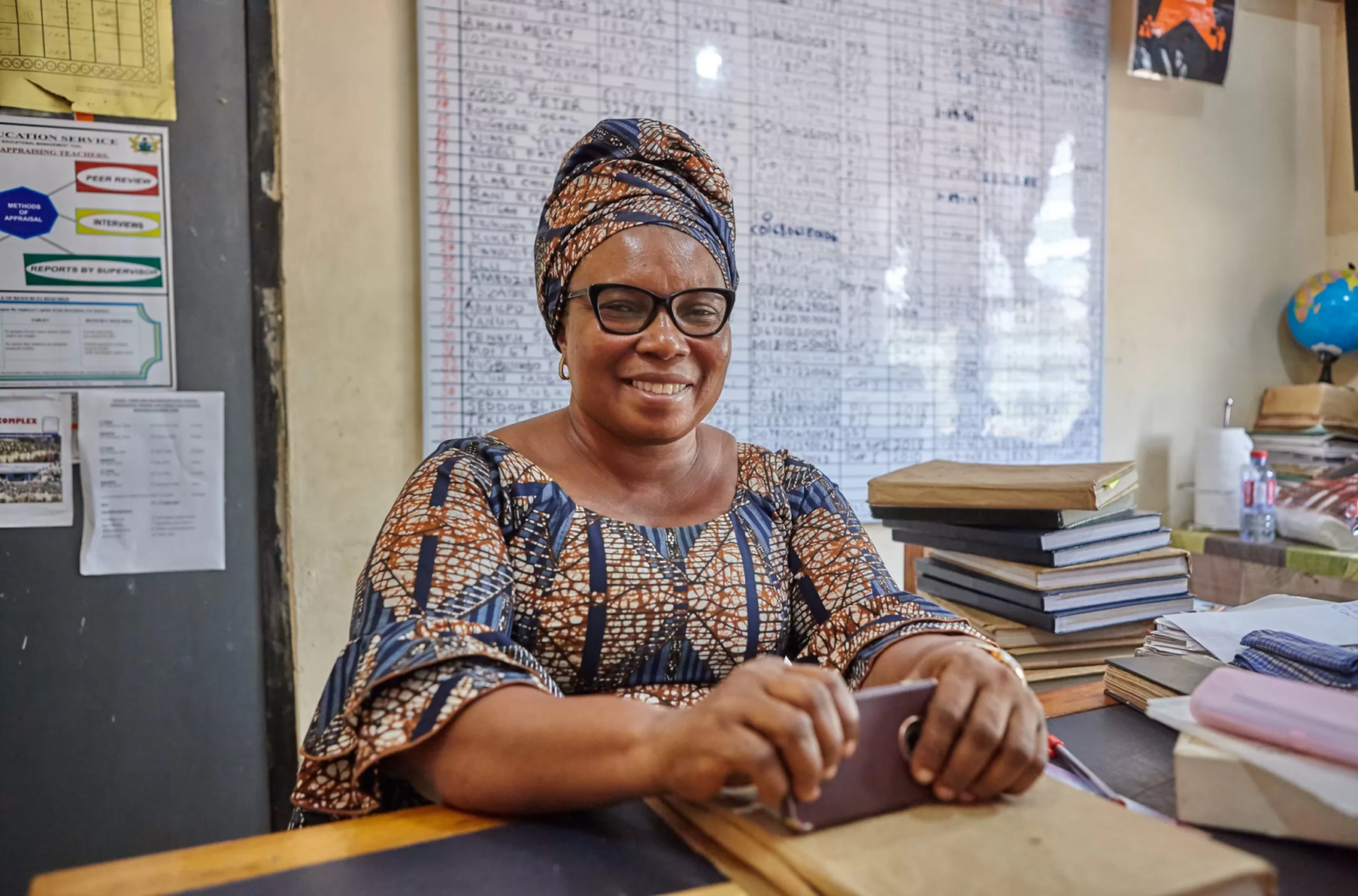
Why do we do what we do?
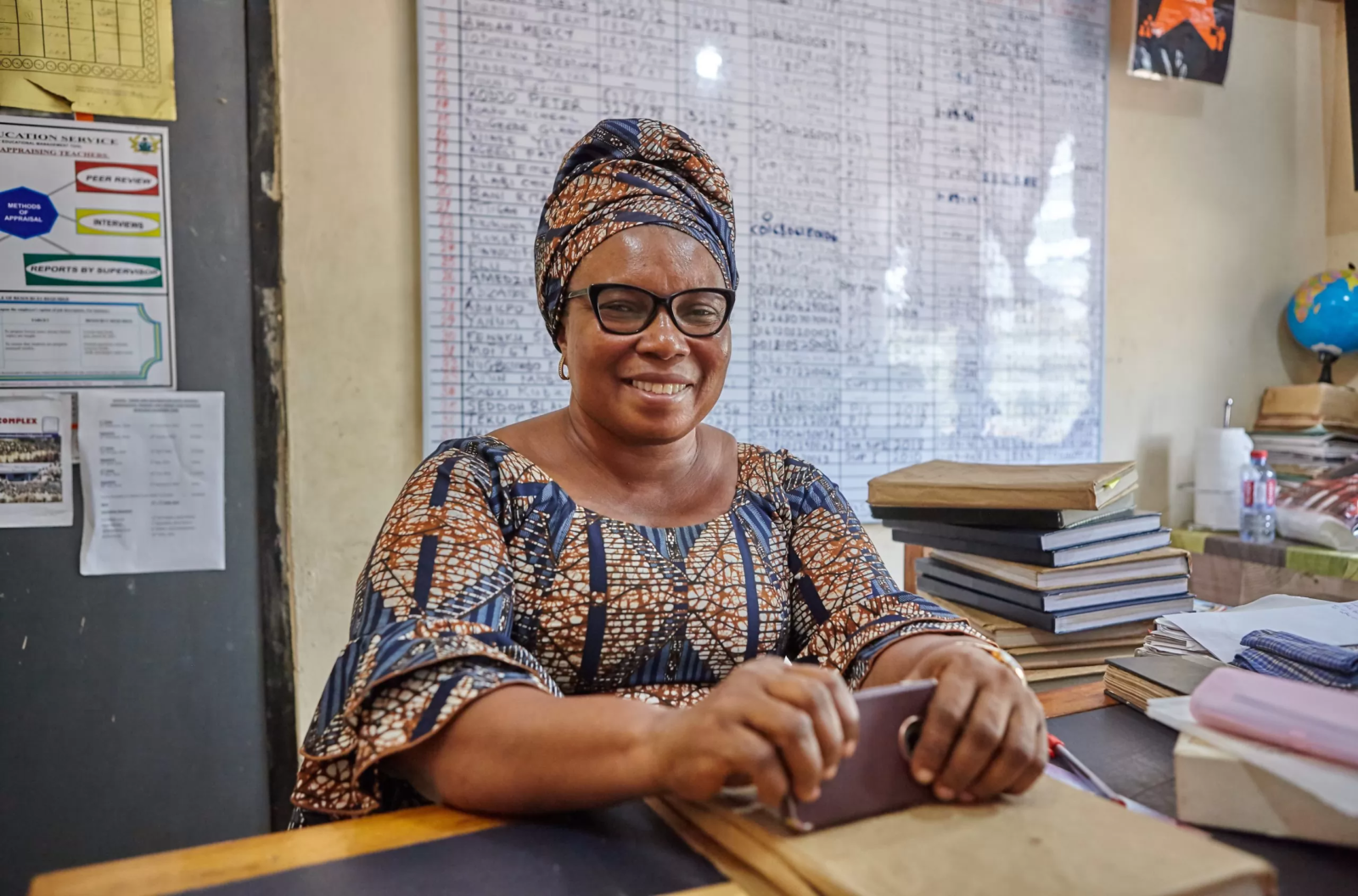
1. Unleash the Power of Education

We believe education is the most powerful engine for progress. It can enable young people to flourish as they discover and develop their talents, resulting in a healthier, happier and more successful life. It has the power to change societies from within and to support sustainable, inclusive and safe communities. Edukans is committed to unleashing the power of education. To realise its full potential for improving the well-being of people and communities, especially those who are marginalised and displaced. We work towards education that equips children and young people with the skills they need to participate in a rapidly changing world, ranging from reading and writing to social and digital skills.
Let’s unleash the power of education together.
Edukans
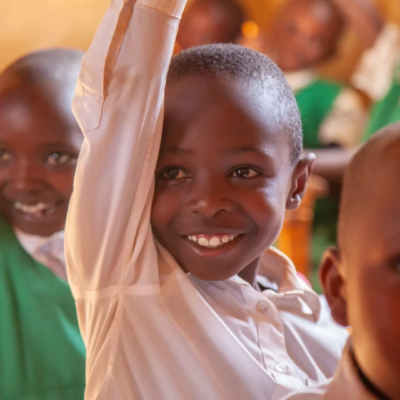
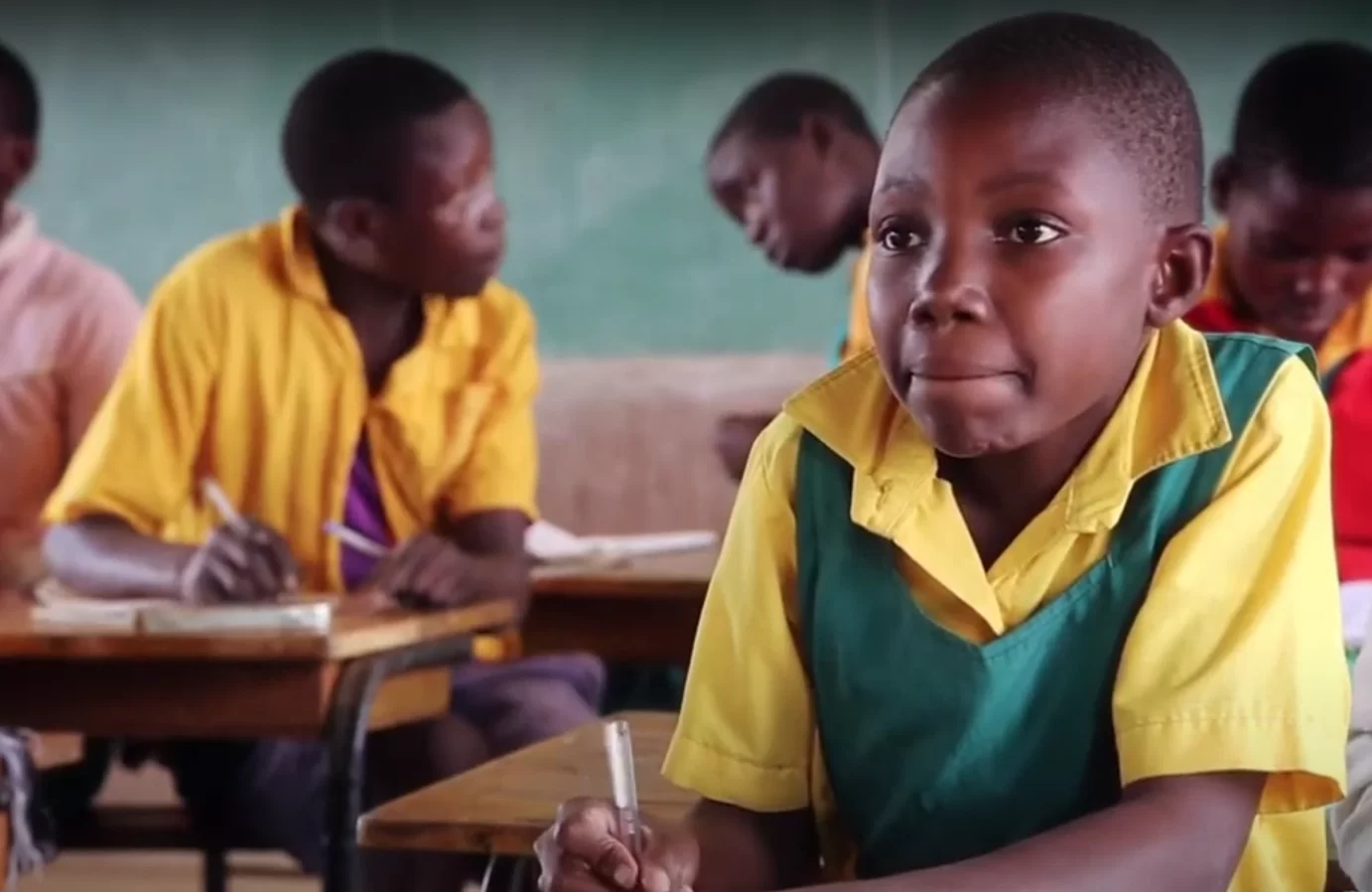
1.1 Our mission
Our worldwide mission is to create opportunities, enabling children and young people to shape their futures with confidence. We aim to serve them by providing our experience and expertise in the improvement of education on a structural level. Because education has the power to change societies from within. We believe that education is the answer to the greatest challenges of our time, such as climate change.
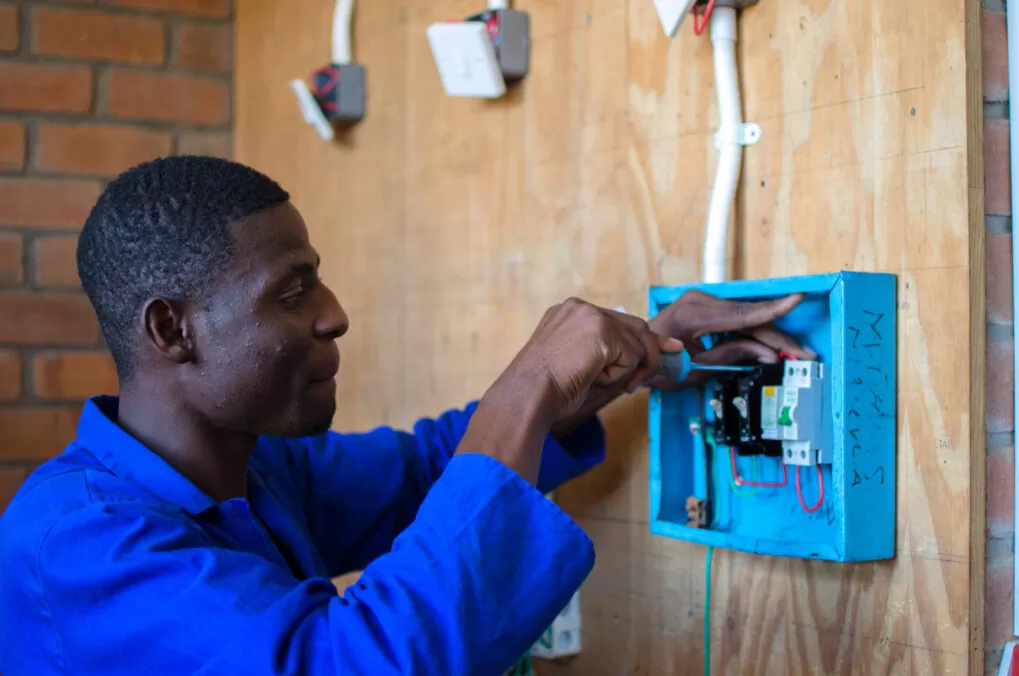
1.2 Our challenges
Around the world, approximately 263 million children and young people are deprived of education and learning for various reasons (source: UNESCO). Poverty remains one of the most obstinate barriers. Children living through economic fragility, political instability, conflict or natural disaster are more likely to be cut off from schooling – as are those with disabilities and those from ethnic minorities. In some countries, education opportunities for girls remain severely limited. A lack of trained teachers, inadequate education materials, and poor infrastructure make learning difficult for many students.
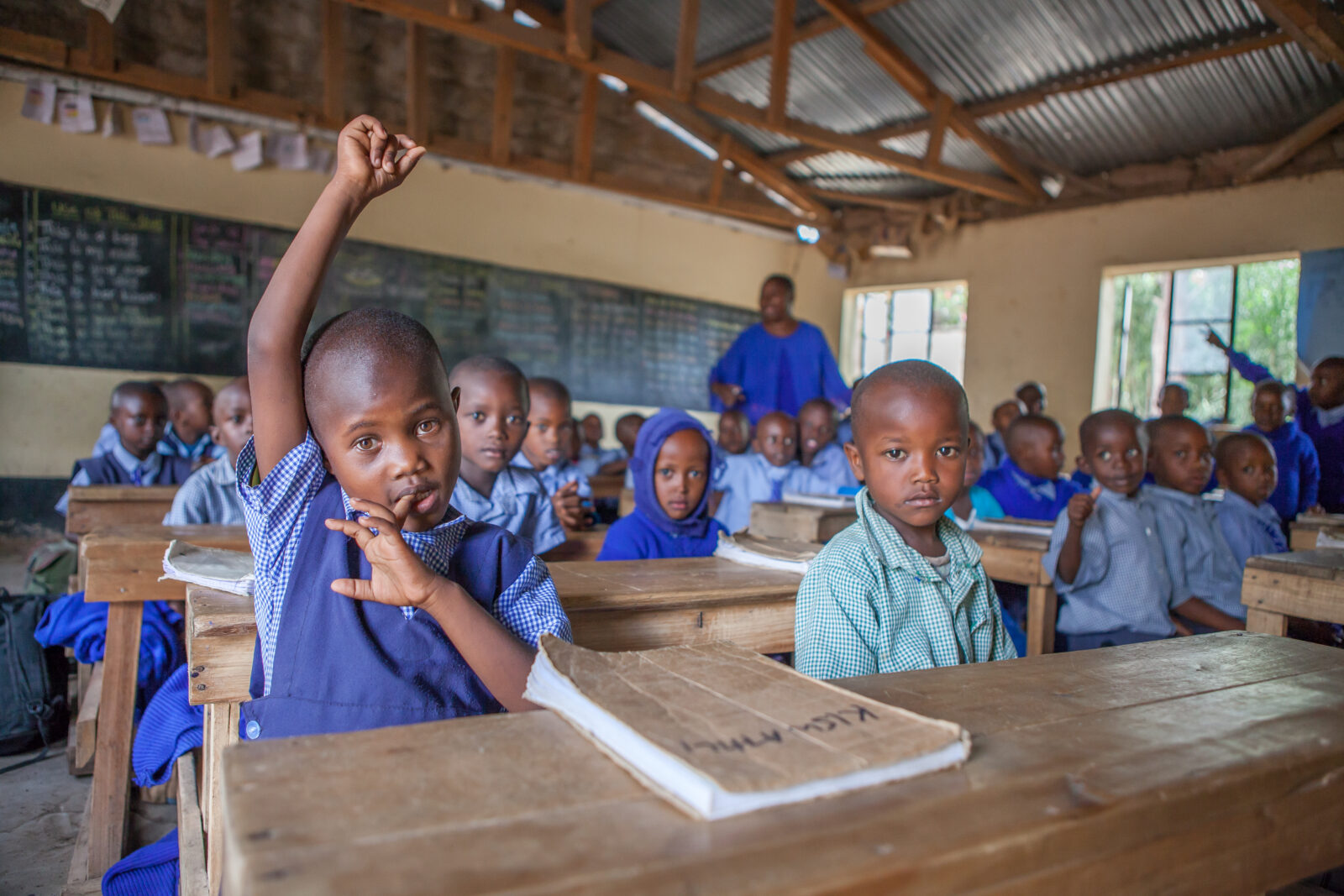

On average, one year of education is associated with a 10% increase in wage earnings. That makes education an investment for life. Relevant education also ensures people are healthier and encourages equality between men and women.
Source: UNESCO
The need of future-proof quality basic education
Globally, literacy rates have gone up, school enrolment rates have risen, and dropout rates have fallen over the past decades. But despite this many children cannot read, write or count sufficiently, whether they have attended school or not. This is primarily due to large classes, a lack of learning resources, and often insufficient teacher training and support. Poorly educated children are more likely to face a future of unemployment and therefore to remain trapped in a cycle of poverty. This ‘global learning crisis’ is a very real missed opportunity, leading to a lack of trained talented young people in developing countries.
Close the skills gap
When students do manage to complete their primary education, they are faced with the next challenge. In many developing countries there are simply fewer secondary schools which means they are often harder to reach and, in addition, attendance does not always lead to improved future perspectives. Vocational schools or training have little connection with available jobs in the labour market. This results in high unemployment rates among young people. Each year about 12 million young people enter an African labour market that creates only 3 million formal jobs, while at the same time the global labour shortage is expected to reach 85 million workers by 2030 (sources: Randstad, AFDB).
Education in emergency situations
An estimated 36.5 million children around the world have been forcibly displaced (source: UNICEF). Only half of refugee children attend primary school, and less than a quarter are in secondary school. Without an education, childhoods may be lost to child labour, child marriage, recruitment by armed groups or other life-threatening activities. In refugee situations psychosocial problems among children and young people are common. Students deal with situations of adversity, violence and loss, and they need to gain skills to build peaceful societies. Our method, Social and Emotional Learning (SEL), is so important to increase students’ resilience.
Professionalising school leaders, teachers and pupils through exchange
In a lot of countries in which we work, there is a lack of continuous opportunities for the professional development of teachers and school leaders after they have finished their training. The motivation of teachers is a challenge due to large classes, lack of materials, and insufficient support within the schools. In addition, a lack of the right soft skills among pupils is common and can make it harder for them to shape their futures with confidence, the goal which Edukans strives for. Through an exchange between peers (teachers, pupils, and school leaders from different continents) on learning, teaching, and management skills, our participants learn from each other and improve as (future) professionals in education. Aligning our exchange activities with respect for equality, sustainability and inclusiveness is an important topic, which we will address in 2023 by drafting a new strategy.
Edukans and the Sustainable Development Goals
In our efforts to achieve good-quality education for all, we work on the realisation of the Sustainable Development Goals to make the world a better place by 2030. Edukans projects and programmes contribute to SDG 4, 5, 6, 8 and 16. We mainly focus on contributing to the goals 4, 5 and 8.





“SDG 4 (quality education) is the mother of all SDGs as it supports the realisation of the other goals.”
- Rianne Driessen, International Partnerships Coordinator at Edukans
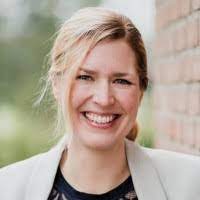
1.3 Our approach
Ambition
In 2022, we further rolled out our strategic agenda. To shape sustainable futures the education system needs to be redefined and the upscaling of our interventions is necessary, while maintaining the professional, personal, and solid method of working that is so characteristic for Edukans. The approach of Edukans aims to ensure the best possible education for children and young people and is based on four pillars: Basic Education, Skills for Work and Life, Education in Emergencies and Exchange.
Ambition 2021-2025
Basic Education
- To reach 5 million children in primary and secondary education with good education.
- To provide 100,000 teachers with training to develop their teaching skills.
Ambition 2021-2025
Skills for Work and Life
- To train 100,000 young people in skills needed for work and life.
- To train the staff of 100 TVETs in our skills methods (7-Steps to Work, Entrepreneurship, Work Based Learning, Life Skills, and Active Teaching and Learning).
Ambition 2021-2025
Education in Emergencies
- To ensure that 250,000 displaced children and 25,000 young people enjoy full access to quality education, including wellbeing, by training 6,000 teachers.
Edukans Theory of Change
With over 20 years of experience, we have developed a solid Theory of Change that is guiding our work for quality education.
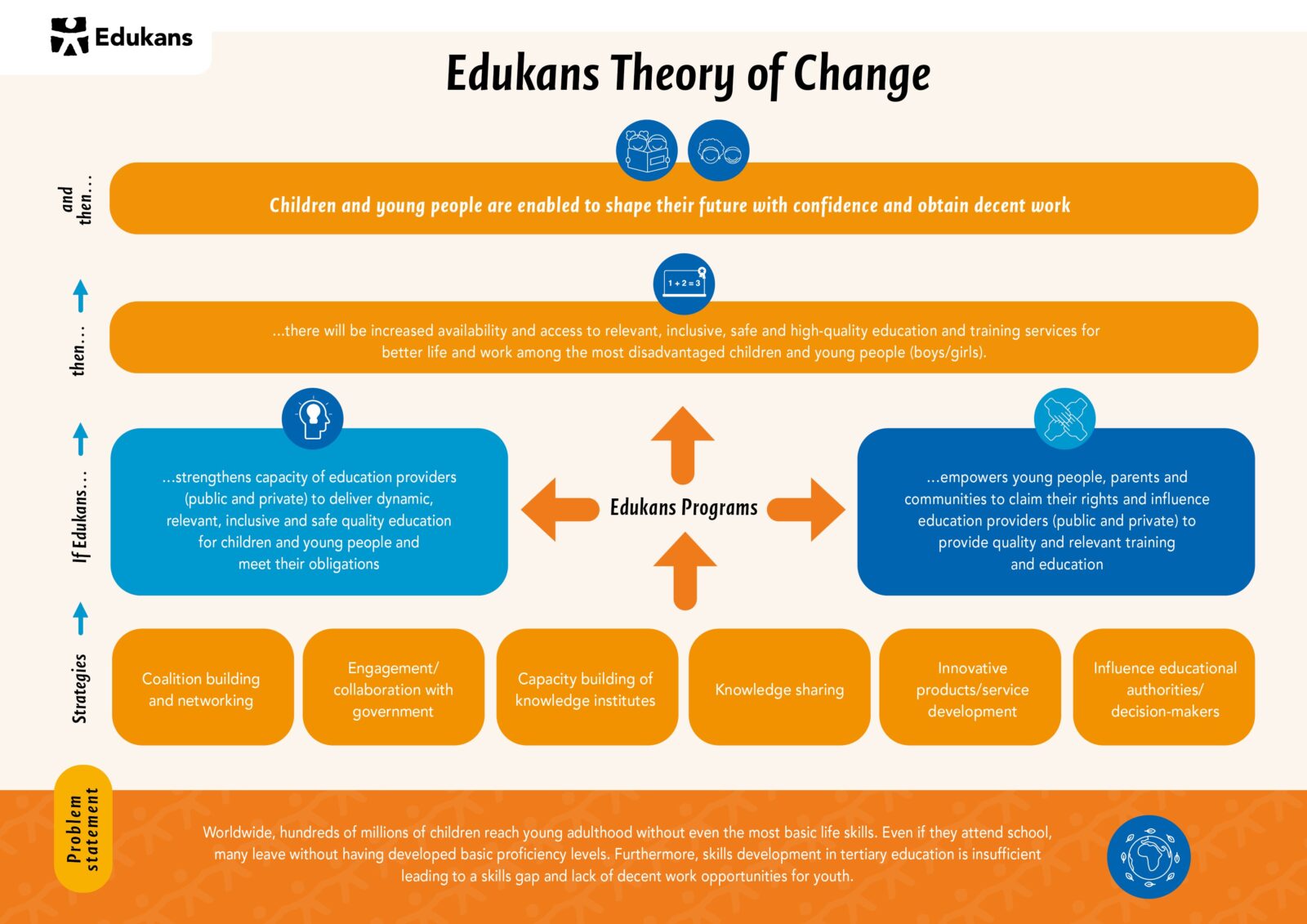
Approach: Basic Education
Edukans’ vision on quality education involves the promotion of safe, inclusive schools where children enjoy learning from well-trained teachers and develop the competencies – skills and attitudes – to continue their education. Unleashing the power of education to shape their lives with confidence.

To make our interventions a success, Edukans works with the Star School quality model and programmatic approach, having five domains for education quality:
- Learning environment
- Teaching
- Learning
- School management
- Community and parental involvement
The Star School quality model is implemented with the help of a digital (self-)assessment tool called the EDU Q-card. Within the model, the focus is on the Teaching with Impact (TWI) approach for effective teaching and learning. TWI is organised in cascading trainings via master trainers based in the teacher training institutes in each country. The trainings are also available via the SkillEd e-learning platform. We pay particular attention to the social and emotional well-being of children having developed an approach called Social and Emotional Learning (SEL) that seeks to prevent issues and build resilience by focusing on the development of social and emotional skills, often the missing piece in education.
“I’ve been amazed by the impact that Edukans does have and can have in the future. I really underestimated the impact of good teaching. I always thought: kids go to school? Perfect, sorted! But it goes so much further than that. Good education is the foundation for the future of children and young people. There is a lot of work to be done if you realize that most children don’t progress after primary school. Most children do not learn to talk about their feelings or learn that it’s okay to make mistakes. I think it’s amazing that this is all part of education.”
- Willem van Amerongen, Interim Head of Programmes, Edukans

Approach: Skills for Work and Life
Skills for Work and Life is an Edukans programme for young people which helps them to develop their skills in preparation for work and for meaningful participation in society. The programme uses several different methods making it highly effective.

Labour market relevance and quality of skills training
- Edukans ensures that its skills programmes are labour market relevant and future proof by connecting with the private sector demands. Including Life Skills, Entrepreneurship skills and climate change related skills on water, waste, and energy to make sectors more resilient towards climate change.
- We offer a continuous improvement cycle for skills training through the implementation of Edukans’ 7-Steps to WORK approach. We adapt each training to local labour market demands and improve relevance and quality continuously.
Work Based Learning
We facilitate meaningful quality Work Based Learning opportunities for young people, providing them with relevant, practical real-life working skills for the labour market.
Entrepreneurship
We support the development of entrepreneurship and financial literacy skills for self-employment. Business mentorship is set up and young people receive business start-up kits to ensure a successful start to self-employment endeavours.
21st century (Life) Skills
We promote life skills, Sexual and Reproductive Health and Rights education (SRHR), ICT skills, social-emotional learning, and life skills for lobbying to close the 21st century skills gap.
Digitalisation
The marginalised areas where Edukans often works are lagging behind in an increasingly digitalised world. They face multiple challenges to being able to respond efficiently to the external demand for new digital skills and engage in their own digital transformation.
- In this context, Edukans has developed a digital pedagogy course for TVET/Skills trainers to provide them with the support they need to engage in their digital transition, to leverage technologies for digital inclusion, and to bridge the digital divide for marginalised populations. The training provides trainers with digital skills and capacity to design, implement and evaluate learning in blended training courses.
- Furthermore, Edukans is digitalising its own training courses to make them available to even more beneficiaries and further roll out the trainings and methodologies. The training courses are available on the SkillEd digital platform.
Lobby
We lobby for certification of the practical skills of young people, gender equality in all TVET and skills education programmes and on the work floor. We also lobby for the integration of Sexual and Reproductive Health and Rights (SRHR) education in Ethiopia’s TVET curriculum.
Approach: Education in Emergencies
In our programme Education in Emergencies, we provide access to education, high quality learning, and enhanced well-being in crisis-affected contexts.

The programme focuses on:
Access
- We work with displaced parents to help them understand the value of education
- We set up temporary structures or safe spaces in which students can learn and play
Quality
- We offer teacher training in areas such as
- Protection: child-centred pedagogy, support for students with learning and behavioural difficulties and school data management
- Climate change: mainstream climate education and water management to make students better prepared and resilient to climate shocks.
- We facilitate work-based learning opportunities for young people, providing them with real-life working skills for the labour market
Wellbeing
- We promote life skills, Comprehensive Sexuality Education (CSE), Mental Health and Psychosocial Support (MHPSS), Social-Emotional Learning, Music and Art
Lobby
- We lobby for certification of the learning attainments of displaced teachers and students, the recruitment of female teachers and the inclusion of MHPSS in all education programmes
Approach: Exchange
Edukans’ exchange programmes – Going Global, World Teacher and DARE2GO – bring together teachers, school leaders and pupils from across the world. We aspire to have our Exchange programmes better embedded in and aligned with other projects in the countries, and to contribute directly to good quality education. Exchange will go through an in-depth evaluation in 2023 that will guide us in setting the right steps towards the future of the different Exchange programmes.

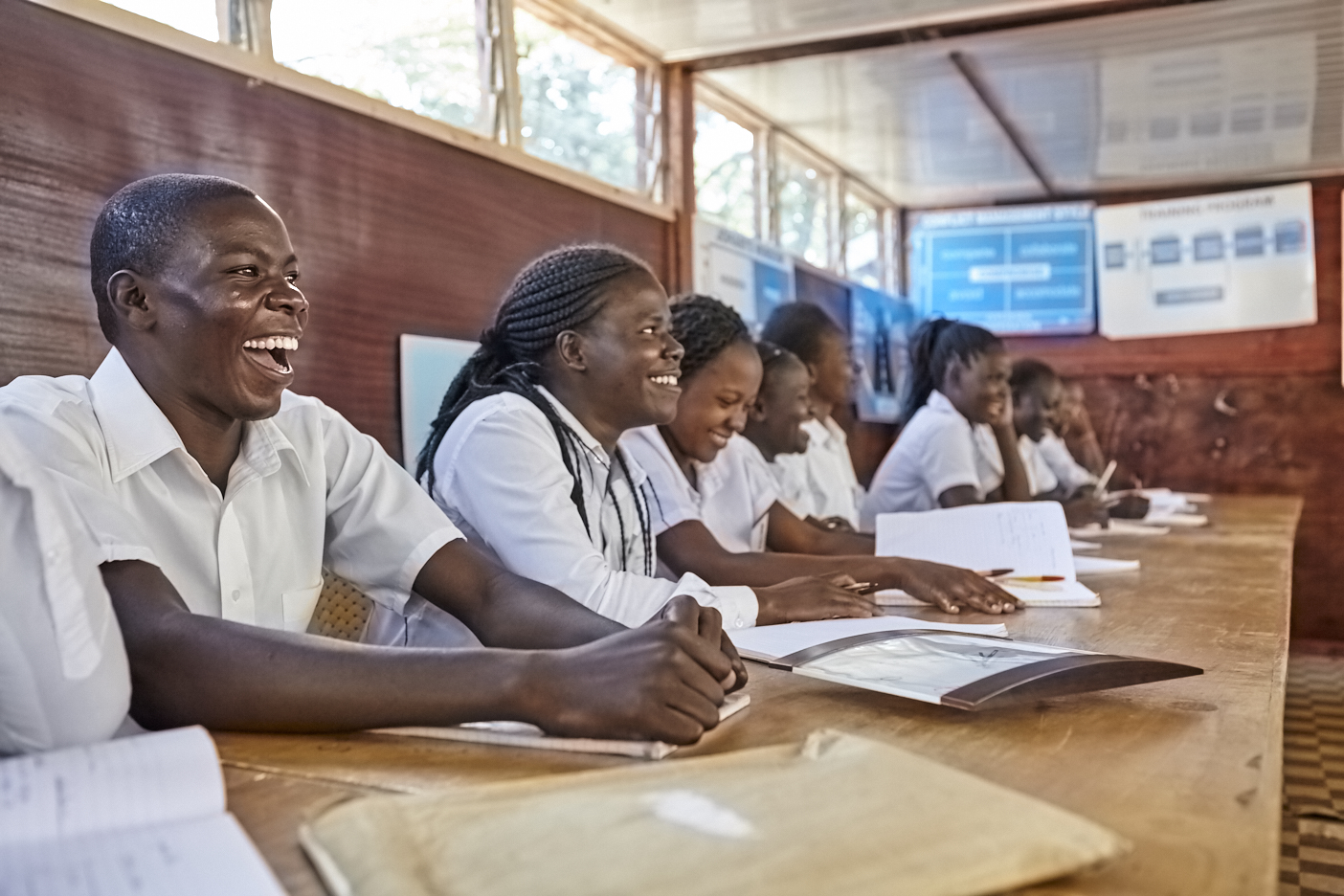
How did we make the difference?

2. Our impact in 2022

In 2022 we worked on 42 projects across the world. We have offices in Kenya, Ethiopia, Malawi, Uganda and the Netherlands. We have reached 456,586 children and young people and 5,033 teachers. Although these are good results, not all targets have yet been realised, due to challenges in obtaining funding and implementing the system strengthening and upscaling strategy. Through our comprehensive education approaches we ensured that these children and young people could embrace their right to learn. Through our scaling-up approach we do expect to accelerate our impact and reaching more children and youth.

We did, however, face a number of challenges. The security situation and internal conflict in Ethiopia for example, made it challenging to do our work. Some project locations were inaccessible and, due to economic problems, graduates have a hard time finding a job or starting their own business. In Uganda schools only reopened in 2022 after a two-year closure. Not all children returned to school and project implementations were delayed.
It continues to prove difficult to involve an even number of men and women in our programmes, with more men participating than women. Women unfortunately have to deal with prejudices or socio-cultural norms that make it difficult for them to participate. Giving more attention to achieving gender balance and reaching more women in our programmes is high on Edukans’ agenda.
Despite the challenges we faced, we were able to create opportunities, enabling children and young people to shape their futures with confidence.

We have worked on
42
projects

We have worked in
10
countries
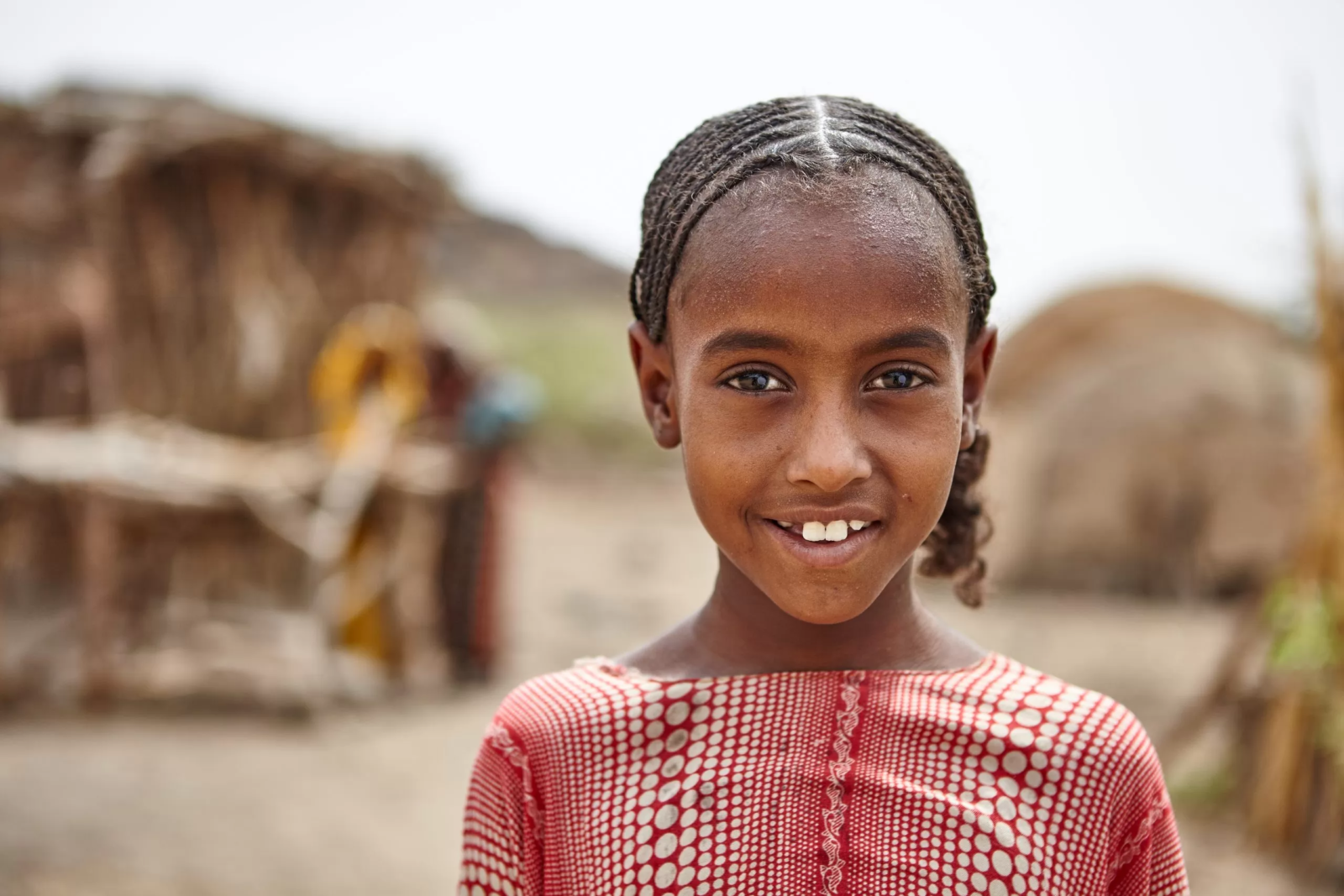

We have offices in
5
countries
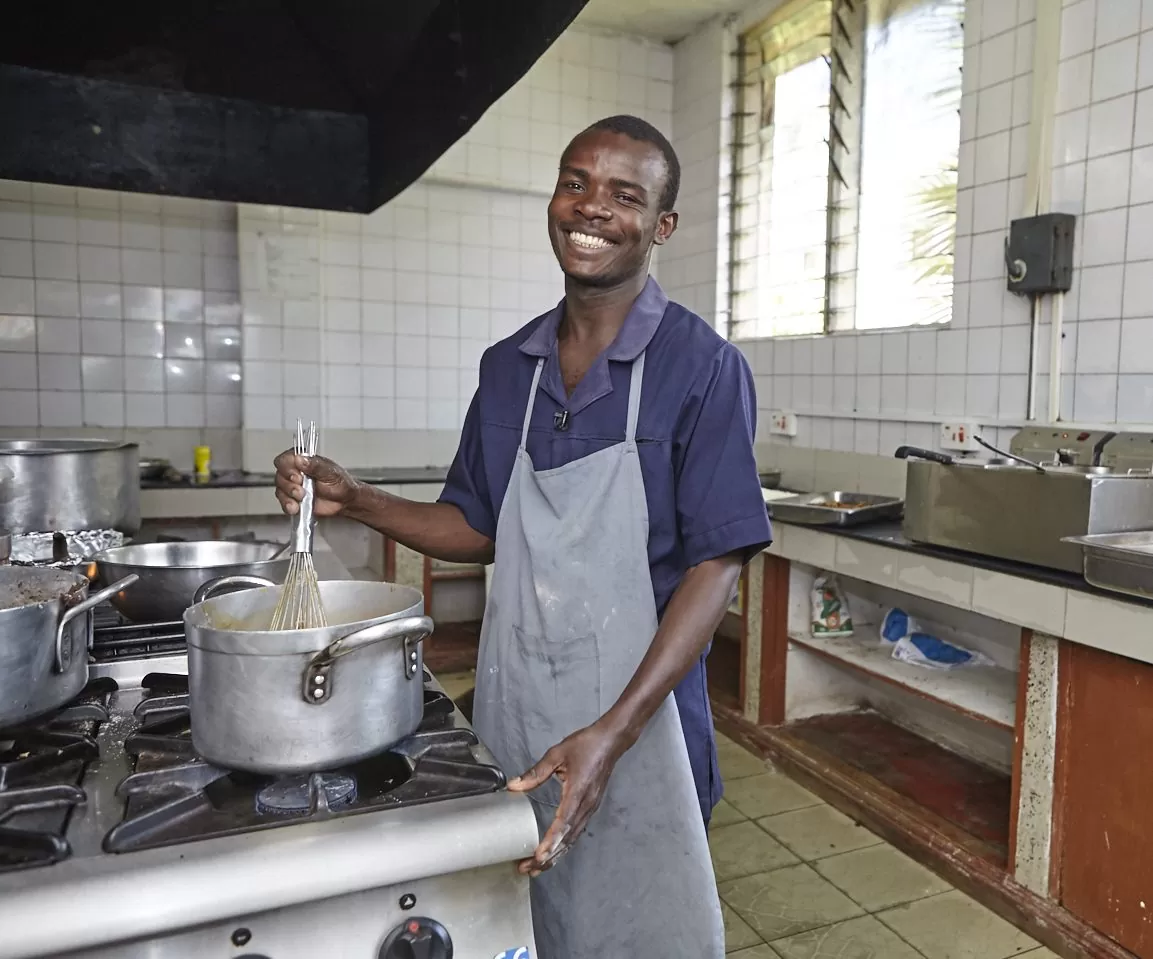

We have reached
456,586
children and young people

We have reached
5,033
teachers
Total spending:
€6,559,518

We have worked on
42
projects

We have worked in
10
countries


We have offices in
5
countries


We have reached
456,586
children and young people

We have reached
4,640
teachers
Total spending:
€6,559,518
2.1 Impact Basic education
To ensure the best possible education for children our work within the pillar Basic Education is important. We have been running projects in Ethiopia, Kenya, Uganda, Malawi, Ghana, India, DR Congo and Lebanon. In this paragraph we sum up the results and take you through several project highlights.

378,883 children
received improved quality education, enabling them to shape their future with confidence: 189,519 boys and 89,364 girls

1,173 Star Schools
improved the quality of education for learners and teachers
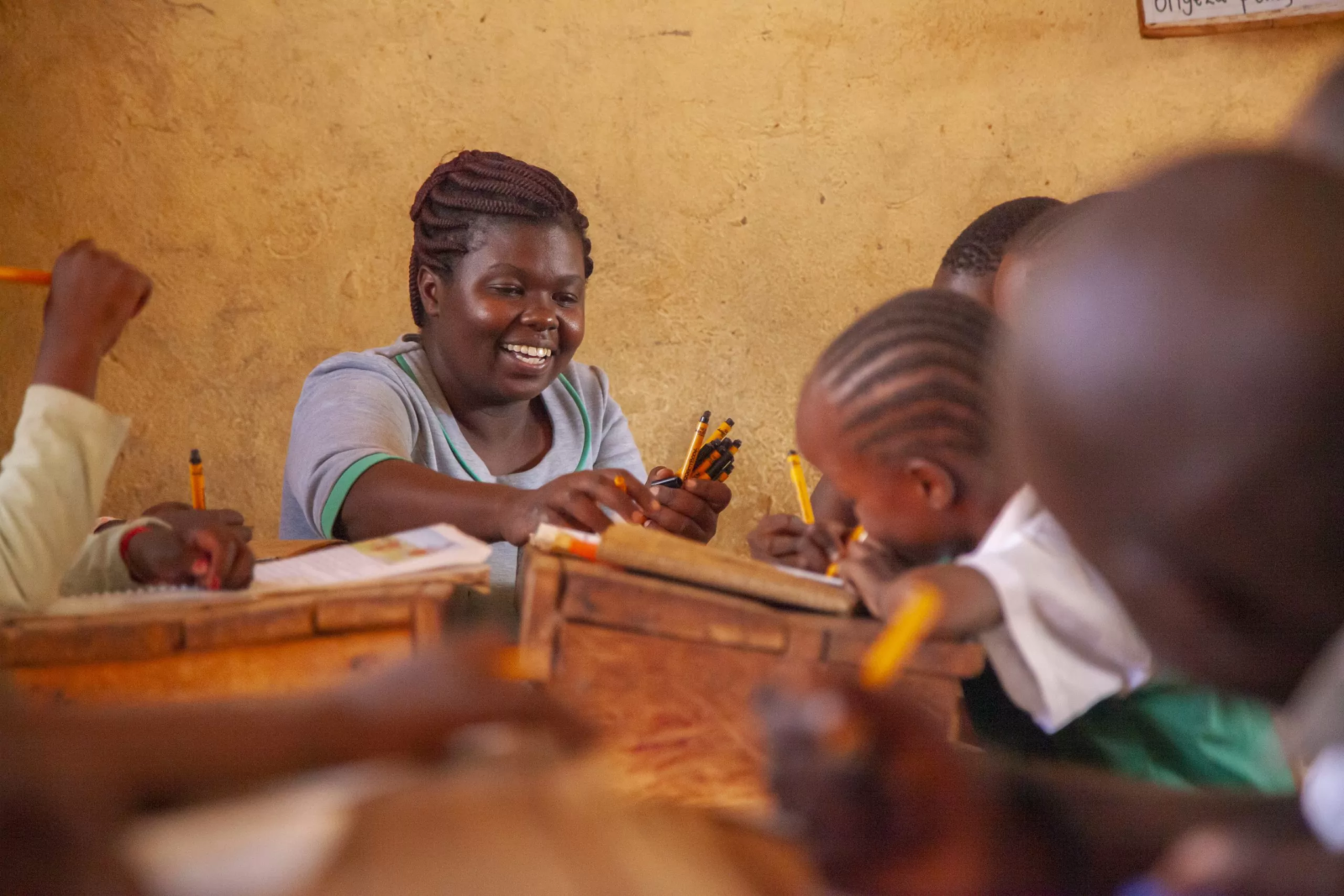

3,095 teachers
have developed their pedagogical skills in active teaching through Edukans trainings

699 school leaders
were trained to support them in managing their schools in an effective and inspiring way
Project highlight Basic Education
Uganda: empowering head teachers through EDU-Q Up!
Digital Assessments and School Improvement Plans to enhance Education Resilience in Uganda
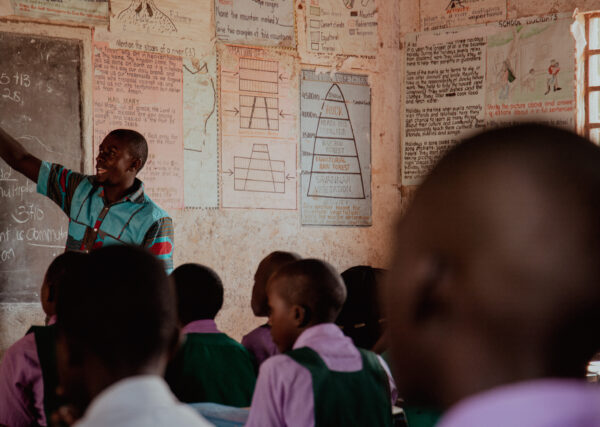
In February 2022, Edukans Uganda started implementing the EDU-Q Up! programme in 218 schools in three districts in Central Buganda and two districts in Lango Sub-Region, Northern Uganda. The beneficiaries are approximately 80,000 learners and over 400 head teachers and deputies. The programme, running up to July 2023, entails the further development and improvement of the EDU Q-card digital school assessment tool. For this programme Edukans partnered up with Enabel in the Wehubit programme, financed by the EU.
The goal of the project is to empower schools with skills and knowledge for self-assessment to generate a process of continuous quality improvement of education, by using a digital tool to generate evidence-based feedback for quality assurance officers, discussions on outcomes of assessment, and joint action planning.
Major outcomes:
- Improved, resilient schools with strong community involvement in continuous improvement and well-trained, competent teaching staff delivering better quality education.
- Two Core Primary Teacher Colleges (CPTCs) empowered to provide school outreaches and support school (self) assessments with the EDU Q-card tool.
- Schools, communities, quality assurance and outreach officers are actively using the EDU Q-card for open dialogue, continuous improvement and as a jump start for School Improvement Plans (SIPs).
Gladys Aboku, principal of Nakaseke core PTC, about the training
“I find this training and content very relevant to me as I now have rich reference material to use when preparing my lessons. With this training we are moving towards achieving improved learning outcomes for boys and girls.”
What has Pamela Kertho – Country Director Edukans Uganda – to say about this project?
“The partnership with Enabel has led to further development of the Star School approach into a practical, hands-on digital solution. The EDU Q-card unites teachers and parents in a bottom-up process of continuous improvement!”
- Pamela Kertho, Country Director Edukans Uganda
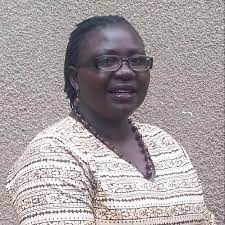
Flavia Aduku, teacher at Abutaber primary school in Apac District
“My headteacher has been conducting self-assessments for the whole school including doing lesson observations in my class. What I like about the EDU Q-card is that after the results are entered in the system you get a report on the spot that shows the areas of weakness and instant support is given. This has improved my way of doing things in my class. Now I know what it means to teach actively. My learners enjoy my lessons, are more open to ask questions and are creatively thinking and participating.”
- Flavia Aduku (52 years), teacher
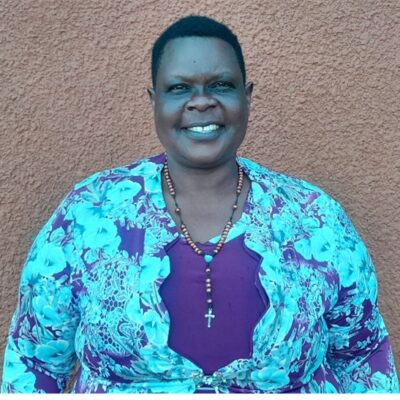
Auma Lillian, learner in primary seven at Abutaber primary school
“Edukans trained our teachers last year and since then the way we learn has changed. Our teachers now put us in groups and give us tasks to do together, which has improved our understanding of the lessons. Our teachers are encouraging and supportive to us. I participated in a meeting with my parents and the inspector at school. We are with a lot of children in our class and only have a few desks, which makes writing a bit challenging. I am happy to be able to report this problem and that additional desks are now being purchased.”
- Auma Lillian (14 years), learner
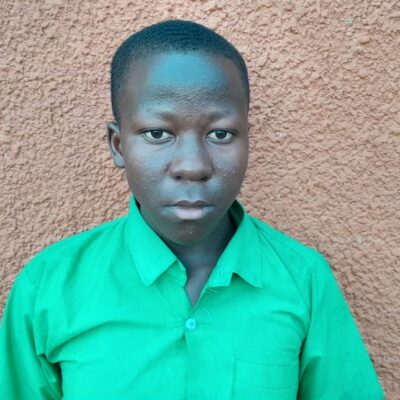
Project highlight Basic Education
Malawi: eco-education on climate change
This innovative project – an ecological variant of Edukans’ proven Star School approach – was a result of collaboration between Edukans Foundation Malawi, EEDF and the Education Commission of Catholic Archdiocese of Lilongwe, with financial support from Edukans and Wilde Ganzen. The project involved 20 primary schools across four districts in Malawi.
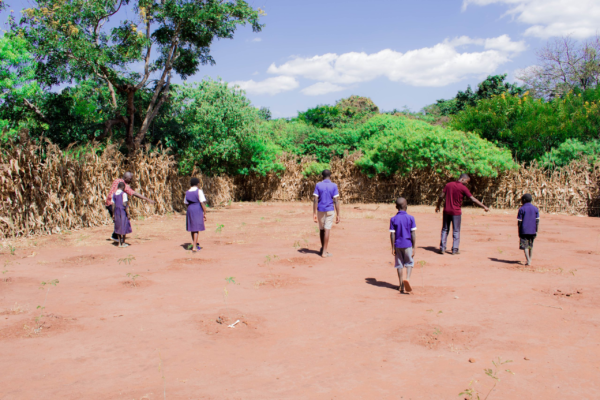
To stay relevant, education needs to address climate change and the challenges the climate crisis brings. The goal of the project was to ensure sustainable livelihoods via microprojects: school gardening, rearing animals, and selling the products. Active citizenship was promoted via Learner’s Parliaments and through development of knowledge, skills and attitudes in the education of the children. The project has been evaluated and one of the recommendations from the Ministry of Education was to adopt the Eco-Star model in its curriculum and consider scaling up the project.
Major outcomes:
- 22,268 learners (11,549 girls and 10,719 boys) were retained in school and empowered to shape their future.
- 108 teachers (31 females and 77 males) were trained and empowered with knowledge and skills in ensuring participatory and active teaching and learning in targeted schools.
- 316 community members (151 females and 165 males) were sensitised and empowered to promote quality education and rights-based approaches.
- 9128 trees were planted as part of climate change response following environmental reviews and awareness campaigns across the 20 schools.
- Microprojects were introduced to aid quality teaching and learning as well as enhance sustainable livelihoods and practices.
How we have made the difference with this project:
- Teachers integrated practical aspects of teaching into the existing curriculum while learners and the community gained skills necessary for self-sustaining livelihood activities such as vegetable farming and animal (poultry/pig) farming. The project has successfully cemented the relationship between the communities and the school. The communities are more supportive of the schools than before (KII District Level TTC).
- The mode of teaching and the pass rate have improved in the schools. Learners in the Eco-Star schools are doing better than in the past, with the pass rate increasing from 40% to 65% (KII District Level, DEM).
- Learners with specific learning difficulties are now experiencing great confidence in the classrooms. (Salima FGD School | Level Chikowa)
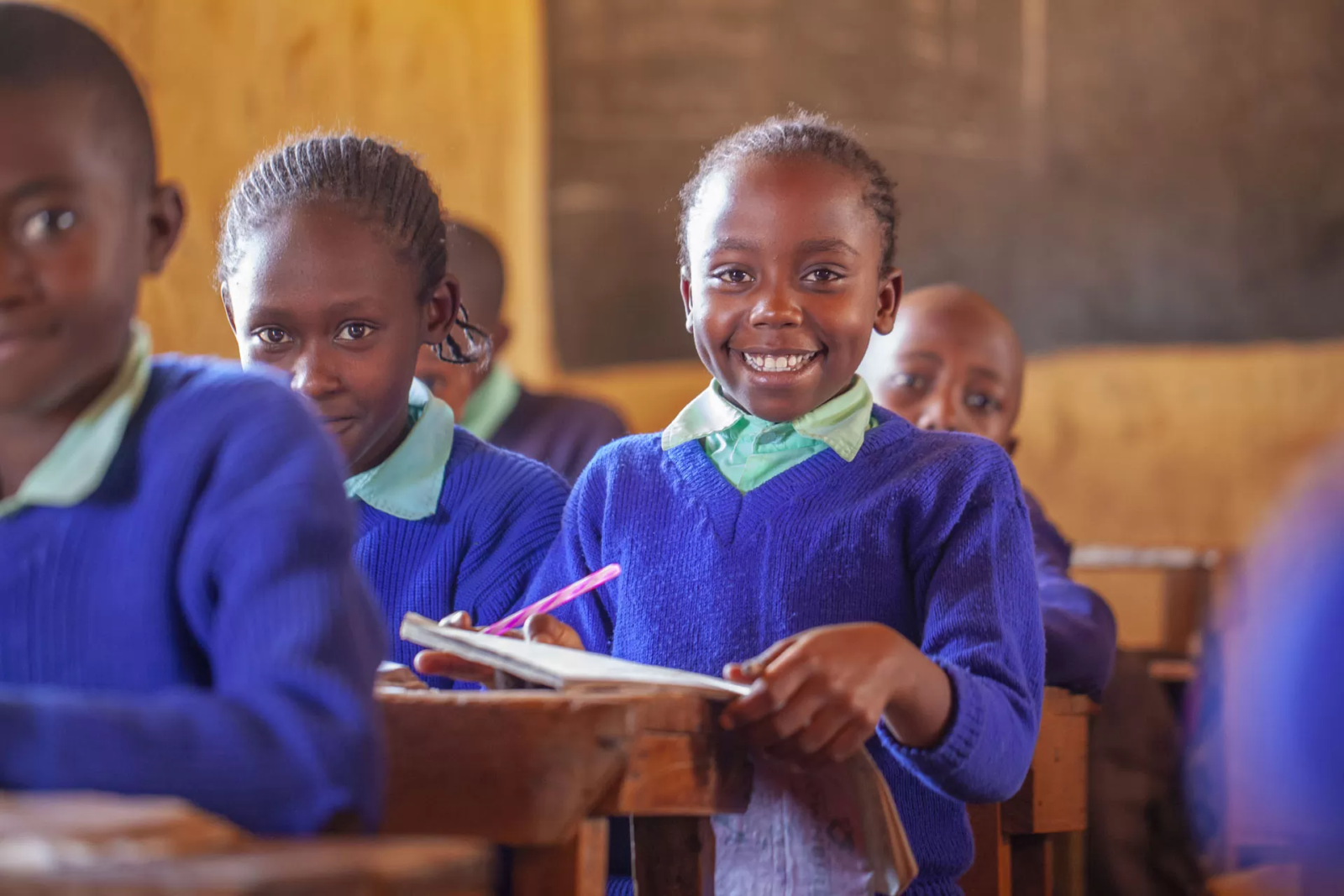

Project highlight Basic Education
Kenya: Teaching with Impact (TWI)
The project Teaching with Impact (TWI) was implemented in Kenya. The main objective of the project was to improve learners’ writing skills and performance in Maths and the Arts by employing Correctbook resources to reinforce active learning methodologies. A Correctbook is an erasable notebook which can be used for multiple years.
Major outcomes:
- The project reached 97 schools and 45,600 learners with 1,101 teachers being trained by 32 teacher trainers.
- Almost 46,000 learners are now empowered to continue their education and have better problem-solving and creative skills.
An effect study carried out in Elgeyo Marakwet proved the impact of this project:
- The TWI intervention improved the quality of instructional practices and achieved better learning outcomes.
- The results show that the repeated use of the Correctbook in different maths and writing tasks led to improved learner performance.
- Based on the difference in mean scores, the average intervention effects of the TWI for maths were 4.4 in grade 3 and 9.3 in grade 5. The good achievement was further demonstrated as significant using the T paired sample test. The average intervention effects of the TWI for writing were 2.5 for grade 3 and 2.8 in grade 5, illustrating significant achievements.
- The quality of handwriting also improved.
Project highlight Basic Education
Malawi: improving opportunities for children through mentorship programs
What
The School-based Blended Education Mentorship Program (SBEMPro) aims at improving opportunities for children through mentorship programmes for teachers and students, leading to greater job satisfaction and improved learning outcomes.
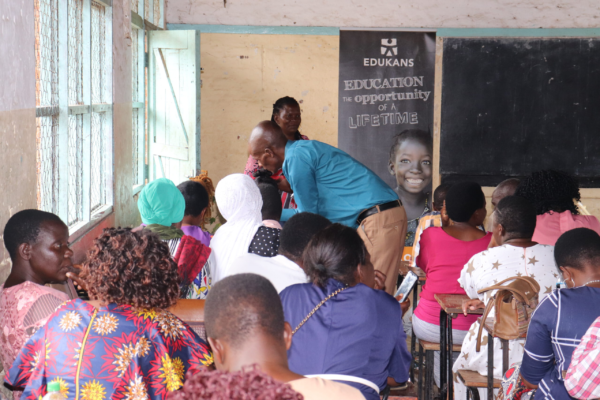
Where
In the nine pilot districts of Dowa, Lilongwe, Salima, Dedza, Mangochi, Machinga, Thyolo, Chiradzulu and Nsanje.
Partners
This project is implemented by Edukans Malawi with support from the Royal Norwegian Embassy through UNICEF.
Reach and impact
The project is targeting 360 schools (270 primary schools and 90 secondary schools), 9000 teacher mentors and 180,000 learners including learners with special needs. The project is also aimed at creating a community of practice within the catchment areas, where schools will learn and share experiences with other schools within their community of practice and different groups at school level can also learn from each other.
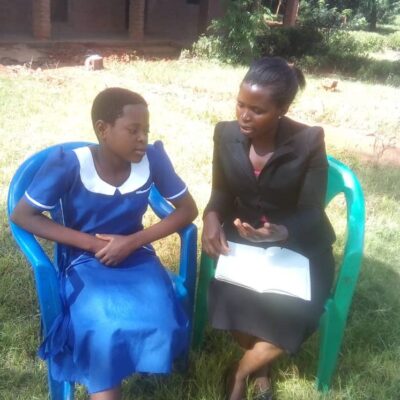
Expected major outcomes
- 30 master trainers trained in teacher and student mentorship.
- 9000 teachers from 360 schools mentored in effective teaching practice, life-long learning, career development, and enhanced job satisfaction.
- 1800 school leaders trained as teacher mentors to establish mentorship programmes in 360 schools.
- 180,000 learners, including those with special needs, (150,000 for primary school and 30,000 for secondary school) from 360 schools mentored in study skills, study pathways, and life skills.
Once phase one is completed successfully, Edukans Malawi hopes to continue with phase two of the project aiming at further scaling this game changing project.
Absenteeism as number one problem
At Malunje Primary School in Lilongwe absenteeism was the order of the day. Teachers resorted to giving remedial lessons to late comers and frequent absentees, but this did not improve attendance or performance. Little did the teachers know that tools to change the situation at the school were already in their hands. The mentorship sessions with learners paid off within a short period of time. The teachers were surprised to see improvement in terms of attendance. “On a normal day about 200 out of 497 learners would attend classes, but now there is so much improvement such that every day over 450 learners attend classes. This has been due to the mentorship sessions we have with learners at this school”, said the headteacher with a smile. Learners’ academic performance in class has also improved. “As teacher mentors, we are monitoring the progress and we keep on mentoring the learners to ensure that there is almost 100% daily attendance, and they improve on their academic performance in class” – headteacher Malunje Primary School.
What has Limbani Nsapato – Country Director Edukans Malawi – to say about this project?
“This project is a game changer in as far as having an impact on the promotion of education quality in the basic education sector in Malawi. This is because, apart from enhancing the capacity of teachers as professionals, it is going to motivate them to teach professionally. It will also ensure better learning outcomes and career choices among students. In all targeted districts and schools, the project has been welcomed by stakeholders.”
- Limbani Nsapato, Country Director Edukans Malawi
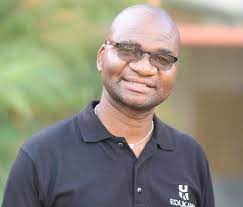
2.2 Impact Skills for Work and Life
Our work within the pillar Skills for Work and Life is important to help young people develop their skills in preparation for work and for meaningful participation in society. We have been running projects in Ethiopia, Kenya and Uganda. In this paragraph we sum up the results and take you through several project highlights.
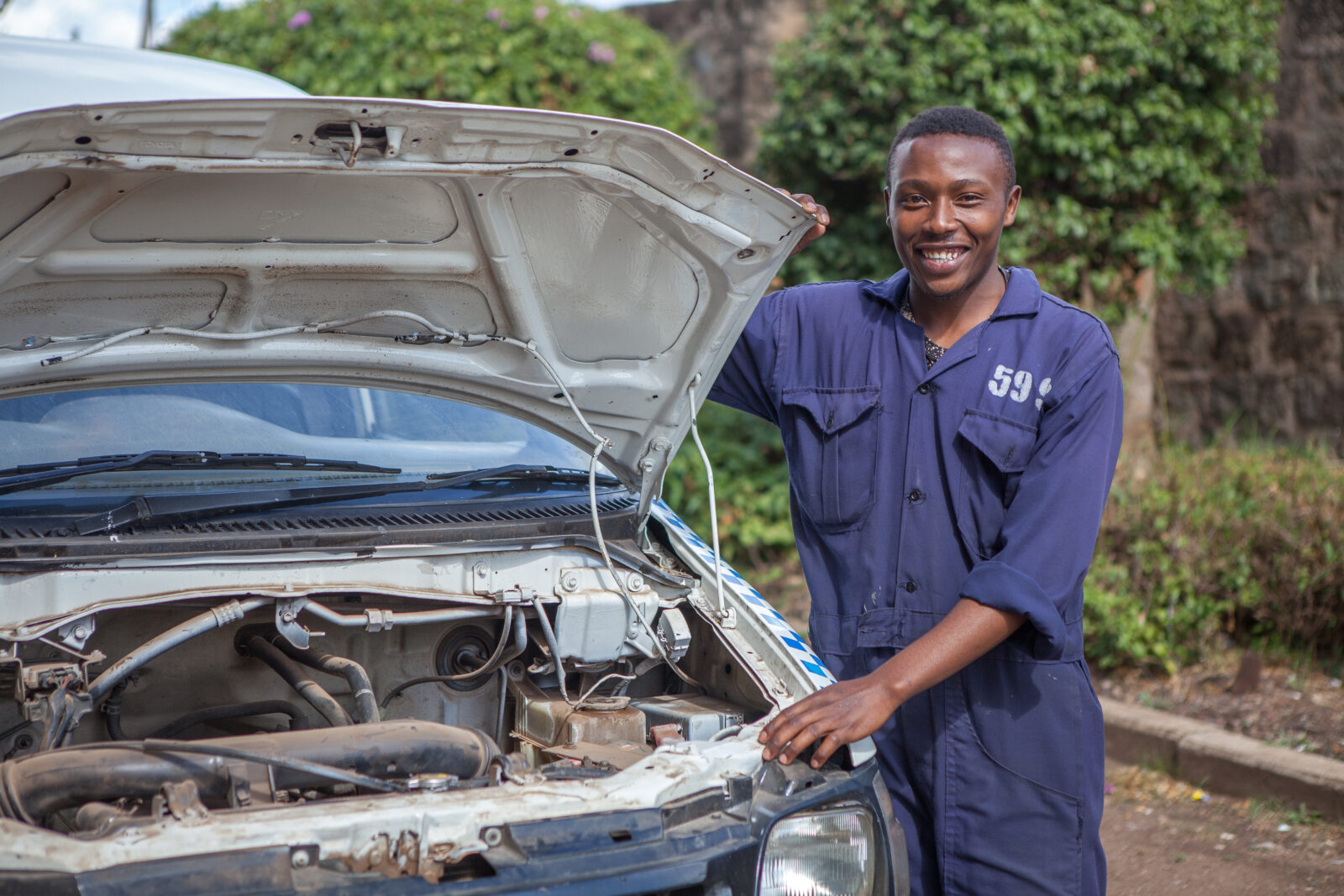

16,450 young people
developed their skills in preparation for work and for meaningful participation in society: 9,714 males and 6,736 females

739 teachers
were equipped with the competencies to create a safe learning space, and the skills to use creative and participatory methodologies to teach Life Skills

60 businesses
were involved

50 training providers
were involved
Project highlight Skills for Work and Life
Enhancing SRHR of young people in Ethiopia
This project focused on the Sexual and Reproductive Health and Rights (SRHR) of 2,462 Ethiopian young people (737 females and 1,689 males) in Athlete Kenenisa Bekele Polytechnic College in Ethiopia. Edukans has trained 157 trainers and administrative staff (37 female and 120 male).
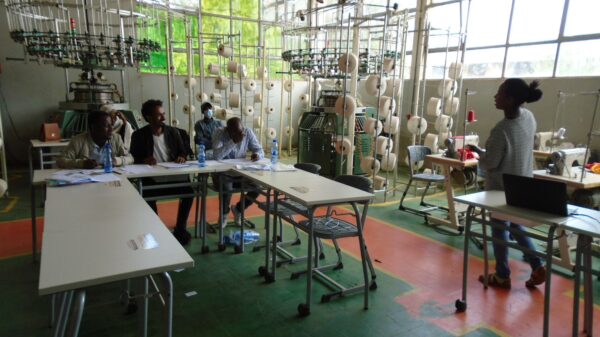
Major outcomes:
- Improvement of SRHR awareness amongst college trainees.
- Reducing college dropouts.
- Increasing the learning outcomes of trainees.
- Notable changes in the knowledge and practices of college trainers on SRHR and delivering young people centred SRHR education.
- Following up on training, the Gender Club is utilising the knowledge, skill and training materials and methodologies acquired during the SRHR training. Such comprehensive training materials on SRHR were previously lacking.
- The intervention ensured the involvement of different stakeholders who contribute to the discussion held at a federal (highest) level on the integration of SRHR education in Ethiopia’s school curriculum.
How we have made the difference with this project:
- The college established reporting channels and mechanisms for Gender Based Violence cases. This has built the confidence of trainees, reduced absenteeism, and dropout. Subsequently trainees performance on their training improved.
- To sustain the result SRHR training is provided to all newly enrolled students on intake so that the students will be aware about their SRH rights and what to do when issues are arisen.
Project highlight Skills for Work and Life
Capacity building of trainers on Digital Pedagogy at Bukura Agri College in Kenya
Over a period of 12 months Edukans built the capacity of Bukura Agricultural College to train and equip 30 trainers with digital and e-learning tools to enhance their pedagogical and technical skills.
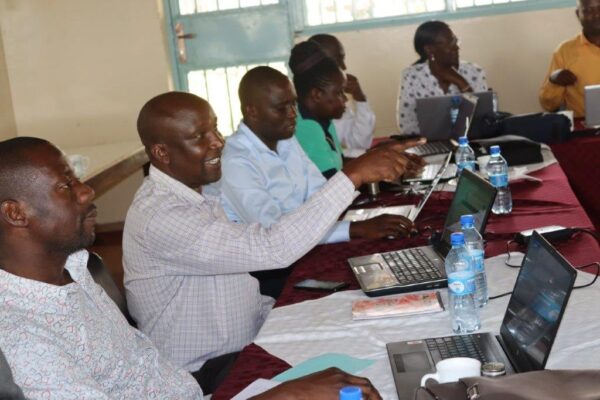
The training programme focused on subjects such as:
- Understanding digital platform and ICT tools for supporting learning and teaching.
- Development of content and curriculum of blended learning.
- Active teaching and learning through ICT tools.
- ICT and e-learning tools to access and monitor learning outcomes.
- Coaching and mentoring using ICT and digital platforms.
How we have made the difference with this project:
- The capacity building equipped the teachers with skills in the use of digital tools for learning.
- Teachers can create and upload content, and subsequently teach through the Moodle-platform: an open-source customizable learning management system that educators, teachers and trainers use for blended learning.
- Teachers were supported in making their online training more participatory and now know how to implement active teaching and learning.
- The project gave the Bukura Agricultural College an opportunity to explore partnerships to support them in areas where they lack capacity, for example in server hosting.
- The institution has received 6 laptops so that each trainer is able to use a device.
- Support in an ICT learning strategy will assist the institution to chart a way forward in implementing the next phases, to realize successful blended learning in their institution.
Joseph Mutuku, Lecturer Crop Sciences
“I have been able to gain quite a number of skills in student engagement, development of online content, assessment of students on online platforms and also upload further reading materials on different online platforms.” – Joseph Mutuku, Lecturer Crop Sciences
What has Mary Mugo – Country Director Edukans Kenya – to say about this project?
“This project is funded by the Ministry of Foreign Affairs, Netherlands through OKP Nuffic. During evaluation of the project, 100% of the trained trainers indicated that they were positively impacted by the program as it introduced them to new concepts and ideas. It improved their digital literacy and enhanced their ability to use digital tools and resources to enhance teaching and learning. Further, it resulted in an increased and efficient use of technology by the trainers. Digital Pedagogy is a game changer among TVET trainers, a channel to efficiently impact the learning of a significant number of young people.”
- Mary Mugo, Country Director Edukans Kenya
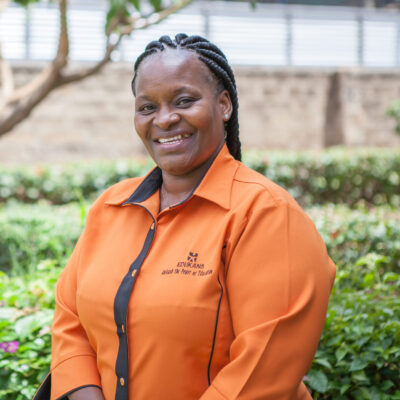
Project highlight Skills for Work and Life
Industrial capacity building training in Uganda
Between 2020 and 2022 (21 months) Edukans Uganda, together with War Child Holland and Norwegian Refugee Council increased the capacity of the Ugandan Directorate of Industrial Training (DIT) and 3 TVETs. Together 120 people (55 female and 65 male) were trained. DIT staff learned how to integrate technology in vocational education and training. TVET staff learned how to engage with private sector providers, to better align skills training to labour market demands, and to improve practical training for the trainees.
Major outcomes:
- The participants reported that trainings helped them to identify trades/jobs that were relevant in the community.
- Participants are now able to better integrate ICT in their trainings.
- The instructors are now able to provide counselling to the learners and have improved teaching skills.
- All 3 TVETs started horticulture projects with value crops and extended services provided to the surrounding communities.
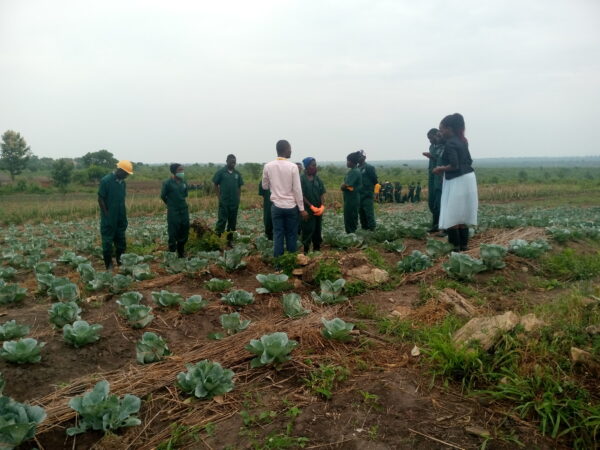
2.3 Impact Education in Emergencies
To provide access to education, high quality learning, and enhanced well-being in crisis-affected contexts our work within the pillar Education in Emergencies is important. We have been running projects in Ethiopia, Lebanon and Kenya. In this paragraph we sum up the results and take you through several project highlights.
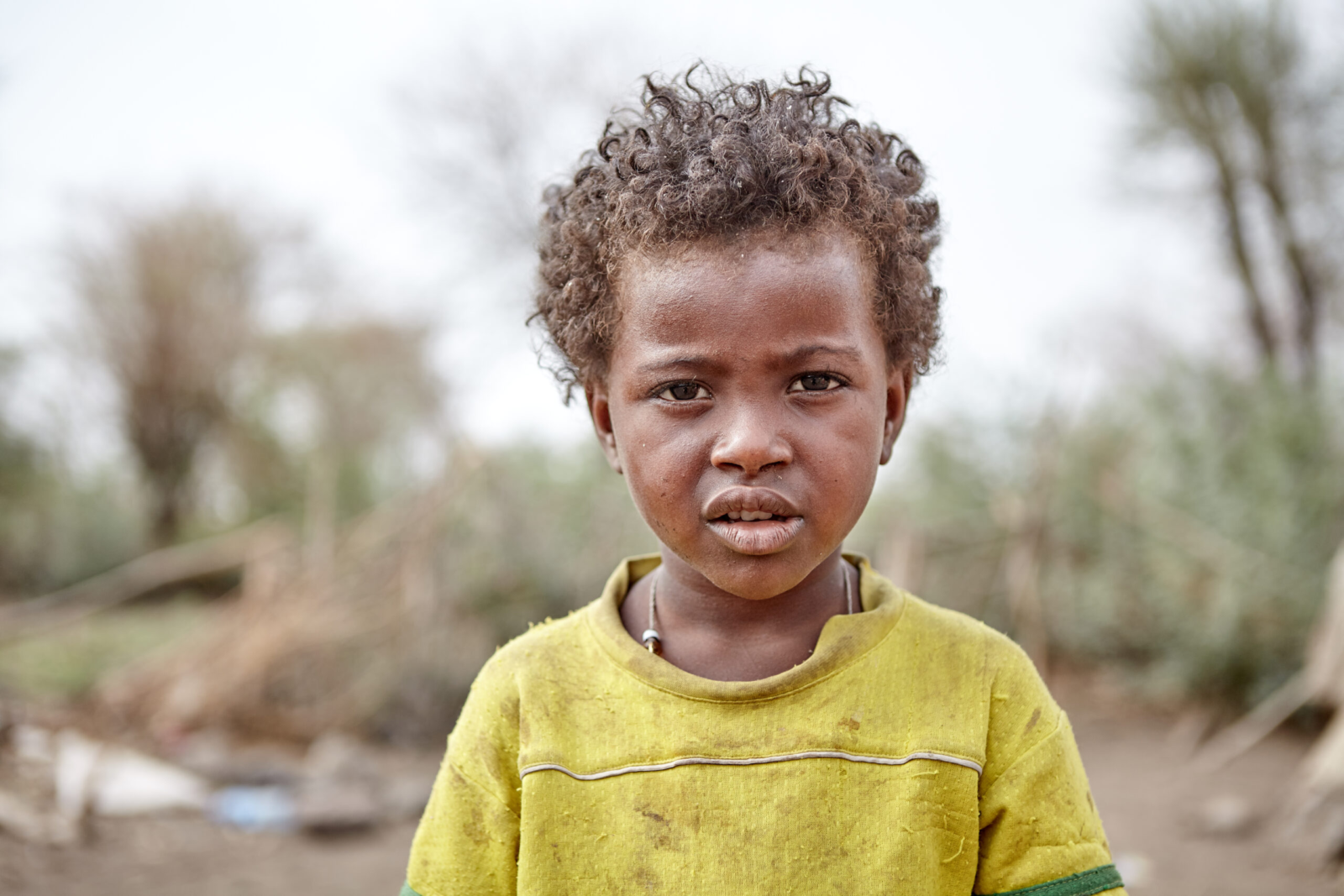

56,639 children and young people
found a safe haven at school and received quality education in emergency situations
- 31,039 males
- 25,600 females

806 teachers
were trained in areas such as child-centred pedagogy and learning and behavioural difficulties

147 schools and TVETs
provided access to education, high quality learning, and enhanced well-being in crisis-affected contexts
Project highlight Education in Emergencies
Ethiopia: access to quality education in crisis and attention to wellbeing
Ethiopia is experiencing an unprecedented humanitarian crisis, which is resulting in large numbers of Internally Displaced Persons (IDPs). By early 2022, 4.5 million were believed to have been affected. The displaced people have limited access to adequate nutritious food, protective shelter, safe water and sanitation facilities, as well as basic services. Limited access to education is also adversely impacting the safety and well-being of displaced children. On top of that, displacement is contributing to protection risks, including risks such as sexual and gender-based violence, loss of life, family separation and neglect of children.
In Ethiopia we have implemented a project in the northern Afar region, reaching out to Eritrean refugees and Ethiopian IDPs. We focus on three critical issues: access to education, the quality of education and the wellbeing of teachers and students.
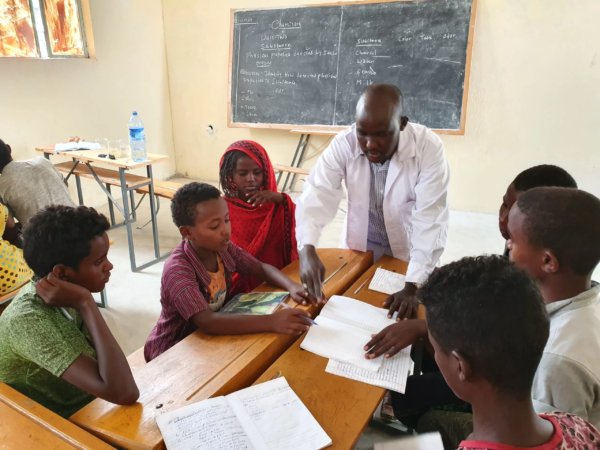
Major outcomes:
- A fence/wall built around the Arado school.
- 34 parents (PTA members) were trained and are involved in school and student support at home.
- 36 College for Teachers Education (CTE) and school directors were trained in Active Teaching and Learning (ATL).
- 18 master trainers were trained in Learning and Behaviour Support (LBD).
- 75 teachers were trained by master trainers in ATL and LBD.
- Mental Health and Psychosocial Support (MHPSS) research into the stress suffered by teachers was conducted.
- 81 teachers learned how to respond to MHPSS issues which they themselves suffered and those of colleagues and students.
“The increasing conflict in Ethiopia in 2022 is hurting and killing people we know, and we love.”
- Hendrien Maat, Edukans Programme Manager Education in Emergencies
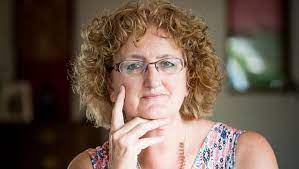
Project highlight Education in Emergencies
Make education possible for (refugee) students in Lebanon
Basic living conditions for Syrian refugees in Lebanon are in continuous decline. In 2022, 90 percent of Syrian refugee families were in need of humanitarian assistance to survive, with the most basic needs out of reach due to inflation.
In Lebanon we support local organisations to make education possible for Palestinian, Syrian and Lebanese (refugee) students. Within the programme we focus on three issues: access to education, the quality of education and the wellbeing of students.
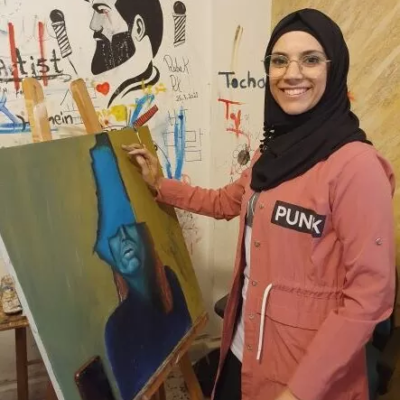
Major outcomes:
- Effective functioning of JCC education centres for 1,125 Syrian/Palestinian refugee children and young people in Lebanon.
- 190 teachers were trained in 2022 and at least 80% apply effective teaching methods and materials in their classrooms.
- Students show improved learning outcomes. In 2022: 202 secondary students went to Syria, 166 of which passed their diploma. This is more than 82% (in Syria itself, the pass rate is between 60 and 65%).
- Students received psychosocial support and experienced improved wellbeing: 70 students took part in music classes and 30 students in drawing classes. The music, drawing and painting classes brought happiness to people in a very difficult camp. Many talents were revealed and all attendees are happy to come and reluctant to go.
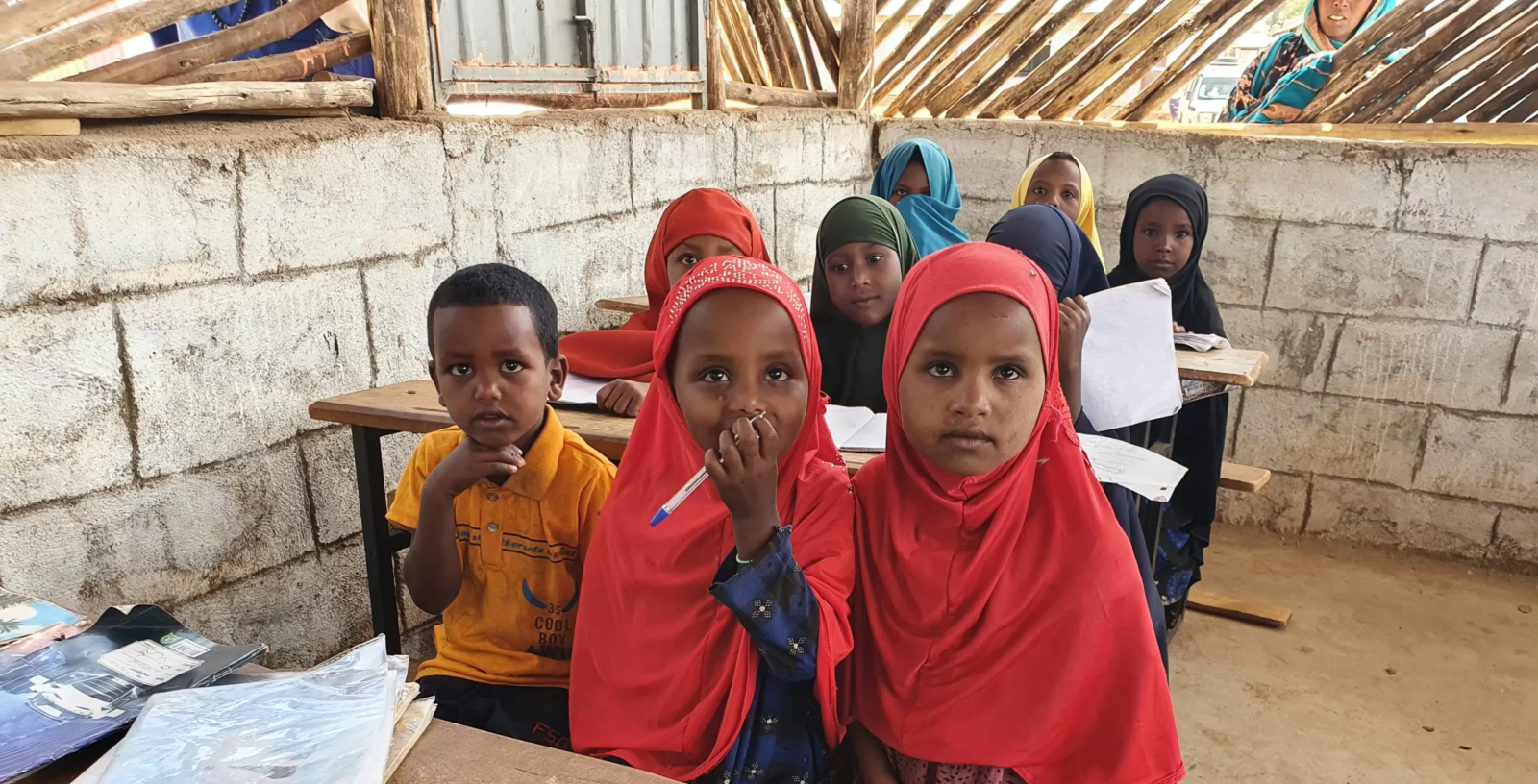
Education has been identified as one of the most important indicators for making peace possible.
2.4 Impact Exchange
Our projects within the pillar Exchange bring together teachers and pupils from across the world. For the first time our Exchange programme Going Global Uganda went digital. In this paragraph we sum up the results and take you through a project highlight.

26 schools in the Netherlands and Uganda
participated in Going Global 2022
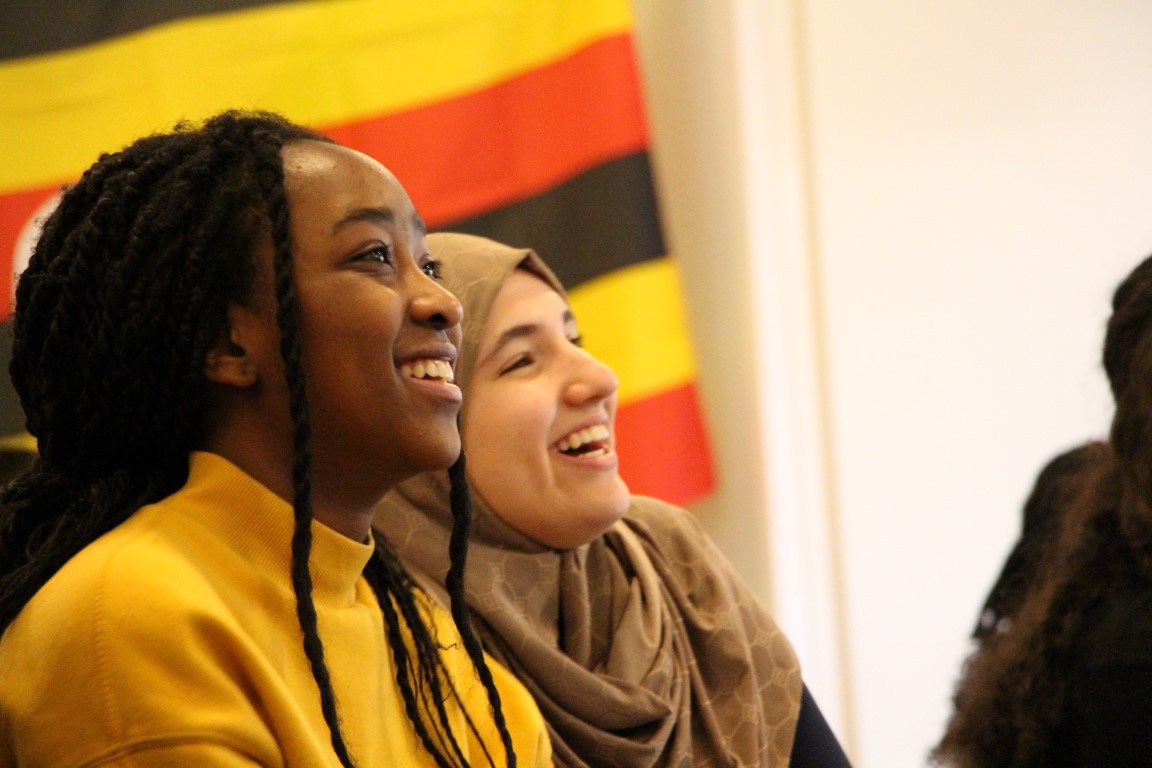

54 participants
now feel more empowered to face challenges in their lives
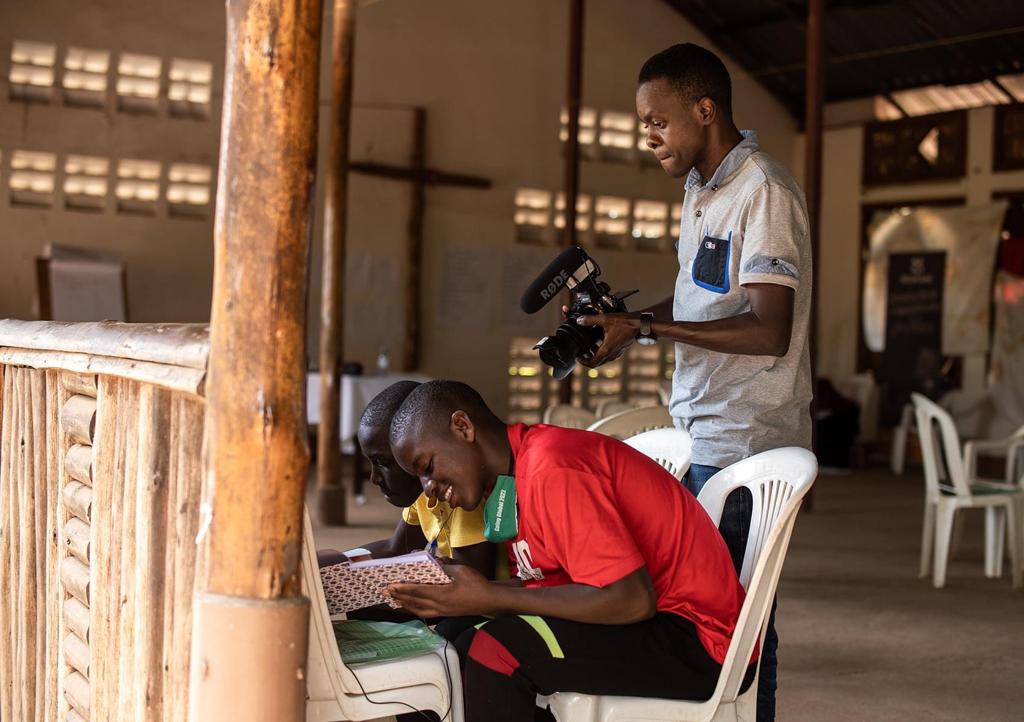

4,560 (young) peers
from the schools were reached indirectly via the program

393
teachers, school leaders, parents’ committees and other educational staff were reached indirectly
Project highlight Exchange
Going Global: the online edition
For the first time our Exchange programme Going Global went digital. In February 2022, 27 pupils in the Netherlands and 27 pupils in Uganda from in total 26 schools participated in an intensive online and offline programme over a period of a week. During the week pupils discussed how they could improve awareness of and access to quality education. At the end of the week a lobby meeting was held with 50 parents, teachers and policy makers and pupils advocated for better access to water, good hygiene and health care and less punitive punishment because “this will ensure that we can learn better”.
Major outcomes: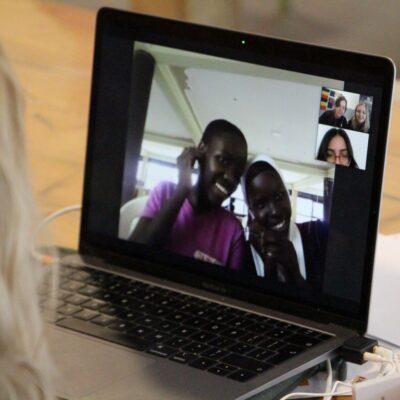
- Pupils have an impact within their schools through advocating in young people clubs, having conversations with teachers and school leaders, and by involving their communities.
- Pupils advocate for the conditions to improve learning: school hygiene, access to medicine within schools and a reduction of punitive punishments.
- Increased number of teachers more involved in active teaching.
- Pupils worked on life skills which help them feel confident about themselves, stay healthy, and achieve (personal) goals.
“Online GG Uganda was a proud moment because we saw that – despite the fact that pupils were literally 10,000 km apart – it was possible to forge profound connections, exchange knowledge and inspire pupils to strive for quality education on both sides of the world.”
- Floor van Straaten, Edukans Coordinator Exchange programmes
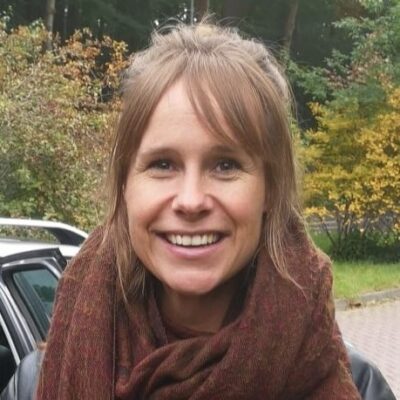
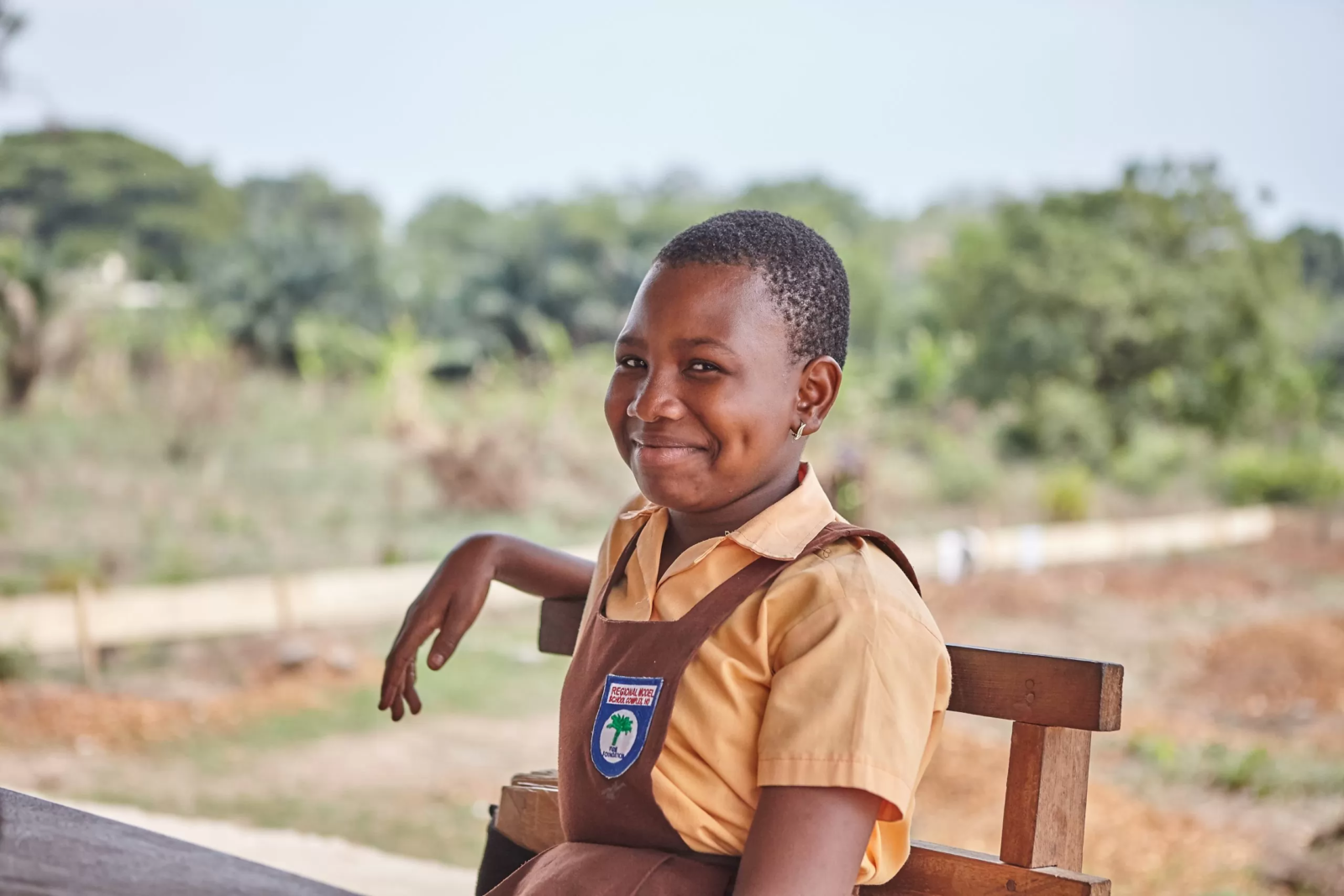
How did Edukans raise funds last year?

3. Our supporters

In 2022, we received a total of €5,913,950 from our supporters. Thanks to the generous donations of our partners and donors we made it possible for 456,586 children and young people to embrace their right to learn.
As a result of ongoing violence worldwide and the consequences of the climate crisis, many households faced an increase in their cost of living. The support from private individuals, companies, schools, foundations and institutional donors was heart-warming. Funding is important if we are to achieve the desired impact on education. The continuously changing donor landscape and the role of Civil Society and INGOs require thorough reflection and the ability to adapt to these developments, without losing the focus on our mission and realisation of our strategic agenda.
2022 has also been a year of transition to explore and design new funding strategies, to be further elaborated in 2023. There is still a lot of work to be done to ensure every child and young person can fully realise their right to education. Edukans will continue to explore (alternative) funding pathways.
3.1 Sources of income
2022 was a year of transition for Edukans. We adjusted our programmes and funding strategies to align with the rapidly changing global and national environments we are working in. We are working towards a sustainable funding strategy, building long term relations and programme financing going beyond project related funding. INGOs and the systems in which they function require a transformative approach. This requires caution and care within the organization and in our relationships with our partners. This means lower income in the short term, however, it is expected to result in increased funding over the longer term.
Sources of income
Private donors
In 2022, the amount we received from private donors decreased by €50,874 to €2,844,316, a decrease of 2%. High inflation in 2022 effecting household income is believed to have had an effect, especially on donations resulting from direct mail. More than 65% of our 41,623 private donors provided structural support. In the past year, we were able to welcome 3,506 new structural donors, mostly due to successful telemarketing campaigns and recruiting new donors door-to-door and on the streets. However, the results from door-to-door fundraising activities were less than expected probably because these took place in the aftermath of the corona pandemic. Scaling back up again has been a challenge, but proper measures have been taken. This led to a slight and steady increase in new door-to-door donors in the last quarter of the year, promising better results in 2023.
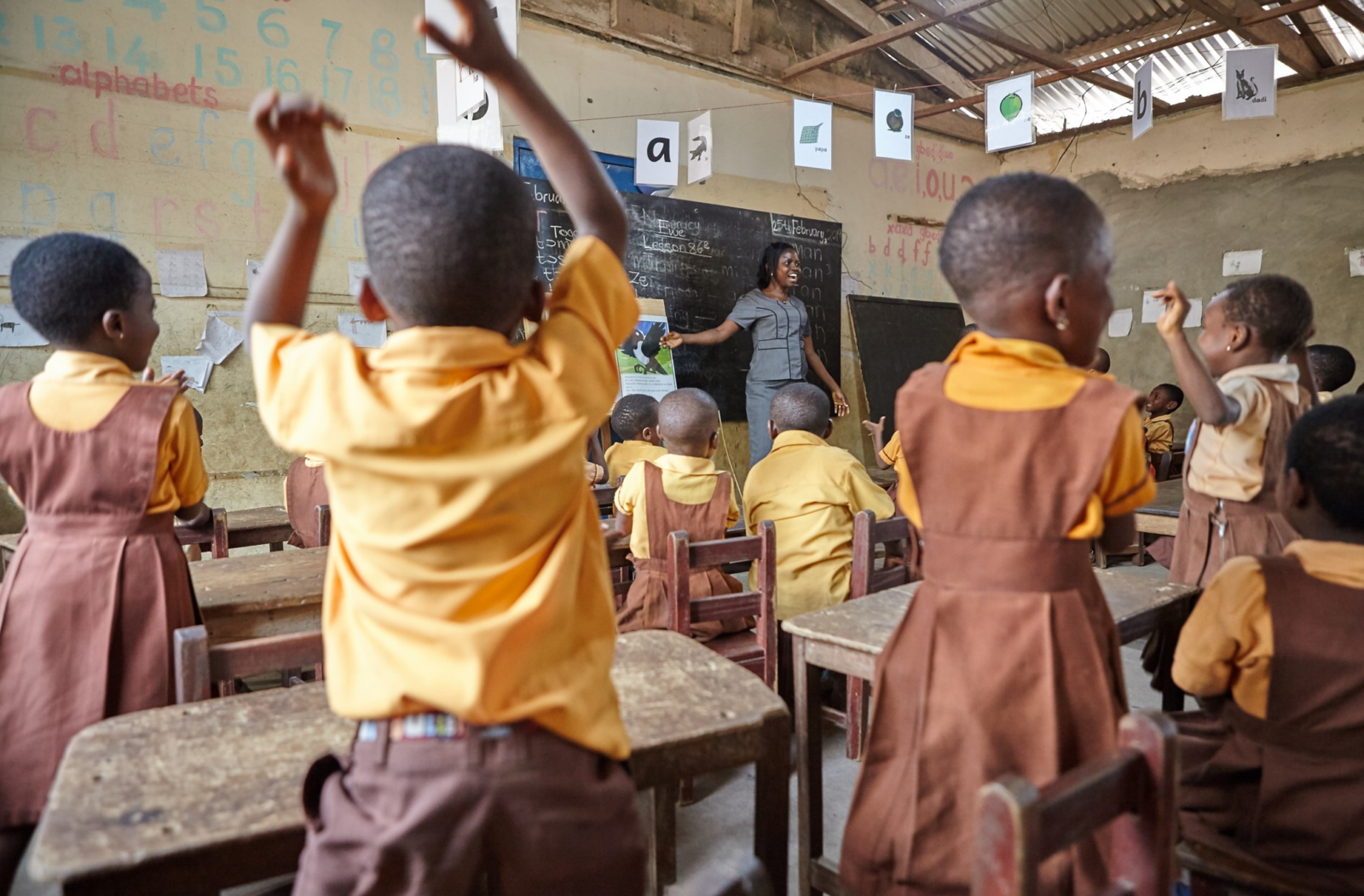

“School is a place to have fun and discover, experience and grow together, in a safe environment. This is the right of every child. Edukans fully commits itself to this, which is why I chose to become a donor.”
– Irinne van der Sluis, mother of three and teacher
Trust funds
For the year 2022 the income provided by 57 foundations was €419,932. Due to lower income from shares and bonds fewer foundations were able to support Edukans financially up to the amount we had budgeted for. In the past year we have also experienced several foundations changing their funding strategy to support local partners only. The war in Ukraine and the urgence of the climate crisis are also taking a big share of the fewer funding opportunities available. Edukans is looking into these trends and how to rethink our fundraising strategy to secure funding for education on the longer term.
Several examples of funds supporting our work:
AFAS Foundation
In 2022 we received a grant from the AFAS Foundation, a new strategic partner from Edukans. The €420,000 grant we will provide 9,000 young people in Kenya with relevant training at 30 TVETs over the course of the next 3 years. The launch of the project was in October and 200 partners, representatives of the Kenyan Ministry of Education and other stakeholders, were present.
CCHO
CCHO a trusted and esteemed fund for entrepreneurship and self-sustainability provided Edukans with another annual gift of €25,000 for a Skills for Life project in northern Ethiopia for refugees and internally displaced persons. This amount is part of the co-funding Edukans has to provide for projects funded by UNICEF.
UNICEF and several Dutch Foundations
Edukans carried out several bigger projects in the north of Ethiopia. A major part of the funding was provided by UNICEF, complemented by the required co-funding provided by several Dutch Foundations, such as Stichting 75 jaar NBB.
Dioraphte
Diorapthe assigned €100,000 to education for Eritrean and Ethiopian children in refugee camps and in the surrounding communities.
Turing Foundation
Turing Foundation made its final contribution to a project on Active Teaching and Learning at Salvation Army schools in Congo.
Nationale Postcode Loterij (Dutch Postcode Lottery)
Edukans has been a proud partner of the Dutch Postcode Lottery since 2015. In 2022 Edukans received an impressive €500,000 as an annual contribution to our work to unleash the power of education for children and young people. In 2019 Edukans received an additional €1.5 million to launch our innovative program Teaching with Impact. The final €64,943 euro was committed in 2022. Thanks to the Dutch Postcode Lottery we were able to reach a total of 442,539 children in 499 primary schools by the end of the project with quality education and innovative and sustainable learning materials. This resulted in improved learning outcomes and an increased motivation among teachers and learners.
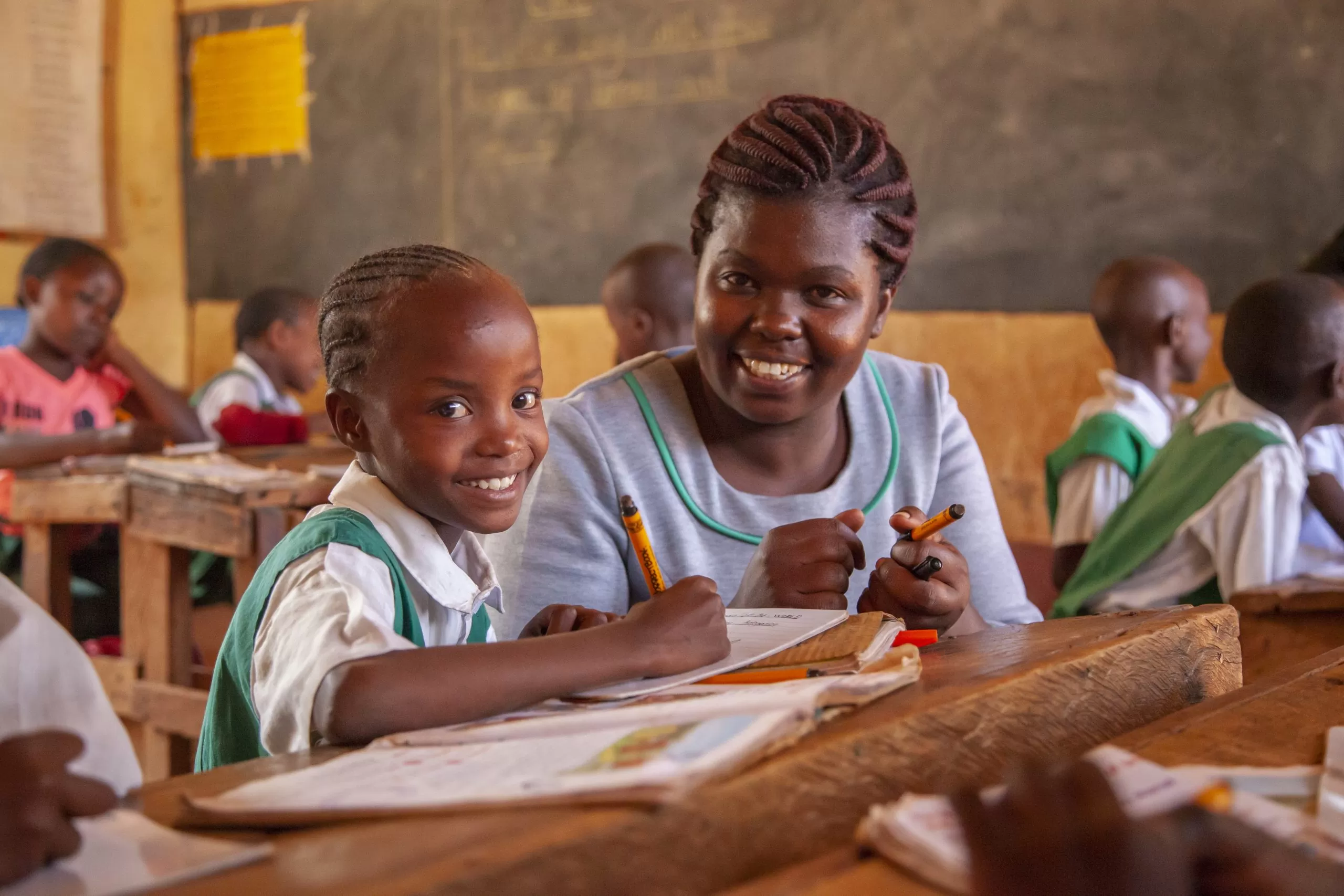
Companies
In 2022 Edukans’ work was supported by 158 companies in The Netherlands. The total of all business donations amounted to €114,634. Except for financial support, companies also provide Edukans with knowledge and services or support our work by mobilising their network and platforms. We feel very supported by the companies in the Netherlands. Companies indicate that investing in education and in the futures of children and young people remain of great importance. In the coming years Edukans will further build relationships and engage with companies to achieve more impact for children and young people. A few examples of inspiring collaborations:
Noordhoff
Noordhoff has been supporting the work of Edukans since 2007. We are very proud of this partnership. In 2022 Noordhoff supported our Exchange program World Teacher. In addition, Noordhoff mobilised support among their network for better education and emergency support for families in Ethiopia.
“Not only do we fully support the Edukans motto ‘Unleash the Power of Education’, we are also delighted with the people who shape Edukans and who we have come to know as inspired, practical and effective. Edukans makes a real difference for children all over the world, and we are pleased to contribute to that.”
- Quote Noordhoff

SucceedIT
SucceedIT has been supporting Edukans since 2017. In 2022 SucceedIT enabled our pilot project for primary schools in Ghana. The project is focused on school improvement and better learning outcomes for children in Ghana through the digital tool EDU- Q Card.
Quoratio Groep
On a regular base, Quoratio Groep makes one of its professionals available for Edukans, free of charge, helping optimise several operational processes within Edukans.
“Getting the best out of yourself and others starts with an education. This is why our partnership with Edukans works. Children are only able to develop their talents and seize their opportunities when they are offered to them.”
- Quote Quaratio Groep
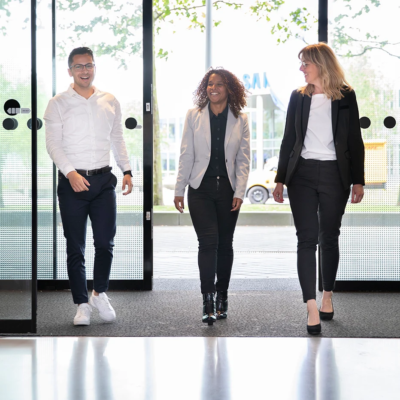
Churches
Each year, Edukans can rely on the commitment and support of churches in the Netherlands. In the summer of 2022, churches supported our emergency campaign for the crisis in Ethiopia with an amount of €1,432.75. The total amount that Edukans received the past year through various church congregations and church organisations is €123,382.
Institutional donors
In 2022 most of Edukans’ focus countries were successful in raising funds from international donors for their education projects.
In Ethiopia donors such as UNICEF, Education Cannot Wait, and UNHCR continued supporting our Education in Emergencies programme. With this funding Edukans Ethiopia has launched several projects such as the project Bete 2. Bete means ‘My home’ in Ethiopian, which is apt for a project which provides access to quality education and child protection services for refugee and internally displaced children in 37 schools in the war affected areas of the Afar Region.
Edukans Malawi launched a school-based mentorship programme in primary and secondary education which is being supported by UNICEF. The programme is running in 360 schools and benefits both the children and their 9,000 teachers.
The fund Enabel continues to support Edukans Uganda and the Lokopio Hills Technical Institute with a new programme called Yumbe Gamechangers. The programme provides skills training to help prepare 400 young refugees for the labour market. The end result will benefit the young people themselves, the school and their community.
All these projects will continue into 2023, strengthening our relationship with these important donors and helping us work towards the United Nations Sustainable Development Goal 4, the ambition to achieve quality education for all.
Schools
Edukans received €75,115 from schools. We are very pleased with this support. Despite the difficult year due to Covid-19 and travel restrictions, we received funding from Dutch schools, individual teachers and our supportive group of Dutch congregations. The Going Global programme received a total of €141,098 from schools, private donors and corporations. A special word of gratitude goes out to the schools that believe in our activities and contribute to quality education.
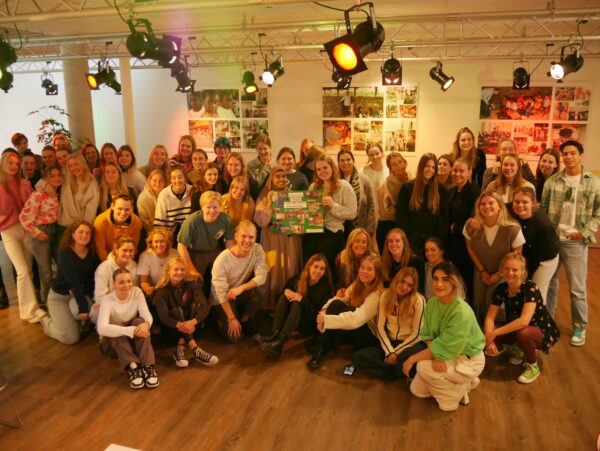
3.2 Campaigns draw new supporters
We are always looking for innovative ways to enable Dutch target groups support Edukans’ work. In the past year, we once again reached our target groups through various campaigns. We rolled out our first crowdfunding campaign, celebrated our 20th anniversary, and launched our new positioning. A few highlights from the Edukans campaigns in 2022 include:
Campaign
‘Making mistakes is ok’
We concluded our very first crowdfunding campaign in 2022. With the theme ‘making mistakes is ok’ we asked people to donate an erasable notebook including teacher training. Ambassadors Bracha van Doesburgh and Sofie van den Enk appeared on the national television show ‘Tijd voor Max’ to draw attention to the theme and the need for sufficient practice material and trained teachers in Kenya. 1,261 people supported the campaign and a total of €67,027 was raised for our Teaching with Impact programme in Kenya.
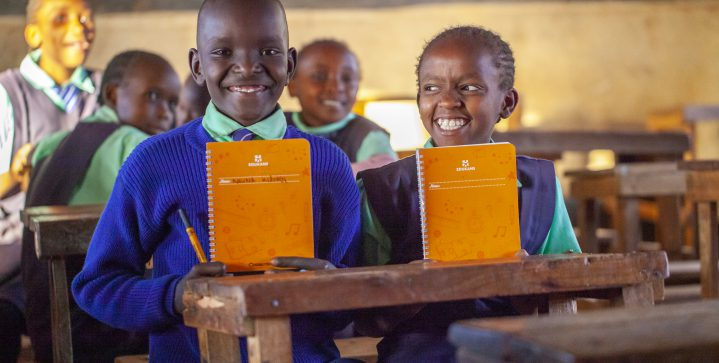
Event
The magic of an erasable notebook
In 2022 we organised an event to celebrate that in the past two years - thanks to funding from the Dutch Postcode Lottery - we have been able to give more than 400,000 children an erasable notebook and have trained 7,000 teachers. During the event we visited three locations with a life-size Correctbook and a magician to allow attendees to experience the magic of the erasable notebook for themselves. Social media content was created which was later used to draw attention to the project.
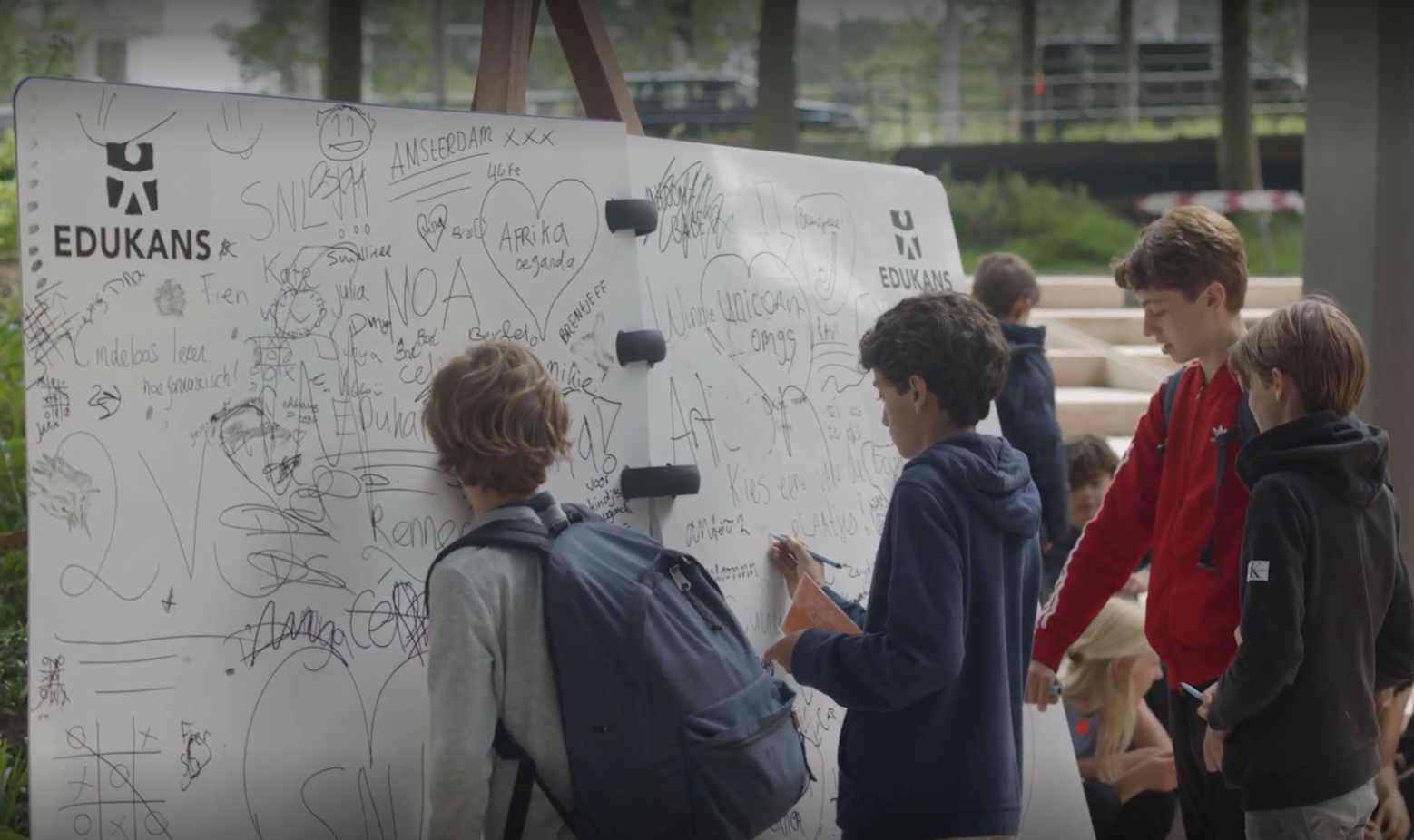
Campaign
Emergency campaign for the crisis in Ethiopia
Ethiopia is in crisis. War in the north is forcing families to flee their homes. In addition, climate change is disproportionately affecting Ethiopia, resulting in extreme drought, hunger, and dehydration. For children, school is a safe haven in the middle of all the misery where you come together with peers and work on your future. To help keep those children in school, Edukans has taken action with an emergency campaign. Individuals, schools, companies, trust funds, and churches have been asked to donate via e-mail and direct mail. In total we raised € 6,326.75. Most donations were made by individuals and churches.
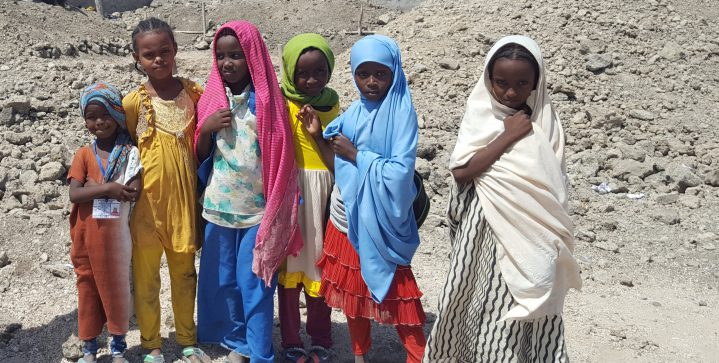
Campaign
‘Making mistakes is ok’
We concluded our very first crowdfunding campaign in 2022. With the theme ‘making mistakes is ok’ we asked people to donate an erasable notebook including teacher training. Ambassadors Bracha van Doesburgh and Sofie van den Enk appeared on the national television show ‘Tijd voor Max’ to draw attention to the theme and the need for sufficient practice material and trained teachers in Kenya. 1,261 people supported the campaign and a total of €67,027 was raised for our Teaching with Impact programme in Kenya.
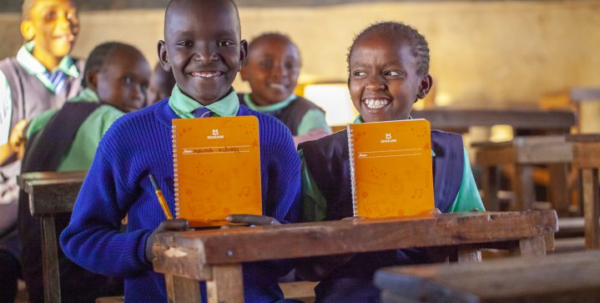
Event
The magic of an erasable notebook
In 2022 we organised an event to celebrate that in the past two years - thanks to funding from the Dutch Postcode Lottery - we have been able to give more than 400,000 children an erasable notebook and have trained 7,000 teachers. During the event we visited two locations with a life-size Correctbook and a magician to allow attendees to experience the magic of the erasable notebook for themselves. Social media content was created which was later used to draw attention to the project.

Campaign
Emergency campaign for the crisis in Ethiopia
Ethiopia is in crisis. War in the north is forcing families to flee their homes. In addition, climate change is disproportionately affecting Ethiopia, resulting in extreme drought, hunger, and dehydration. For children, school is a safe haven in the middle of all the misery where you come together with peers and work on your future. To help keep those children in school, Edukans has taken action with an emergency campaign. Individuals, schools, companies, trust funds, and churches have been asked to donate via e-mail and direct mail.

Campaign
20 years of Edukans
Edukans was founded 20 years ago. This 20-year anniversary provided us with an opportunity to thank donors, partners, and stakeholders who have contributed so much to the impact we have made during those years. We sent a thank you card or e-mail to all donors and stakeholders and created a video with the highlights of the last 20 years, starring our CEO Petra van Haren, a number of our Dutch ambassadors and our Country Directors. In addition to this, Dutch private donors who have been with us from the start received a personal thank you call.
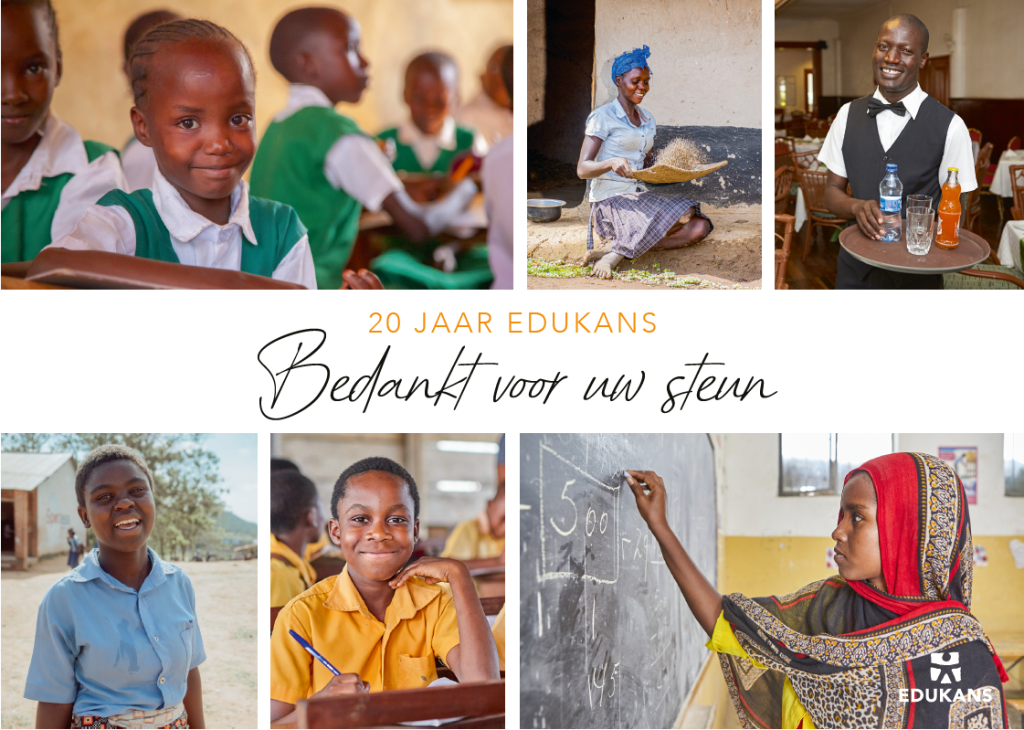
Collaboration
Heroes for Charity
Edukans has started working with Heroes for Charity, a group specialising in organising adventurous challenges that raise money for charity. Through Heroes for Charity people can sign up for challenges such as climbing Kilimanjaro, a New Year's dive or hiking to Machu Picchu. Participation is open to individuals, companies, schools and even churches (in the Netherlands). The collaboration provides a new way to raise money and awareness for Edukans and will hopefully prove a valuable addition to the ways in which Dutch target groups can support our cause.
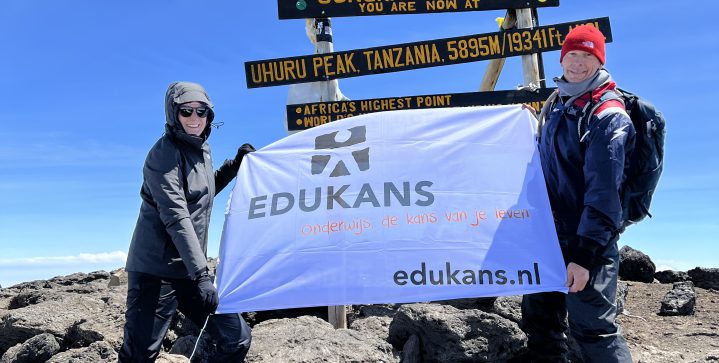
New positioning
‘Unleash the Power of Education’
We launched our new positioning ‘Unleash the Power of Education’ in the last trimester of 2022. The new positioning story reflects our belief that education is the most powerful engine for driving progress. A new logo was also developed and incorporated in our communication materials.
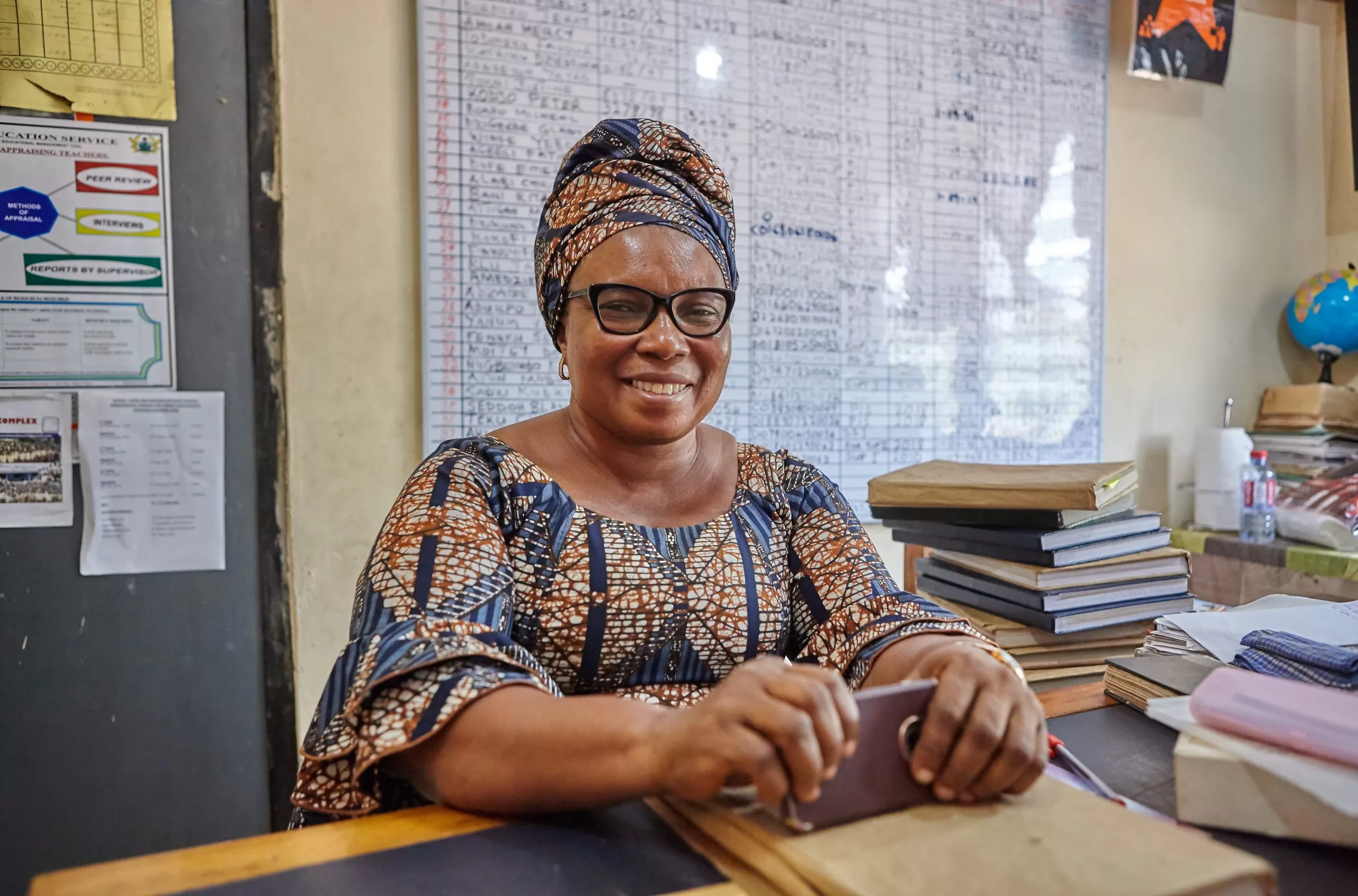
Campaign
20 years of Edukans
Edukans was founded 20 years ago. This 20-year anniversary provided us with an opportunity to thank donors, partners, and stakeholders who have contributed so much to the impact we have made during those years. We sent a thank you card or e-mail to all donors and stakeholders and created a video with the highlights of the last 20 years, starring our CEO Petra van Haren, a number of our Dutch ambassadors and our Country Directors. In addition to this, Dutch private donors who have been with us from the start received a personal thank you call.

Collaboration
Heroes for Charity
Edukans has started working with Heroes for Charity, a group specialising in organising adventurous challenges that raise money for charity. Through Heroes for Charity people can sign up for challenges such as climbing Kilimanjaro, a New Year's dive or hiking to Machu Picchu. Participation is open to individuals, companies, schools and even churches (in the Netherlands). The collaboration provides a new way to raise money and awareness for Edukans and will hopefully prove a valuable addition to the ways in which Dutch target groups can support our cause.

New positioning
‘Unleash the Power of Education’
We launched our new positioning ‘Unleash the Power of Education’ in the last trimester of 2022. The new positioning story reflects our belief that education is the most powerful engine for driving progress. A new logo was also developed and incorporated in our communication materials.

3.3 Lobby: education on the political agenda
In 2022 the Dutch Minister for Foreign Trade and Development Cooperation (BHOS) presented a new policy document on development aid. In the coming years, the Netherlands will intensify its support for poorer countries to tackle the root causes of climate change and poverty. The new development cooperation policy will focus more on specific pre-determined countries and is more supply-driven than demand-driven. The ministry will focus on continuity to achieve truly sustainable development results. However, basic education is not a part of the new policy, and only youth employment and skills training for young people are included under it.
Edukans believes Education is the most powerful engine for progress and should therefore be integral part of the development agenda. We are persistent and remain convinced that education is the solution to many man-made problems such as poverty and climate change. In 2022 our lobby efforts were focused on giving a voice to the solution that is education. We have written and supported several resolutions on the importance of guaranteeing quality education and more attention for the right skills for young people. These resolutions were put forward by several members of parliament in the debate on the BHOS policy.
Together with three other NGOs, we established a new lobby group called PerspActive that has the purpose of gaining attention for skills training and youth employment for specific marginalised target groups. As a member of PerspActive, Edukans organised and participated in a session called “youth employment and private sector development”. The results of this session were sent to Partos (Partos is a collaboration of Dutch NGOs) to be shared with the Dutch Ministry of Foreign Affairs as a consultation on their new Africa Strategy. A strategy that will be part of the BHOS policy and that will be introduced in 2023.
In 2022 Edukans also actively participated in the Global Campaign for Education in the Netherlands (GCE), as a member and as vice-chair. For GCE we organised and participated in several expert sessions on education and asked critical questions of BHOS on their budget and coherence policy. In 2023 Edukans will be chairing GCE-NL.
Advocacy in our country offices
Edukans has a role to play in advocating towards realization of the right to education for all children. In 2023 Edukans, together with local partners will advocate with governments in countries they work in to prioritize good quality education in the realization of the Sustainable Development Goals on Education. Governments will be called to action to allocate sufficient budget to basic education, to invest in skills for youth, in training of high-quality teachers and to invest in mental health and psycho-social support. All Edukans country offices are members of Global Campaign for Education (GCE).
Our advocacy work is illustrated by the two examples below in Ethiopia and Malawi.
Advocacy in Ethiopia
Edukans Ethiopia has been conducting advocacy work on inclusion of displaced people in the education system of the host communities. We have done advocacy at Regional Education Bureaus (REBs), District Education Office (DEOs) and College of Teachers Educations (CTEs) in Afar and Amhara Regional States to include displaced children in their educational plans and activities. With the advocacy work in the last year, we have made practical linkage among REBs, DEOs and 2 CTEs with 10 refugee and IDP camps/schools in Afar and Amhara regions where we benefited more than 50,000 displaced children.
Advocacy in Malawi
In Malawi Edukans has been involved around advocacy for increased funding for the education sector to ensure more resources are available for basic and skills programmes. The advocacy activities have included doing budget analysis and having meetings with Ministry of Finance and the Members of the Parliament. Consequently, education has received the lion’s share of the national budget and government has consistently allocated within the international benchmarks of at least 4 to 6% of the GDP and 15 to 20% of the national budget to education. There has been an annual increase of the education budget of at least 15% over the previous year’s allocation. The needs of the sector are many and Edukans will continue to advocate for more funding for education.
Another advocacy initiative has been for increased attention and support towards inclusive education with special attention to children with special needs and disabilities. Activities have included advocating for an inclusive education policy as well as increased funding for inclusive education activities. As a result the government has responded positively and initiated the development of an inclusive education policy. Furthermore, the government is allocating funds to inclusive education annually although the funds are not adequate. Children with special needs now make up at least 3.5% at basic level, and 2.5% at secondary level. Edukans will continue to advocate for more attention towards inclusive education.
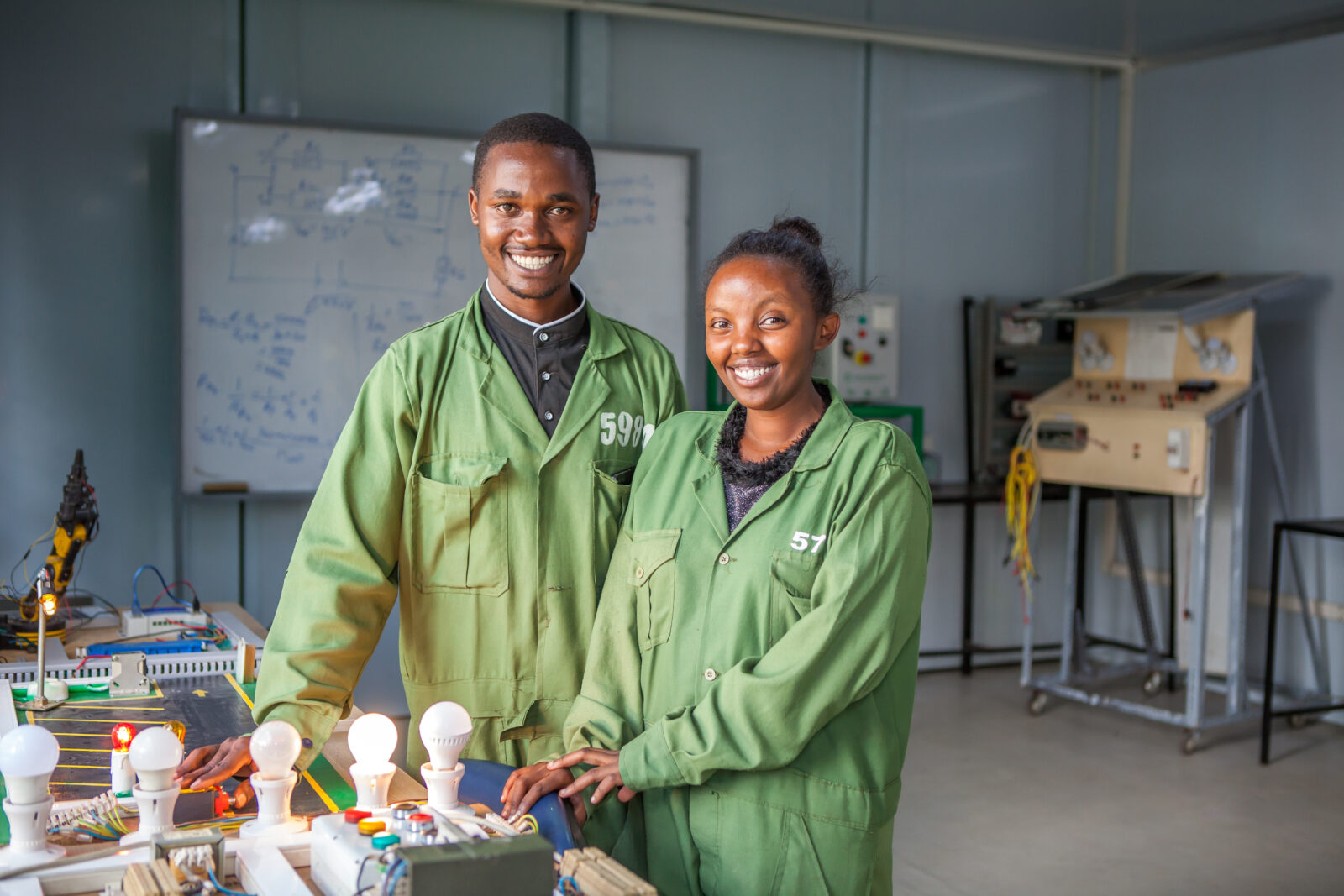
What did we learn from last year?

4. Lessons learned

Strategy
Worldwide, we are creating opportunities enabling children and young people to shape their futures with confidence. One of the key lessons resulting from both internal and external reflections is that to shape sustainable futures, education systems often need substantial reforms. This means, amongst others, policymakers, schools, parents, and other stakeholders in the education ecosystem working together on shared learning objectives, so that going to school actually leads to improved learning and increased literacy. To extend education opportunities to the hardest to reach children and young people we need to foster innovative approaches. Over the last 20 years Edukans has gained a huge amount of knowledge and experience on what works well, both in terms of programmes supported and in approaches and products developed. Our next step will be upscaling our interventions into bigger programmes in coalition with other partners. Edukans recognises the champion role played by teachers. This is illustrated by one of our projects in Kenya where we identified teachers who served as role models for other teachers. These teachers were selected as Trainers of Trainers. They also helped to identify new high potential teachers. Their commitment and motivation resulted in a professional and competent team of trainers for our teachers.
Inclusion, equity, cooperation and solidarity
Inclusion, equity, sustainability and solidarity are guiding principles for all our programmes. Edukans is committed to equality in education, where all people have equal rights and opportunities. Sustainable development for all people can be enjoyed only when all people, including persons with disabilities, persons ordinarily excluded by design or technicality and in all their diversity are included in society on an equal basis. For this reason, Edukans will continue to champion, and center the need for gender and inclusion matters in all her actions and initiatives. Through our Gender and Inclusion policy, Edukans commits to ensuring that gender equality and inclusion are fully incorporated in all our actions both as universal human rights, and as an end in themselves.
A gender transformative approach will be included in our programs. Disadvantaged social groups are less involved in formal Technical and Vocational Education and Training (TVET), especially poor girls are more likely to be excluded. In addition, for underprivileged young people, the public lower vocational courses are often too expensive, too long or they place too high demands on the preliminary training. Policymakers, school leaders, teachers and parents all have an important role in achieving inclusive education. Defining inclusive learning goals are a shared responsibility. Edukans plays a key role in this process. In joint collaboration with the countries Gender & Inclusion champions a transformative Gender & Inclusion policy will be finalized and deployed in 2023.
Youth participation and skills development
For effective programming all stakeholders (including targeted young people) need to be involved from the start in the design of the project. We have also learned to pay more attention to (young people) peer-to-peer skills-transfer. This provides support to young people to become adaptive learners, knowing how to navigate through their personal, social, economic and environmental challenges.
Emerging issues such as climate change and the importance of circular economies need to be included in our programmes if they are to stay relevant. It is time to realise there is a paradigm shift on the perspective of climate. Climate change is the core crisis which needs to be addressed with a multi-disciplinary approach. For Edukans, this requires a rethinking of how education can be part of the solution to the climate crisis.
It is also very important and relevant to work on digitalisation. The digital divide is of growing concern: some two thirds of the world’s school-aged children and young people do not have internet connection in their homes, restricting their opportunities for further learning and skills development. Consequently, digital skills development needs to be an integral part of our education modules and be integrated in pedagogical and didactical skills. An excellent way to achieve this is through our educational modules as we make e-learning and blended learning an integral part of education systems. Besides training and skills development our projects require a big investment in internet connection, software and hardware to get schools and training institutes connected to the digital world.
Social safety
There is increasing attention for the social well-being of children and adolescents especially in fragile settings, where children and students are often traumatised. We have learned the importance of providing teachers with adequate tools and training to help them to address the emotional and mental health needs of their students.
Partnerships
Establishing and maintaining relationships with both state and non-state actors is key for success. Edukans has strong working relationships with Teacher Service Commissions and with the Ministries of Education, school leadership and teachers. Through these relationships our interventions and support are embedded in the national education systems, which means the programmes well researched and impactful. The result is that Edukans has a good reputation which enables us to create future opportunities for collaboration. Edukans has deliberately invested in these relationships by constantly involving these parties in our project cycle and by engaging with them even outside the formal Edukans work environment. Partnerships should be a precondition in the design of programmes. In working with partners, we forge crucial links with employers to ensure the quality and relevance of skills training necessary for (self) employment. Connecting education/training to practical work and the needs of the industry is also an important way of providing access to employment. We work hard to mobilise the private sector in order to open up opportunities for young people, creating a win-win situation: advantageous for employers and young people.
Innovations
Edukans aims to make better use of modern technology. Offering our education programmes on digital platforms will enable teachers and students to continue learning, even in times of crisis or in displacement settings. Tracking the employment of young people remains difficult, but it is an important part of the evaluation of our programmes. We strive to align our data collection with proper and reliable track record building. There is a growing interest in monitoring the quality and progress of education based on concrete data. The EDU Q-card, developed by Edukans, provides possibilities for this.
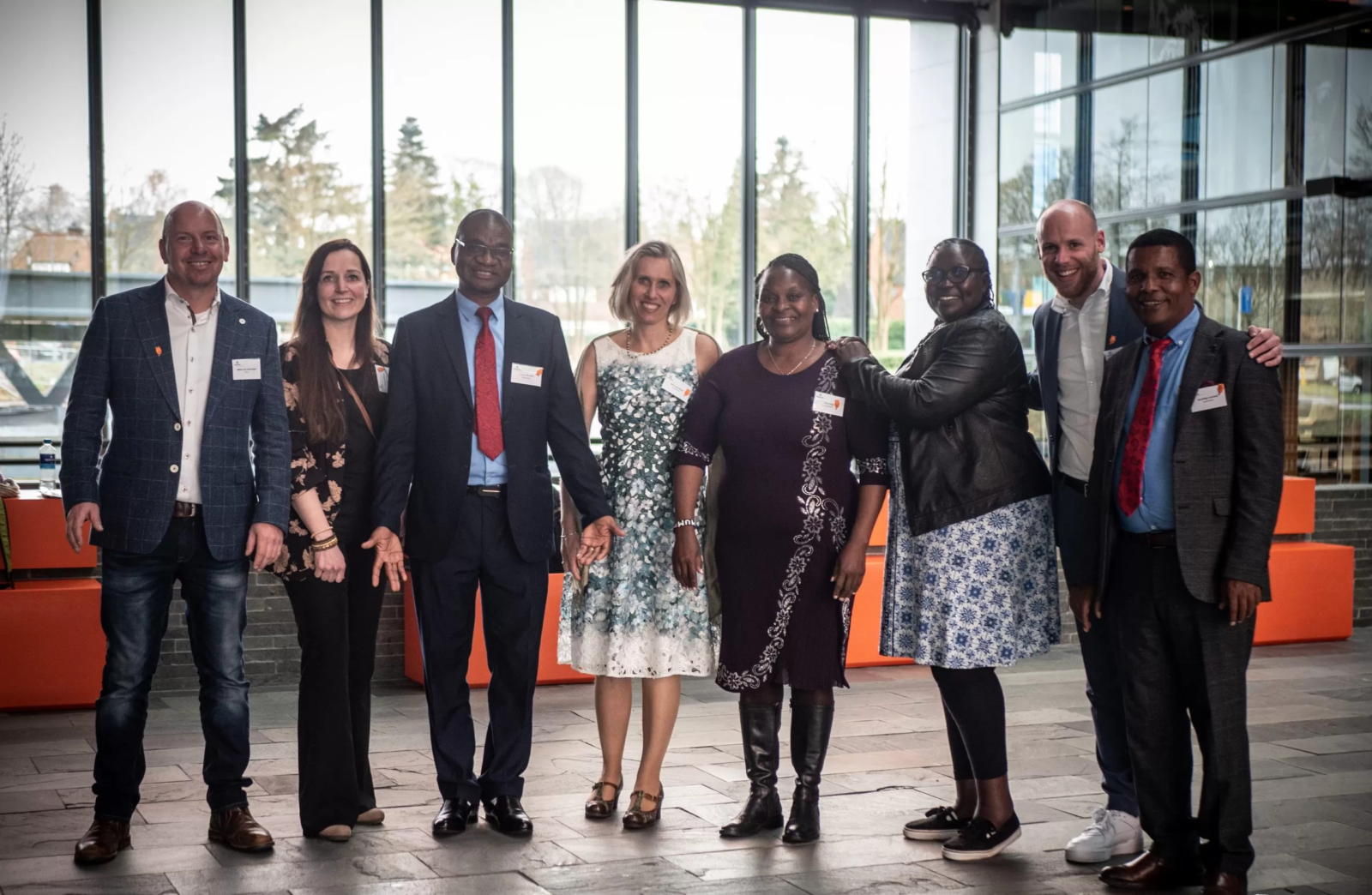
What does our organisation look like?

5. Governance and organisation

Edukans was founded in 2002 and is pursuing a worldwide mission to create opportunities, enabling children and young people to shape their futures with confidence. Edukans’ work could not succeed without our professional and dedicated staff across the world, our dedicated volunteers, and our ambassadors.
5.1 Organisational chart

5.2 Organisational structure and cornerstones approach
Edukans works across borders to enable as many children as possible to achieve better results in learning. In 2022 we continued to learn and develop towards a borderless organization with decentralized roles and responsibilities.
In our focus countries, the country directors take the lead in and are responsible for securing and carrying out projects. The Edukans team in the Netherlands has a complementary facilitating and empowering role.
Governance and decentralisation
Since 2021 the governance of the organisation has shifted from the management team in the Netherlands to an international leadership team. In 2022 we continued the process to decentralise responsibilities. We believe that together with local leadership this will make our interventions more effective. Country offices effectively engage with local actors and communities and are taking ownership of project implementation.
Cornerstones approach
Together with all Edukans colleagues we have embarked on a journey to becoming a truly borderless organisation with decentralised responsibilities.
What does it require from the organisation to unleash the power of education? What is our Edukans DNA and what do we stand for as an organisation? A thorough reflection by the IMT in Nairobi resulted in the adoption of the cornerstone approach. In consultation with all colleagues this approach has been elaborated, validated and visualised.
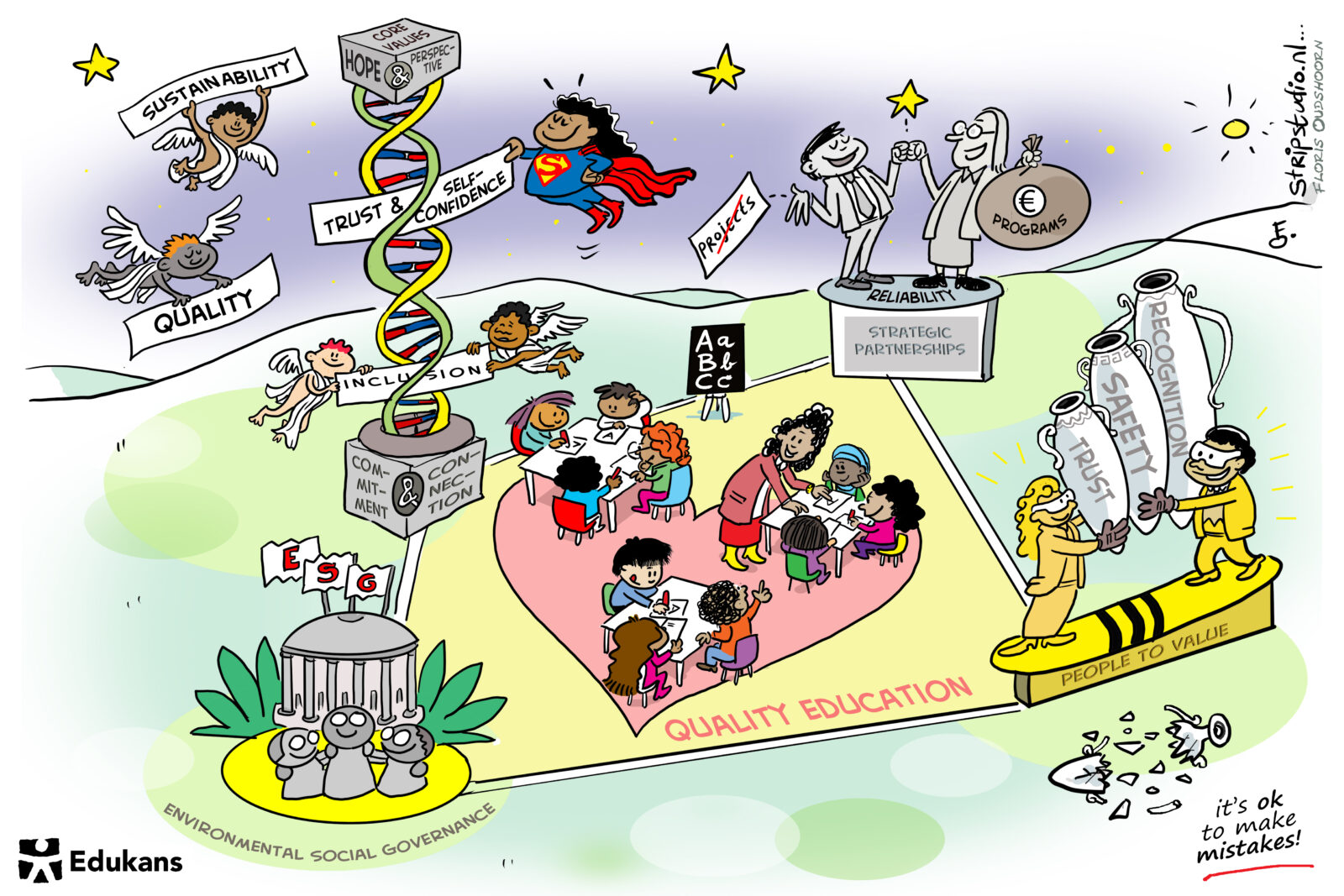
Obviously, quality education is at the heart of the organisation which is built on 4 cornerstones:
- Edukans DNA is reflected in our core values: Trust & Self-confidence, Hope & Perspective, Commitment & Connection to each other. Core values reflecting our way of working are sustainability, inclusiveness and quality and form an integral part of our Edukans DNA.
- Edukans is committed to Strategic partnerships. We are building long-term relationships with our partners in the countries where we operate and with those partners who support the work of Edukans. We are seen as a reliable partner who delivers as promised; partnership goes beyond project relationships.
- People to Value: Our staff and the people we work with are of great importance. They are not just resources to manage, but people to value. To make employees feel valued it is important to give them the recognition they deserve. Creating a culture of mutual trust is key. Edukans aims to create a safe environment for all our staff, this includes creating a safe learning environment, high integrity standards, and continuing to make safety and security a priority. We recognise that you learn most from your mistakes and failures. It is okay to make mistakes.
- Environmental Social Governance: In 2023 Edukans will develop an ESG policy that will support Edukans in sustainable development and decision making, in demonstrating the mission, and in stakeholder engagement on environmental, social and governance issues. The ESG policy will reflect the position of Edukans, the issues identified and how these will be addressed.
In 2023 we will further develop our human resources policy which is related to and part of the cultural trajectory One Strong Edukans. This complete journey will take a year and consists of group reflections, workshops, and group events. We will go through four phases led by an external facilitator.
Furthermore, respect for gender equality, diversity and inclusion is a priority for Edukans at both a national and global level. This is reflected in our recruitment and HR policy, however the effect may only become visible in the longer term.
5.3 Our staff and salary
Edukans is highly committed to providing our staff with a safe working environment where they can flourish and where they can carry out their profession in the best possible way, even under challenging circumstances. Edukans has Human Resources safety and integrity policies in place to ensure professional human resource management and development. The COVID-19 pandemic has made us even more aware of the importance of the health and well-being of our staff. Edukans had a high absenteeism percentage of 6.8% (7.62% corrected for part-time staff) in 2022 due to several long-term illnesses.
Edukans does not have its own generally binding collective labour agreement but follows the terms of employment regulation (AVR) and associated salary scales of the Protestant Church in the Netherlands (PKN).
All countries faced significant increases in the cost of living due to high inflation rates in 2022. To meet this, and in the interest of inclusiveness, it was decided to pay an additional cost of living allowance. All international staff received one additional month salary in 2022.
Our staff
| Edukans | Netherlands | Edukans | Ethiopia | Edukans | Uganda | Edukans | Malawi | Edukans | Kenya | |
|---|---|---|---|---|---|---|---|---|---|---|
| 2022 | 2021 | 2022 | 2021 | 2022 | 2021 | 2022 | 2021 | 2022 | 2021 | |
| Average number of FTE | 21,7 | 20,9 | 22,1 | 11,9 | 4,5 | 4,0 | 3,1 | 3,0 | 5,9 | 5,0 |
| End of the year number of staff | 28,0 | 23,0 | 27,0 | 17,0 | 5,0 | 4,0 | 4,0 | 3,0 | 7,0 | 5,0 |
| Gender balance | ||||||||||
| Female | 71% | 58% | 33% | 35% | 60% | 100% | 25% | 33% | 57% | 40% |
| Male | 29% | 42% | 67% | 65% | 40% | 0% | 75% | 67% | 43% | 60% |
5.4 Volunteers and ambassadors
In 2022 Edukans worked with 56 volunteers who enthusiastically and unselfishly commit themselves to Edukans. They provide a valuable contribution to our exchange programmes and offer support by doing a wide range of work activities at the Edukans office. Our ambassadors Bracha van Doesburgh, Martine van Os, Sofie van den Enk, Nick Schilder and Ron Boszhard ensure that an increasing number of people understand the importance of our work.

A very special thanks goes out to our volunteers and ambassadors who never wavered in their commitment and enthusiasm to support Edukans in striving for quality education. We could not have done it without them, and we look forward to resuming our activities in 2023.
5.5 Supervisory Board
The members of the Supervisory Board of Edukans are appointed for a period of five years and may be reappointed twice. As per 31 December 2022 the Supervisory Board consisted of the following members:
- Mr F.J.J.A. Kat, chairman, CEO of Deafblind International, an international not-for-profit membership organisation focused on the needs of individuals who are deafblind, their families and the professionals who provide services. Field of expertise: education (reappointed in 2021).
- Mrs M.C. Verstraeten, Principal at UniC, school for secondary education in Utrecht. Field of expertise: education and international collaboration (reappointed in 2021).
- Mr D.M.J. Haaksma, chairman audit committee, manager planning, control and risk at Stichting Hogeschool in Utrecht. Field of expertise: accountancy (appointed in 2022).
None of the members of the Supervisory Board have declared additional positions which may conflict with their membership of the Supervisory Board of Edukans. Each year, the members of the Supervisory Board receive a remuneration according to the relevant standards.
The document ‘Regulations of the Supervisory Board’ is a compilation of rules about the provision of information, the profile and the recruitment of Supervisory Board members and members of the audit committee. The committee focuses on the assessment of financial management and the quality of controls. It also assesses the work performed by the accountant and reports on this to the Supervisory Board during consultations about the annual accounts. The Supervisory Board held 6 meetings in 2022. The Supervisory Board monitors continuity, supervises the realisation of strategic objectives, reviews the quality of management, and advises the management board about relevant social developments. The Supervisory Board approves the strategic plan, the budget, the annual accounts and the annual report.
The Strategic Agenda 2021-2025 was developed in 2020 and was approved by the Supervisory Board in November 2020. In December 2022 the Supervisory Board approved a revision of the strategic plan supporting sustainable investment in the development of Edukans as one global organisation as part of the annual plan 2023.
5.6 Executive board and management
Petra van Haren is the executive director. The executive board and management of Edukans are appointed by the Supervisory Board. The authority of the executive director and the relationship between the executive director and the Supervisory Board are laid down in the articles of association, the Regulations of the Supervisory Board and the Bylaws. Based on the managerial assessment framework and the job description of the director, there are performance reviews with the executive director every year.
The salary of the executive director of Edukans has been determined in accordance with the Code of Good Governance for Charities (Wijffels Code), set in scale 15 of the Civil Servants’ Pay Decree and is apportioned to Edukans for 100 percent.
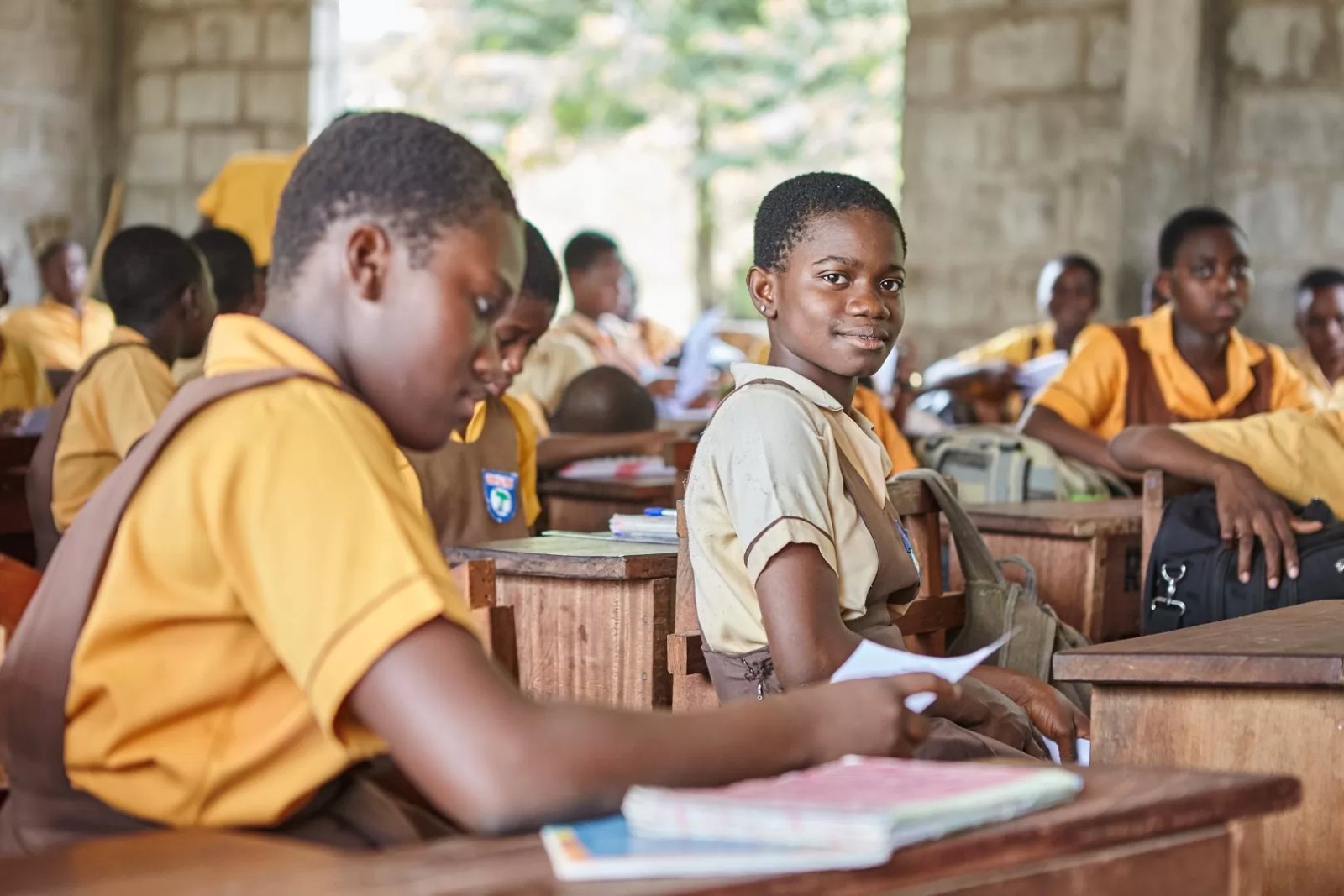
Want to read more about transparency and accountability?

6. Transparency and accountability

6.1 Statement of responsibility
Edukans holds a quality mark issued by the Dutch Central Fundraising Bureau (CBF). It includes the Code of Good Governance of the Wijffels Committee. In the statement of responsibility, Edukans indicates how it implements the three main principles of the CBF quality mark:
- Distinguishing supervision, management and performance
- Optimisation of effectiveness and efficiency of spending
- Optimisation of dealings with stakeholders
1. Distinguishing supervision, management and performance
Edukans has a board with a two-tier structure with an emphasis on dialogue with stakeholders and focus on achieving consensus. This governance model follows the subsidiary principle to ensure decisions are made as closely as possible to the deepest levels in the organisation with checks and balances between local and international decision-making in place.
The International Management Board of Edukans consists of four Country Directors, the Programme Manager, The Fundraising and Communication Manager, the HR Manager, the Finance & Operations Manager and the statutory CEO.
To guarantee a separation of functions and to prevent conflicts of interest, no close relationships are permitted between members of the Supervisory Board and the International Management Team. In addition, no connections are permitted between any of these members and an organisation with which Edukans, in the normal course of its work, conducts transactions that can be valued in monetary terms. In case of a potential conflict of interest, this will be resolved through discussion.
2. Optimisation of effectiveness and efficiency of spending
Edukans is always seeking to improve quality. For the implementation of its educational programme Edukans has an extensive knowledge system that monitors the quantitative and qualitative results that were targeted for each programme. This shows both the increase in the number of children and young people going to school or enjoying better quality schooling as well as the extent to which learning outcomes have improved and whether young people experience increase of employment opportunities as a result of the interventions by Edukans. For each programme, several qualitative results are also monitored, for example the available educational resources or the level of training of the teachers. Both the availability and quality of education are key indicators for Edukans. Through the strategic plan and the budget, Edukans will determine the guiding objectives.
Following the CBF guidelines on ratios for effective and efficient spending, the management board has set standards for objectives and the costs that may be incurred to achieve the objectives. A multi-annual forecast and annual budget is prepared, discussed in the audit committee and approved by the Supervisory Board. In case of a deviation of the spending of resources in relation to the budget, this is reported to the International Management Board, addressed in the audit committee and stated in the management report to the Supervisory Board.
3. Optimisation of dealings with stakeholders
The direct stakeholders of Edukans are children and young adults, teachers and public and private partner organisations in developing countries, donors, subsidy providers, employees and volunteers. Expectations and means of collaboration are made explicit in Memoranda of Understanding and other legal agreements. Due diligence is performed to mitigate financial, capacity and integrity risks. Contact with these stakeholders is maintained through various means of communication. Regularly, stakeholders are requested for their feedback which is then used to improve our services. Guidelines and procedures are laid down in the ISO procedure. In addition to personal contacts, collaboration with partner organisations is given substance through partner consultations, closely connected as they are with future policy development.
6.2 Integrity
Providing a safe working environment for staff members, teachers, scholars and partner organisations is high on the agenda within Edukans. An Integrity Committee consisting of three seniors monitors the effectiveness of the integrity system, coordinates the handling of a formal report and leads the development and implementation of policies, procedures and tools that support a culture in which people feel safe to discuss ethical dilemmas (moral deliberation) and dare to speak-up.
All staff members, Supervisory Board Members, volunteers and participants representing Edukans need to sign the Edukans Code of Conduct and the Child Protection Policy. A VOG statement is part of the recruitment and selection procedure. A Confidentiality Advisor has been appointed and trained for staff members to discuss any concern confidentially. Edukans participated in the moral deliberations organised by Partos in the Netherlands and during the International Week moral deliberation sessions took place. To make sure that the integrity system is completely implemented, it is necessary for talking about integrity to become a regular point of attention in the organisation, integrated in our daily work. Therefore, in 2023, moral deliberations will be continued to contextualise integrity and support a culture of open communication. The Edukans Integrity Policy includes guidelines on how to file a report and provides links to communication channels. In addition to the formal reporting channel integrity@edukans.nl early 2023 Edukans opens up an additional communication channel where people can report anonymously.
Two reports have been filed. One report concerns an attempt to bribe one of our staff members. The attempt failed. A disclaimer has been added to our correspondence making explicit Edukans zero-tolerance policy to protect staff members from being approached or compromised. A second report concerns a case of theft by one of the indirect partners Edukans works with. That partner is not contracted by Edukans. Edukans very much appreciates the open communication and reporting about the incident and the secure measures taken which resulted in the firing of a staff member, change of banking facility and budget resolution.
The integrity system at Edukans is working, providing a safe place for people to come forward and to speak up. Edukans will continue to build on the trust put in us by our stakeholders and lower the threshold for anyone wishing to raise a concern by paying specific attention to moral deliberations and the contextualisation of Integrity.
6.3 Compliance, quality and transparency
Edukans, as a recipient of public funds, and receiving gifts and donations from private donors, foundations and companies, churches and schools, needs and wants to be transparent, accountable and efficient. This is why continuous learning, improvement of quality, progress and efficiency are laid down in the strategic plan, the management report and the quality system (in accordance with ISO standard 9001: 2015 and the Partos Declaration 9001-2015, version 2018).
ISO 9001:2015 & Partos Declaration (version 2018)
Edukans has been ISO-certified since 2006. Edukans is certified under the ISO 9001:2015 standard and holds a valid Partos declaration (version 2018). The ISO-standard provides a quality management framework and ensures a philosophy of continual improvement, good governance, integrity and transparency. The Partos Declaration is a sector-specific application to implement ISO 9001:2015 (version 2018) which takes into consideration specific circumstances of our work and kind of activities with specific attention to integrity. Operations are audited internally and externally by KIWA, and findings are discussed with management and the Supervisory Board. At the beginning of 2022 Edukans was again assessed with no shortcomings. The recommendations of the audit in 2021 were addressed successfully. Edukans received the recommendation to update the policy on corporate social responsibility. In response to this, Edukans is developing an Environmental, Social & Governance (ESG) policy.
Central Bureau on Fundraising (CBF)
The Central Bureau on Fundraising (CBF) monitors all philanthropic bodies in the Netherlands and evaluates their management and policy, in order to increase the transparency of the charitable sector. Edukans holds the CBF Seal of Approval and complies with its requirements.
Tax Authorities
Edukans is recognised by the Dutch Taxation Department as a charitable institution (ANBI), which means that donations and bequests to Edukans are not taxed. Donors can obtain income tax deductions for their contributions to Edukans.
Dutch Association of Fundraising Organisations (GDN)
The Dutch Association of Fundraising Organisations (GDN – Goede Doelen Nederland) is the umbrella organisation for philanthropic organisations that raise private funds in the Netherlands. Edukans upholds the principles of GDN in relation to respect, reliability, openness and quality.
Dutch Accounting Standards Board (DASB)
Our annual accounts are drawn up in accordance with the Guidelines (650) for Financial Reporting by Fundraising Institutions of the Dutch Accounting Standards Board (DASB). External reporting includes an annual report and accounts, which are verified by an auditor and accompanied by an auditor’s statement. Edukans has appointed Crowe Foederer as its external auditor. The external audit covers the audit of the annual accounts as well as those for various projects. The auditor does not provide any non-auditing (e.g., advisory) services.
OPTA
In its telemarketing activities, Edukans complies with the laws and regulations of the Independent Post and Telecommunications Authority of the Netherlands (abbreviated in Dutch as: OPTA). For donations via text messaging through ‘Geef SMS (4333)’, Edukans complies with the SMS Service Provision Code of Conduct and the Advertising Code that applies for this.
Complaint procedure
If anyone would like to make a complaint, Edukans has a complaint policy and multiple channels for reporting published on the websites of Edukans. This includes one facilitating anonymity on integrity complaints.
6.4 Risks
Edukans manages risks internationally at organisational, country, and project levels. A comprehensive risk register is kept and monitored. Management is aware that economic conditions can change quickly, politics can be unstable, and markets volatile. Risks are assessed and response measures taken and monitored to mitigate and/or absorb the impact of a risk.
Organisational risks
In 2022 Edukans decentralised responsibilities to the country offices and instated an International Management Team with representation from all focal countries. Edukans is in the midst of the trajectory to build one sustainable borderless Edukans with shared systems, an equal and inclusive HR policy, an annual and reporting cycle, an ESG policy, a culture that supports a safe working environment and an international scope, and a project cycle management effective cross-border. The IMT identifies risks and monitors and improves the process.
Financial risks
Internal control procedures are in place to mitigate and/or absorb financial risks relating to potential misuse of funds and potential losses (i.e., due to corruption, fraud, theft or high inflation rates), as well as for receiving, allocating and payment of funds. Financial management has adopted a sustainable investment strategy which includes diversification of the investment portfolio decreasing dependencies on a limited number of funds, improving the cost recovery ratios, improving sound financial management practices, and sustaining long term relationships with strategic partners.
Ongoing violence worldwide, devaluation of currencies and high inflation rates occur in all the countries Edukans is active in. Risks are mitigated with balancing transfer and currency conversion dates. Inflation costs are absorbed within the budget when permitted. All staff members have been compensated partially for the high inflation and increase in living costs. As a good and responsible employer, Edukans is committed to contributing to the wellbeing of staff members by providing a decent income.
Pandemics and civil unrest
The pandemic is affecting all of us. Programmes are managed taking potential outbreaks of Covid-19, Ebola (in Uganda) or currently Cholera (in Malawi) into account by redirecting resources to provide support to the affected programme partners and communities we work with to cope with the situation at hand. During an outbreak, schools close and meetings and trainings bringing people together are discontinued temporarily. To deal with the situation at hand, it is key to offer support through online and radio communication and coping mechanisms for the communities Edukans works with. In Ethiopia the civil unrest and fighting enhanced the risks of working safely in the region, increased the number of refugees and puts pressure on the mental health of those working in education. Edukans has developed a way of working, ‘Education in Emergencies’, that in its design responses to working in a violent and unpredictable environment with characteristics of a short-term focus, and explicit inclusion of Mental Health and Psychosocial Support (MHPSS) and safety and security.
Maintaining a good reputation
Edukans cherishes its reputation as a trustworthy partner to collaborate with, providing high quality programmes with highly skilled people to work with. Edukans is highly committed to providing a safe working environment for all staff members, partners, and people we are working with. Edukans is implementing our integrity policy, together with investing in staff capacity, education instruments, communication and relationship management.
Alignment of policies
Strategic priorities of governments and partner organisations can change over time. Education programmes can only be effective when aligned to governmental objectives and priorities. Edukans works closely with governmental agencies and certification institutes to prevent misalignment of policies and strengthen the education system now and in the future.
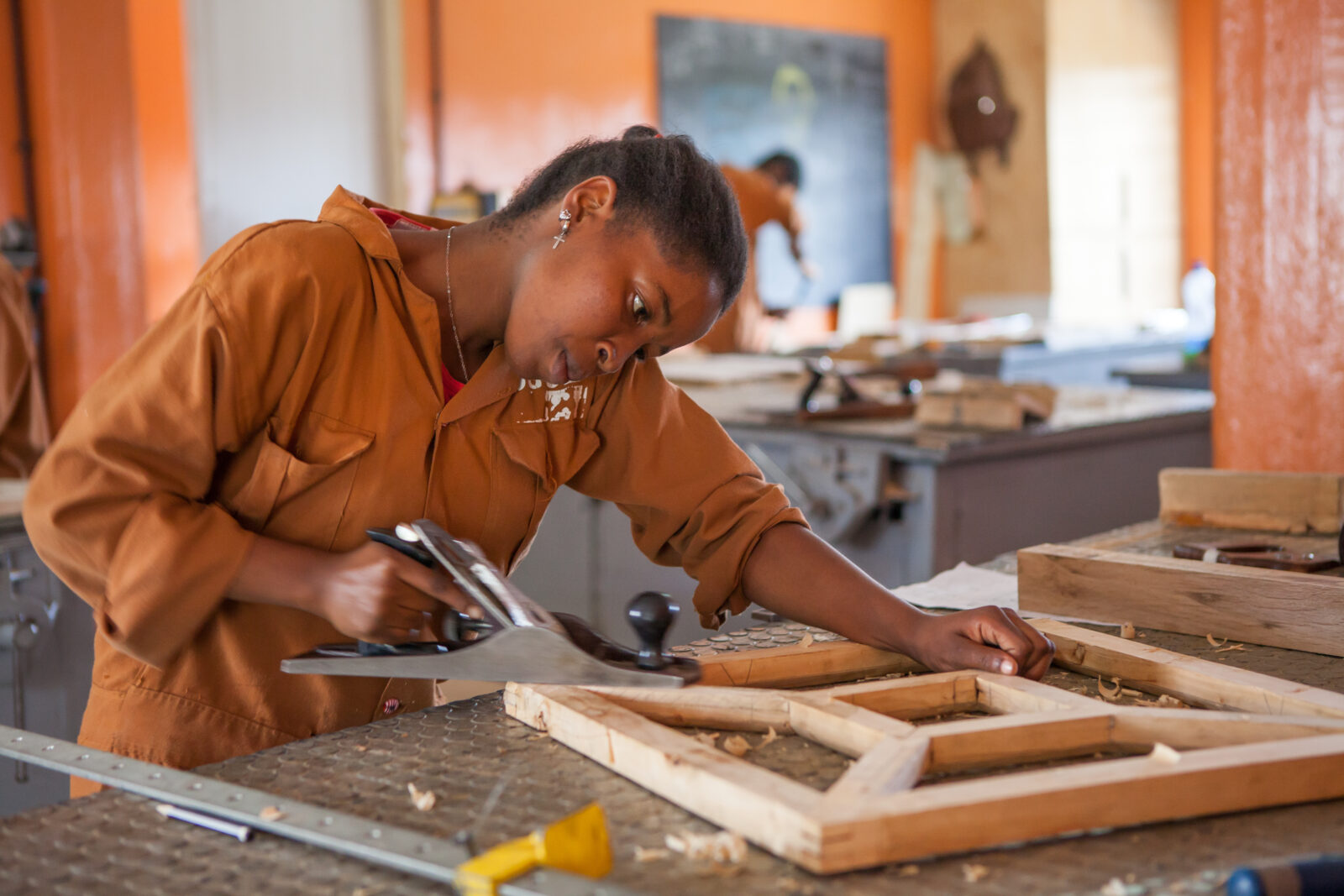
What are our goals for 2023?

7. Outlook

Education programmes
Through our 20 years of experience we have learned which models can be used effectively and how to apply our interventions successfully. Our work focuses on upscaling these interventions through trickling down models, and also through working at another level to ensure as many schools, teachers and students as possible can be reached. To shape sustainable futures, education systems often need to be redefined, and upscaling of our interventions is necessary, while maintaining the professional, personal and solid method of working that is so characteristic for Edukans.

Geographical focus
Edukans rolls out its strategy in four focus countries: Ethiopia, Kenya, Malawi and Uganda. Country offices have been established and registered in these countries, and national staff engaged. In these countries Edukans aims to develop a diversified portfolio, offering the full range of Edukans programmes to change the long-term perspective of people in these countries. In addition to these focus countries, Edukans also implemented projects in Ghana, DRC, Lebanon and India.

Thematic focus
Edukans is committed to improving the quality of education through 4 programmes: Basic Education, Skills for Work and Life, Education in Emergency and Exchange programmes. It has been decided to treat Education in Emergency as a separate programme pillar, since the context and target group require a different approach, and it is broadly recognised as a different programme.
These programme pillars are complemented with themes which recur in each of the programmes, forming an integral part of our global strategy. These themes will be further developed and integrated in 2023.
Climate change
Climate can no longer simply be considered a cross-cutting theme. It is time to realise that a paradigm shift has occurred, and the climate crisis is THE core crisis that has to be addressed with a multi-disciplinary approach. For Edukans, this requires a rethinking of how education can be part of the solution to the climate crisis.

Digitalization
The digital divide is of growing concern. Some two thirds of the world’s school-aged children do not have internet connection in their homes, restricting their opportunities for further learning and skills development. Digitalisation is a high priority in all countries we work in. Consequently, digital skills development needs to be an integral part of our education modules and be integrated in pedagogical skills. An excellent way to achieve this is through our educational modules as we make e-learning and blended learning an integral part of education systems.

Gender and Inclusion
In joint collaboration with the countries Gender & Inclusion champions a transformative Gender & Inclusion policy will be finalized and deployed in 2023.
Funding
Resource mobilisation is critical to generate the desired impact on education. The continuously changing donor landscape and the role of Civil Society and INGOs require thorough reflection and the ability to adapt to these developments, without losing the focus on our mission and the achievement of our strategic agenda. We are therefore working on adjusted funding strategies.
Strategic partnerships
We are fostering educational opportunities through strategic partnerships with a limited number of strategic partners with whom Edukans has a long-term relationship. Strategic Partnerships will be built both at global and national level. Edukans values its partners and strives to be perceived as a reliable partner who delivers as promised. Partnership goes beyond project relationships.
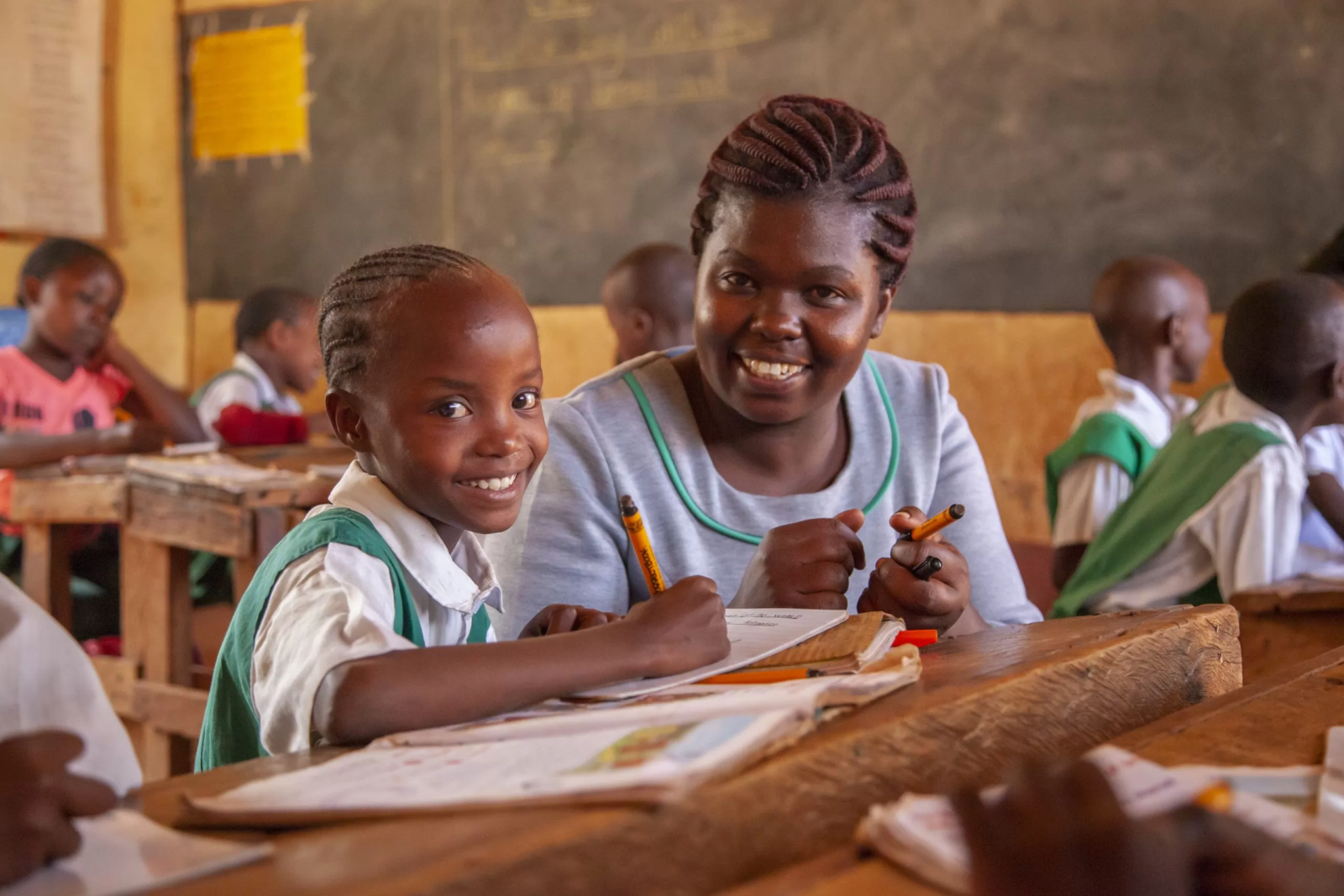
What does our financial statement look like?
Navigate to
- Introduction
- Budget 2023
- Financial statements 2022, Edukans Foundation
- Notes on the consolidated balance sheet at 31-12-2022
- Notes to the consolidated statement of income and expenditure
- Edukans Foundation Netherlands
- Appendix 1: Project subsidies and contributions per continent and country
- Appendix 2: List of projects 2022

8. Financial report

Introduction
Edukans made a loss of €1,063,208 in 2022. €296,598 are costs covered for these projects reserved restricted funds for which income was received in 2021 and €58,301 are costs made as part of the Sustainable Borderless Organisation, an earmarked reserve established by the one-time gift received from UnieNzv in 2021. €417,640 is an unrealized loss in investments. The conservative investment approach that Edukans adopted did not sufficiently protect the investment portfolio from the very difficult economic circumstances. As the unrealized losses were not anticipated, the remaining loss of €290,669 is in line with the budget.
The table below provides an overview of the budget realisation of Edukans where we compare the actuals to the budget of 2022.
Budget
| € * 1,000 | |
|---|---|
| Budget | -284 |
| A. Lower income from institutional grants | -592 |
| B. Lower other income | -857 |
| C. Higher spending on objective | 631 |
| D. Higher fundraising costs and management/administration | 507 |
| E. Lower financial income and expenditure | -467 |
| Net result | -1,063 |
Key figures
| € * 1.000 | 2022 | Budget | 2021 | 2020 | 2019 |
|---|---|---|---|---|---|
| Revenues | 5,914 | 7,363 | 6,904 | 7,169 | 8,144 |
| Spent on objectives | 5,224 | 5,855 | 5,165 | 6,347 | 6,813 |
| Fundraising expenses | 973 | 1,536 | 1,142 | 1,269 | 1,337 |
| Mangement and administration expenses | 362 | 306 | 278 | 283 | 240 |
| Expenditure | 6,559 | 7,697 | 6,585 | 7,899 | 8,390 |
| Net financial income and expenditure | -417 | 50 | 78 | 124 | 109 |
| Result from participation | - | - | 36 | 48 | 8 |
| Net result recurring activities | -1,063 | -284 | 433 | -558 | -129 |
| One time gift UnieNzv | - | 2,200 | |||
| Net result | -1,063 | -284 | 2,633 | -558 | -129 |
Income and expenses
In 2022 total revenues were €5,913,950, a decrease of €-989,646 compared to 2021, excluding the one-time gift from UnieNzv of €2,200,000. The difference can be explained as follows:
- Funding from private donors decreased slightly by 2.4%. From 2022 onwards, individual donations raised through schools are included in this total. An increase of almost 4% was budgeted.
- Income from private organisations remains stable.
- The annual contribution of €500,000 from the Dutch Postcode Lottery provides a stable financial basis.
- Income from institutional fundraising in 2022 shows an increase of 13% by the amount of €197,659. The total new contracted amount for Institutional Funding increased in 2022 as compared to 2021. In 2022 Edukans committed €3,400,000 to spend on multi-annual projects. Due to several contracts having been signed in the third trimester; a major part of the income will be reflected in 2023. In the last quarter of 2022 Edukans received advance payments from UNICEF and Enable that will materialise as income as of 2023. Partnerships with UNICEF, Enable and UNHCR are expected to contribute to a stable income for the coming years. The consolidated figures include the contribution by UNICEF and UNHCR in Ethiopia.
- In 2022, income from other non-profit organisations was €633,044 which is €431,989 lower than 2021. Income from other non-profit organisations contribute to the financing of short-term projects and co-funding of projects financed through grants. Approximately €300,000 is raised through schools. Starting in 2022 this amount is included in the figures for individual giving and no longer under non-profit organisations. Due to Covid-19 the physical exchange programme had to be converted into an online programme resulting in less income generation by schools. The remaining amount not raised contributes to the overall negative results.
- With a total amount of €6,559,518 expenses are 0.4% lower than was budgeted in 2022.
Costs percentages
| 2022 | Budget | 2021 | 2020 | 2019 | |
|---|---|---|---|---|---|
| Spending on objectives relative to income | 88.3% | 79.5% | 74.8% | 88.5% | 83.7% |
| Spending on objectives relative to expenditure | 79.6% | 76.1% | 78.4% | 80.4% | 81.2% |
| Costs fundraising relative to income | 16.5% | 20.9% | 16.5% | 17.7% | 16.4% |
| Costs fundraising relative to income excl. grants | 23.4% | 30.6% | 21.4% | 17.7% | 16.4% |
| Costs management & administration relative to expenditure | 5.5% | 4.0% | 4.2% | 3.6% | 2.9% |
Programme – spending ratio
In 2022, an additional programme objective “Education in Emergencies” has been developed responding to the in-country requests for short term and flexible projects tailored to the education and mental health support needs of refugees, internally displaced people and their teachers, providing education in volatile environments. Edukans spent €5,223,884 on its objectives, a slight increase on the €5,164,623 spent in 2021.
Income-to-spending ratio
Spending on objectives relative to expenditure remains stable at 79.6%. Spending on objectives relative to income has increased to 88.3%. This reflects the decrease in revenues in 2022.
Fundraising costs ratio
In 2022, the percentage of the fundraising costs in relation to the income (excluding subsidies) showed a slight increase from 21% to 23%.
Management and administration ratio
Management and administration costs in 2022 were slightly higher than in 2021 at 5.5%, due to changes in FTE, which is above the maximum standard of 5% set by management. With the changing management and governance model incorporating cross-border decentralisation of responsibilities this figure is expected to increase slightly in the coming years. In 2022 the overhead costs allocation key of 12.7% across all objectives was allocated to Management and Administration, in 2021 this was 9%. In 2025, at the end of the strategic framework 2021-2025, Edukans will redefine the standard to match the organisation management and governance model.
Reserves and funds
| € * 1.000 | 2022 | 2021 | 2019 | 2018 |
|---|---|---|---|---|
| Continuity reserves | 2,764 | 3,472 | 2,317 | 2,410 |
| Earmarked reserves | 1,042 | 1,100 | 150 | 788 |
| Restricted funds | 767 | 1,064 | 537 | 364 |
| 4,573 | 5,636 | 3,004 | 3,562 |
Continuity reserves
The loss of €708,309, including the unrealized loss of €417,640 in investments, has been allocated to the continuity reserves, which amount to 0.95% of the annual organisation costs. In 2021, 50% of the one-time gift was added to the continuity reserves in anticipation of higher operational costs. This increase is partly due to the expected costs involved in the transition into the decentralised management and governance of the organisation, and partly in anticipation of the increased costs to mitigate the risks to security and safety, and of inflation, considering the volatile environment INGOs are currently operating in.
Earmarked reserve “Sustainable Borderless Organisation”
An earmarked reserve of €1,100,000 was established in 2022 as part of the Sustainable International Edukans one-time gift from UnieNzv of €2,200,000. This earmarked reserve, referred to as “Sustainable Borderless Organisation”, enables Edukans to invest in developing further as a financially sustainable, innovative and professional civil society organisation. Sustainability, a diversified donor portfolio, and long-term partnership building, innovation in education, and one cross-border Edukans with a decentralized management and governance structure are key in creating impact and unleashing the power of education. In 2022, costs of €58,301 were allocated to the earmarked reserve of which €39,471 was spent on a one-time salary increase for staff in country offices to compensate partly for the high inflation rates which, in some cases, were more than 30% due to increased costs for food, gas and electricity. The remaining costs were spent in support of the cultural trajectory of one-borderless organisation.
Restricted funds
A total of €296,598 was allocated for costs of the restricted funds (Dare2Go, and Emergency Fund) for which reserves have been built over previous years.
Budget 2023
| Incoming revenues | € * 1.000 |
|---|---|
| Individual giving | 3.385 |
| For profit organisations | 175 |
| Lottery organisations | 550 |
| Institutional grants | 3.500 |
| Other non-profit organisations | 1.169 |
| Total revenues | 8.778 |
| Spent on objectives | |
| Basic Education | 1.338 |
| Education in Emergencies | 2.085 |
| Skills for Work and Life | 1.958 |
| Capacity-building | 849 |
| Exchange programmes | 655 |
| Information activity | 784 |
| Total spent on objectives | 7.667 |
| Fundraising expenses | 1.463 |
| Management and administration expenses | 373 |
| Total expenditure | 9.503 |
| Result before financial income and expenditure | -725 |
| Financial result investments | 0 |
| Net result | -725 |
In 2023 the total anticipated budget is €8,779,000, an increase of 19% compared to the 2022 annual budget. Edukans anticipates implementing 30 projects in 2023. A budget of €144,000 from the continuity reserve will be used to fund part of the operational costs. A budget of €381,000 will be made available from the earmarked reserve to invest in “Sustainable Borderless Organisation”.
Edukans expects to grow gradually in the coming years, aiming at an annual turnover of €9.5M in 2024, growing towards an annual budget of at least €10M in 2025. Based on the assumption that the gradual growth in private and international funding will continue in the coming years all focus countries will offer a diversified project portfolio.
Edukans is a financially healthy organisation and expects to work with a (nearly) balanced budget in the coming years. Some negative results in 2022 were anticipated for and can be justified. Other exceptional costs are necessary to enable Edukans to transform into an organisation with a diversified donor portfolio, long term partnerships and decentralised management and governance structure. These can be financed from existing reserves and funds.
FINANCIAL STATEMENTS 2022, EDUKANS FOUNDATION
Consolidated balance sheet at December 31, 2022 (after result appropriation) (in euros)
| ASSETS | Ref. | December 31, 2022 | December 31, 2021 | ||
|---|---|---|---|---|---|
| Fixed assets | |||||
| Intangible fixed assets | 1 | 17.120 | 34.090 | ||
| Tangible fixed assets | 2 | 96.508 | 116.398 | ||
| Financial fixed assets | 3 | 0 | 15.968 | ||
| 113.628 | 166.456 | ||||
| Current assets | |||||
| Receivables | 4 | 271.660 | 273.762 | ||
| Investments | 5 | 2.613.084 | 3.040.982 | ||
| Cash | 6 | 2.791.612 | 3.237.028 | ||
| 5.676.356 | 6.551.772 | ||||
| Total assets | 5.789.983 | 6.718.228 | |||
| LIABILITIES | Ref. | December 31, 2022 | December 31, 2021 | ||
| Reserves and funds | 7 | ||||
| Reserves | |||||
| - Continuity reserves | 2.763.850 | 3.472.159 | |||
| - Earmarked reserves | 1.041.699 | 1.100.000 | |||
| 3.805.549 | 4.572.159 | ||||
| Funds | |||||
| - Restricted funds | 767.391 | 1.063.989 | |||
| 4.572.940 | 5.636.148 | ||||
| Provisions | 8 | 23.737 | 23.391 | ||
| Short term liabilities | 9 | 1.193.305 | 1.058.689 | ||
| Total liabilities | 5.789.983 | 6.718.228 |
Consolidated statement of income and expenditure, 2022 – (in euros)
| Ref. | Actual 2022 | Budget 2022 | Actual 2021 | |
|---|---|---|---|---|
| Incoming revenues | 10 | |||
| Individual giving | 2,844,316 | 3,004,000 | 2,895,190 | |
| For profit organisations | 114,634 | 120,000 | 119,145 | |
| Lottery organisations | 564,943 | 500,000 | 1,264,874 | |
| Institutional Grants | 1,757,013 | 2,349,000 | 1,559,354 | |
| Related non-profit organisations | 0 | 0 | 2,200,000 | |
| Other non-profit organisations | 633,044 | 1,390,000 | 1,065,033 | |
| Total revenues | 5,913,950 | 7,363,000 | 9,103,596 | |
| Spent on objectives | 11 | |||
| A. Basic Education | 2,335,941 | 2,512,000 | 2,905,061 | |
| B. Skills for Work and Life | 1,564,883 | 1,581,000 | 1,052,497 | |
| C. Capacity-building | 454,785 | 563,000 | 424,798 | |
| D. Exchange programmes for teachers and students | 246,081 | 451,000 | 184,956 | |
| E. Information activity | 622,194 | 748,000 | 597,311 | |
| Total spent on objectives | 5,223,884 | 5,855,001 | 5,164,623 | |
| F. Fundraising expenses | 973,137 | 1,535,999 | 1,141,588 | |
| G. Management and administration expenses | 362,497 | 306,000 | 277,904 | |
| Total expenditure | 6,559,518 | 7,697,000 | 6,584,115 | |
| Result before financial income and expenditure | -645,568 | -334,000 | 2,519,481 | |
| Net financial income and expenditure | 12 | 0 | 0 | 53,085 |
| Result from participation | 13 | 0 | 0 | 35,645 |
| Financial result investments | 14 | -417,640 | 50,000 | 24,310 |
| Net result | -1,063,208 | -284,000 | 2,632,521 | |
| Additions to/withdrawals from: | ||||
| Continuity reserve | -708,309 | 0 | 1,154,685 | |
| Earmarked reserves | -58,301 | -284,000 | 950,000 | |
| Restricted funds | -296,598 | 0 | 527,836 | |
| -1,063,208 | -284,000 | 2,632,521 |
Consolidated cashflow statement 2022
| 2022 | 2021 | |
|---|---|---|
| Cashflow from operating activities | ||
| Result before financial income and expenses | -645,568 | 2,519,481 |
| Adjustments for: | ||
| - Depreciation (in)tangible fixed assets | 52,278 | 40,021 |
| - Change in provisions | 346 | -286,608 |
| 52,624 | -246,587 | |
| Movements in working capital | ||
| - Change in current assets | 2,103 | 4,383,348 |
| - Change in current liabilities | 134,616 | -681,547 |
| 136,719 | 3,701,801 | |
| Cash generated from operations | -456,225 | 5,974,695 |
| Interest received | 0 | 53,085 |
| Net cash generated from operating activities | -456,225 | 6,027,780 |
| Cashflow from investing activities | ||
| Investments in (in)tangible fixed assets | -15,418 | -190,509 |
| (Un)realized gains and losses on investments | -417,640 | 24,310 |
| Repayment of share in participation | 15,968 | 10,351 |
| Sold participation | 0 | 93,301 |
| Cashflow from financing activities | ||
| none | ||
| Net cashflow | -873,315 | 5,965,233 |
| Cash, investments and cash equivalents at beginning of period | 6,278,010 | 312,777 |
| Cash, investments and cash equivalents at end of period | 5,404,696 | 6,278,010 |
| Change in cash and cash equivalents | -873,314 | 5,965,233 |
| The cashflow statement was prepared using the indirect method. |
General explanatory notes and accounting principles
General
Activities
The Edukans Foundation, which was founded in 2002, has its registered office in Amersfoort and is registered at the Chamber of Commerce of the Netherlands (no. 32092131).
The foundation has two objectives:
a. Access to education and the quality of education in developing countries
b. Involving the Dutch public and in particular the educational sector in the Netherlands with this mission
and beyond this, everything that directly or indirectly relates to this or can be conducive to this, in the broadest sense of the word.
Consolidation
For 2022 the Edukans Foundation Ethiopia financial statements are included in the consolidated financial statements. The activities of the offices in Malawi, Kenya and Uganda were still limited in 2022, meaning that limited expenses were incurred. For this reason, these international foundations are not consolidated in 2022. The expenses incurred have been included under the ‘Capacity-building’ objective.
Related parties
In 2021 the group structure changed as a result of a decision to create an independent Edukans organisation.
From October 6, 2021, Edukans is no longer responsible for the current and contingent liabilities of the Stichting Kwintessens Educatief (UnieNzv) and Kwintessens B.V.
Continuity
The annual accounts have been prepared on a going concern basis.
Accounting principles for valuation of assets and liabilities and revenue recognition
The financial statements have been drawn up in conformity with the guidelines for financial reporting by fundraising organisations (RJ 650) provided by the Dutch Council for Accounting Standards (Raad voor de Jaarverslaggeving). In general, assets and liabilities have been valued at acquisition price. If no specific accounting principle is mentioned, valuation has been made at acquisition price. The actual rate differences on stocks (bonds and shares) and foreign currencies have been processed directly in the statement of income and expenditure. Income and expenditures are allocated to the year to which they relate and/or have been granted to third parties.
Estimates
In order to be able to apply the principles and rules for preparing the annual accounts, it is necessary for the management of Edukans to evaluate various matters and make estimates that can affect the amounts recorded in the financial statements. If it proves necessary, to provide the insight described in Art. 2:362 paragraph 1 of the Dutch Civil Code, the nature of these opinions and estimates, including the underlying assumptions, is described in the related notes to the financial statements.
Functional and presentation currency
The entries in the financial statements have been valued in accordance with the currency of the economic environment in which Edukans mainly operates (functional currency). The annual accounts have been prepared in euros; the euro is both the functional and the presentation currency of Edukans. Amounts in foreign currencies are converted into euros at the rates of exchange applicable at the balance sheet date. Transactions denominated in foreign currencies are converted at the rates of exchange applicable at the time of the transaction. The average rate for the current financial year is applied.
Any resulting exchange differences are taken into account in the statement of income and expenditure.
Financial instruments
‘Financial instruments’ is understood to mean both primary financial instruments such as receivables and debts, and financial derivatives. For the principles underlying the primary financial instruments, reference is made to the treatment of each balance sheet item.
VALUATION PRINCIPLES FOR THE BALANCE SHEET
Intangible and tangible fixed assets
Software and other inventory and operating assets are valued at historical cost or manufacturing price including directly attributable expenditure, less straight-line depreciation over their estimated useful lives and impairment losses.
Financial fixed assets
A historical cost-based accounting system has been used. In general, assets and liabilities have been valued at acquisition price.
Participations (associates), over which significant influence can be exercised, are valued according to the net asset value method. The net asset value is calculated in accordance with the accounting principles that apply for these financial statements; regarding participations in which insufficient data is available for adopting these principles, the valuation principles of the respective participation are applied. If the valuation of an associate based on the net asset value is negative, it will be stated at nil. If and insofar as the Edukans Foundation can be held fully or partially liable for the debts of the associate or has the firm intention of enabling the participation to settle its debts, a provision is recognised for this.
Receivables
Receivables have been recorded at fair value and thereafter at amortised cost, after deduction of the necessary provisions for the risk of non-payment.
Investments
Investments (bond and share funds) are measured at fair value. Changes in value and transaction costs are recognised through income and expenditure.
Provisions
Provisions are made for legally enforceable or actual liabilities existing on the accounting date, which are likely to entail an outflow of resources, the size of which can be estimated in a reliable manner.
Debts
In the initial accounting, debts have been valued at fair value. Transaction costs that are directly attributable to the acquisition of debts have been included in the valuation in the initial accounting. After the initial accounting, debts have been valued at the amortised cost, being the amount received taking into account the premium or discount and after deduction of the transaction costs.
ACCOUNTING PRINCIPLES FOR REVENUE RECOGNITION
General
The balance (result) is defined as the difference between total income and total expenditure. The revenues are accounted for in the year in which they are realised; expenses are accounted for as soon as they are foreseeable. Income that is received in the form of goods or services is valued at fair value, to the extent that this can be determined. In such cases, this income is included in the statement of income and expenditure.
Revenues that are designated for a particular purpose have been incorporated into the statement of income and expenditure; if these revenues are not spent in full in the year under review, the unspent funds are included in the relevant earmarked reserve or earmarked fund, respectively. A withdrawal from an earmarked reserve or restricted fund, respectively, is recorded as an expense in the statement of income and expenditure.
Expenses are determined on a historical basis and assigned to the year under review to which they relate.
Gifts
Gifts are accounted for in the year in which a specific campaign was held, or – if no specific campaign took place – in the year in which the gift was received.
Legacies
Revenues from legacies are accounted for in the financial year if a deed of partition is available per balance date. Payments in the form of advances are accounted for in the financial year of receipt.
Government subsidies and other grants
Subsidies from governments, municipalities, etc., that are received to carry out projects or programmes, whereby the subsidy-provider acts as a financer or co-financer, have been accounted for separately in the income statement. Operating grants are accounted for as income in the statement of income and expenditure in the year in which the subsidised costs are incurred or revenues foregone, or when a subsidised operating deficit occurs. The income is accounted for if it is likely to be received and if the foundation can demonstrate the conditions for receipt.
Fundraising expenses
The costs of Edukans’ own fundraising are allocated per cost item and personnel costs on the basis of the estimated number of hours spent. Other expenses – including housing costs – are likewise attributed to the objectives based on the actual time spent by staff.
Implementation costs of own organisation
The implementation costs of the organisation are allocated per cost item and personnel costs based on estimated hours spent. The implementation costs of the organisation are divided on the basis of the amount of time spent by staff members.
Management and administration expenses
According to Guideline 650 of the Dutch Council for Accounting Standards, the statement of income and expenditure should include a separate line about management and administration costs. The management chose the model attribution method provided by Goede Doelen Nederland. The management and administration expenses are expressed as a percentage of total expenditure. The management set a target of 5% as the maximum norm for management and administration expenses.
Pensions
The Edukans Foundation has placed all employee pension schemes with the PFZW pension fund, based on the standard PFZW pension scheme (average pay scheme). Guideline 271 offers the possibility of treating this scheme as a defined contribution scheme, because:
a) the foundation is affiliated with a sectoral pension fund (PFZW) and uses the same pension scheme as other legal entities.
b) the foundation is under no obligation to make supplementary contributions, there being no rise in future premiums in the event of a deficit at PFZW.
The PFZW (pre-) pension scheme satisfies both conditions. The scheme may therefore be treated as a defined contribution scheme under RJ 271. This means that the premium invoices from PFZW have been accounted for under pension expenses and the outstanding part of the premiums under short-term liabilities.
Staff remuneration
Periodic payable remuneration, such as salaries and social security expenses, has been included in the statement of income and expenditure on the basis of the terms of employment, to the extent that this is owed to employees. Edukans foundation adheres to the collective labour terms and conditions of PKN.
ACCOUNTING PRINCIPLES FOR THE CASHFLOW STATEMENT
The funds in the cashflow statement consist of cash and floating stocks. The stocks can be seen as highly liquid assets. Cashflow in foreign currency has been valued at the transaction rate.
NOTES ON THE CONSOLIDATED BALANCE SHEET AT DECEMBER 31, 2022
01. Intangible fixed assets
| December 31, 2022 | December 31, 2021 | |
|---|---|---|
| Software | ||
| Cost | 88,253 | 0 |
| Accumulated depreciation | 54,163 | 0 |
| Balance as of 1 January 2022 | 34,090 | 0 |
| Purchases | 0 | 0 |
| Transfer assets from UnieNzv* | 0 | 45,414 |
| Depreciation | -16,970 | -11,324 |
| -16,970 | 34,090 | |
| Cost | 88,253 | 88,253 |
| Accumulated depreciation | 71,133 | 54,163 |
| Balance as of 31 December 2022 | 17,120 | 34,090 |
| The depreciation rate is 20% per year. |
02. Tangible fixed assets
| 2. Tangible fixed assets | December 31, 2022 | December 31, 2021 |
|---|---|---|
| Inventory and other operating assets | ||
| Cost | 396,718 | 0 |
| Accumulated depreciation | 280,320 | 0 |
| Balance as of 1 January 2022 | 116,398 | 0 |
| Purchases | 15,418 | 73,865 |
| Transfer assets from UnieNzv* | 0 | 71,230 |
| Depreciation | -35,308 | -28,697 |
| -19,890 | 116,398 | |
| Cost | 412,136 | 396,718 |
| Accumulated depreciation | 315,628 | 280,320 |
| Balance as of 31 December 2022 | 96,508 | 116,398 |
| The depreciation rate is 20% per year. |
03. Financial fixed assets
| December 31, 2022 | December 31, 2021 | |
|---|---|---|
| PerspActive cooperation | ||
| Balance as of January 1 | 15,968 | 26,319 |
| Result for the financial year | 0 | 0 |
| Repayment of share in participation | -15,968 | -10,351 |
| Balance as of December 31 | 0 | 15,968 |
| B.V. Kwintessens NZV Uitgevers | ||
| Balance as of January 1 | 0 | 57,656 |
| Result for the financial year | 0 | 35,645 |
| Sold participation | 0 | -93,301 |
| Balance as of December 31 | 0 | 0 |
| 0 | 15,968 | |
| PerspActive cooperation | ||
| The members descided in 2022 to continue its partnership as a network of partners. Therefore the partners liquidated the cooperation in 2022. |
04. Receivables
| December 31, 2022 | December 31, 2021 | |
|---|---|---|
| Accounts receivables | 18,747 | 5,983 |
| Prepaid expenses programmes | 136,117 | 247,018 |
| Outstanding grants | 16,391 | 0 |
| Other | 100,405 | 20,761 |
| 271,660 | 273,762 | |
| For 'Accounts receivables', a provision for doubtful debts is not necessary. | ||
| Prepaid expenses programmes mainly contains expenses for programmes which will be implemented in 2023. |
05. Investments
| December 31, 2022 | December 31, 2021 | |
|---|---|---|
| Insinger Gilissen - Share fund | ||
| Balance as of January 1 | 1,007,539 | 0 |
| Purchases | 0 | 958,229 |
| (Un) realised gains and losses | -185,585 | 49,310 |
| Balance as of December 31 | 821,954 | 1,007,539 |
| As of December 31, 2022, this portfolio consisted of 825 units with a price of € 996.31 per share. | ||
| Insinger Gilissen - Dynamic Fixed Income fund | ||
| Balance as of January 1 | 2,033,443 | 0 |
| Purchases | 0 | 2,065,481 |
| (Un) realised gains and losses | -242,313 | -32,038 |
| Balance as of December 31 | 1,791,130 | 2,033,443 |
| As of December 31, 2022, this portfolio consisted of 2,722 units with a price of € 658.02 per share. | ||
| 2,613,084 | 3,040,982 | |
| Edukans selected Insinger Gillisen as their asset manager. The asset manager is instructed to invest following a defensive green sutainable profile. | ||
| The investment mix in fixed income (bonds) and shares is 70% fixed income and 30% shares, whith a bandwith of 10%. |
06. Cash
| December 31, 2022 | December 31, 2021 | |
|---|---|---|
| Bank accounts (Euro) | 2,372,838 | 2,958,956 |
| Bank accounts (Foreign currencies) | 418,774 | 278,072 |
| 2,791,612 | 3,237,028 | |
| Cash and bank comprise the cash and bank balances of the Edukans office in Amerfsoort as well of the Country Office Ethiopia. |
07.1 Reserves and funds
| Continuity reserves | Earmarked reserves | Restricted Funds | Total | |
|---|---|---|---|---|
| Balance as of January 1 | 3,472,159 | 1,100,000 | 1,063,989 | 5,636,148 |
| Added | 0 | 0 | 386,036 | 386,036 |
| Withdrawn | -708,309 | -58,301 | -682,634 | -1,449,244 |
| Balance as of December 31 | 2,763,850 | 1,041,699 | 767,391 | 4,572,940 |
Continuity reserves
As a precautionary measure, the Edukans Foundation maintains a continuity reserve to cover setbacks in revenues and costs for a calculable period (short-term risks). Such setbacks can result from harm to the organisation’s image, for example, the short-term effects of financial crises, the loss of major donor partners, operational risk management measures or seasonal factors. Goede Doelen Nederland has set a norm for the continuity reserve of a maximum of 1.5 times the annual expenses of the work organisation. Based on the costs in 2022, the maximum continuity reserve is €4,362,000. The size of Edukans’ continuity reserve is 95% of the annual organisational costs (base year 2022). The CEO considers this sufficient for the short term, in view of expected developments in relation to both revenues and expenditure.
07.2 Earmarked reserves
| Earmarked reserves | Balance as of January 1 | Added | Withdrawn | Balance as of December 31 |
|---|---|---|---|---|
| Sustainable international Edukans | 1,100,000 | 0 | -58,301 | 1,041,699 |
| Balance as of December 31 | 1,100,000 | 0 | -58,301 | 1,041,699 |
Edukans decided to create an earmarked reserve for 4 years to meet the challenge of developing into an impactful and financially sustainable borderless organisation. This requires further professionalisation and boosting capacity at regional and national level in our countries of operation.
07.3 Restricted funds
| Balance as of January 1 | Added | Withdrawn | Balance as of December 31 | |
|---|---|---|---|---|
| Emergency aid | 176,068 | 9,543 | 89,554 | 96,057 |
| DARE2GO educational exchanges | 306,718 | - | 14,575 | 292,143 |
| For Every Child a Future | 12,164 | 84,517 | 96,681 | - |
| STAR school Ethiopia | 143,767 | 11,250 | 155,017 | - |
| Teaching with Impact | 113,669 | 57,184 | 53,297 | 117,556 |
| UNICEF Ethiopia | 132,000 | 113,770 | 173,923 | 71,847 |
| Exchange programmes 2022 | 11,000 | 5,000 | 16,000 | - |
| Basic education Kenya | 150,000 | 65,000 | 38,826 | 176,174 |
| Skills and Employment AFAS | - | 39,772 | 26,158 | 13,614 |
| Other restricted funds | 18,603 | - | 18,603 | - |
| Balance as of December 31 | 1,063,989 | 386,036 | 682,634 | 767,391 |
Gifts received for a specific purpose were accounted for through a restricted fund. Major funds are addressed below.
Emergency aid
In 2022, a campaign was held for emergency aid in Ethiopia due to the drought. These donations were added to the fund and spent on this objective. Part was spent in 2022 and the remaining amount will be spent in 2023.
DARE2GO educational exchanges
In 2016, Edukans decided to take over the exchange programme previously provided by Youth and Mission under the brand name DARE2GO. Edukans recovered €400,000 in 2016. As of 1 January 2023, an amount of €292,143 remained. The fund will be invested in the development of new exchange programmes. A new staff member joined in 2022 to develop this further.
For Every Child a Future
In 2021, the For Every Child a Future project was launched and further implemented in 2022. In 2020, 2021 and 2022 funds were raised for this project.
The objective of the project is to ensure that displaced children and young people in the regions of Afar and Oromia have full access to quality education. Target groups are Eritrean refugees, Ethiopian host communities and internally displaced persons. The remaining amount was fully spent in 2022.
Star School Ethiopia
The Star School Ethiopia project is a multi-year project improving the quality of primary education in 250 schools in the regions of Amhara, Oromia, Afar and the city of Addis Ababa through the implementation of Edukans Star school model. The remaining amount was fully spent in 2022.
Teaching with Impact
The EDU Active Learning Project uses a learning resource (Correctbook) that helps learners to practice basic skills (e.g., in writing, maths, art) and carry out application and problem-solving tasks individually and together. It provides new opportunities to train teachers and reach learners at STAR schools, reach new schools, offer third parties a partnership possibility and practice training on digital platforms. Several projects have been completed and new projects related to the EDU Active Learning Project will be rolled out in 2023.
UNICEF Ethiopia
Edukans started raising funds in order to be able to improve access to safe and protective education for displaced boys and girls in Afar. UNICEF is an important cooperation partner in Ethiopia. For UNICEF projects, own contributions are raised from donors in the Netherlands. As soon as the projects are implemented, the raised contribution is transferred to the projects in Ethiopia.
Basic Education Kenya
Edukans received a legacy in December 2021, to be spend on basic education in Kenya. Another amount was received from this same legacy in 2022. An implementing programme started in 2022 and this will continue in 2023.
Skills and Employment AFAS
AFAS Foundation supports the Skills and Employment project which involves strengthening and increasing the capacity of TVETs in providing value-based, quality, market-oriented, relevant skills training to young people. The long-term impact of this project is to improve the productivity and employability of graduates of TVETs in the Kenyan labour market. This project started in 2022 and will continue to be implemented in the coming years.
08.1 Provisions for employees
| December 31, 2022 | December 31, 2021 | |
|---|---|---|
| Balance as of January 1 | 23,391 | 37,893 |
| Withdrawn | 346 | -14,502 |
| Balance as of December 31 | 23,737 | 23,391 |
This provision is intended to cover expenses arising from obligations in collective labour agreements (CAOs) for staff anniversaries. The provision for anniversaries is recorded as the cash value of the expected payments during the period of employment. No interest is added to the provision.
08.2 Provisions for reorganisation
| December 31, 2022 | December 31, 2021 | |
|---|---|---|
| Balance as of January 1 | 0 | 272,106 |
| Withdrawn | 0 | -272,106 |
| Balance as of December 31 | 0 | 0 |
| The provision for reorganisation is used in 2021 | ||
| Total provisions | 23,727 | 23,391 |
09.1 Short term liabilities
| December 31, 2022 | December 31, 2021 | |
|---|---|---|
| Project obligations | 264,053 | 133,796 |
| Personnel expenses | 330,682 | 215,770 |
| Suppliers and trade credits | 98,496 | 115,280 |
| Deferred income international grants | 383,547 | 410,807 |
| Deferred income school programs | 35,001 | 59,318 |
| Deferred income Dutch Postcode Lottery | 0 | 64,943 |
| Other liabilities | 81,526 | 58,775 |
| 1,193,305 | 1,058,689 |
Grants represents received grants for defined projects with a start date after December 31, 2022 continuing in 2023. The grants are mainly received from NUFFIC (€38,311), Enabel (€20,537) and UNICEF Ethiopia (€324,699).
The changes in liabilities for education projects and development cooperation can be summarised as follows:
09.2 Project obligations
| December 31, 2022 | December 31, 2021 | |
|---|---|---|
| Obligation as at 1 January | 133,796 | 56,308 |
| Commitments in the accounting year | 3,259,638 | 3,375,669 |
| Expired projects | 0 | -7,106 |
| Payments and credit transfers | -3,129,381 | -3,291,075 |
| Obligation as at 31 December | 264,053 | 133,796 |
The commitments during the year are the contractual commitments entered into during the year. The payments are the payments made relating to commitments.
09.3 Obligations not included in the balance sheet
| 2023 | 2024 | 2025 | Total | |
|---|---|---|---|---|
| Projects development cooperation | 1,538,233 | 367,587 | 58,880 | 1,964,700 |
| Lease cars | 10,977 | 3,202 | 0 | 14,179 |
| Obligation as at 31 December | 1,549,210 | 370,789 | 58,880 | 1,978,879 |
The amount ‘projects development cooperation’ of €1,964,700 represents conditionally committed funds by international partners for the coming years.
Edukans has a total car lease obligation of €14,179.
In 2022 an amount of €126,574 from UNICEF Malawi and an amount of €61,697 from Enabel Uganda have been received as advance payments allocated to project implementation in 2023. These amounts are cash balances in the respective countries.
NOTES TO THE CONSOLIDATED STATEMENT OF INCOME AND EXPENDITURE
Incoming revenues
The revenues from individual giving and profit organisations were slightly below those anticipated in the budget. In comparison with 2022, the revenues were stable.
Revenues from individual giving consist of €2,553,684 of donations and gifts and €290,633 of legacies.
Lottery organisations
The income from Lottery organisations concerns the donation from the National Postcode Lottery of the Netherlands. €500,000 of this amount is an annual payment, €64,943 was an additional payment for the project ‘sustainable and innovative education with Correctbooks’.
10.1 Institutional grants can be itemised as follows:
| 2022 | 2021 | |
|---|---|---|
| EU Since Amhara | 0 | 294,126 |
| EU Since Oromia | 0 | 43,801 |
| Mastercard Star school and CDSS Malawi | 0 | 94,757 |
| EU Secondary Education for girls in Malawi | 0 | 28,477 |
| Nuffic - OKP Industrial Training West-Nile Uganda | 106,559 | 92,752 |
| Nuffic -Enhancing SRHR of youth Ethiopia | 20,422 | 37,328 |
| Nuffic -Tailor-Made training Kenya | 52,540 | 0 |
| UNICEF | 1,173,796 | 891,761 |
| Enabel-Uganda | 156,392 | 0 |
| UNHCR - Education Cannot Wait | 166,230 | 0 |
| Delegation of the European Union (CSF III Ethiopia) | 62,677 | 0 |
| Other Institutional fundraising | 18,397 | 76,352 |
| 1,757,013 | 1,559,354 |
The revenues from institutional grants were in line with the budget. UNICEF funded several projects for developing Education in Ethiopia.
Related non-profit organisations
Due to it becoming independent, in 2021 Edukans received a one-off gift from UnieNzv of €2,200,000. The gift is apportioned to the general continuity reserve for €1,100,000 and to an earmarked reserve for €1,100,000. The purpose of this reserve is to invest in an impactful and financially sustainable international organisation. This requires further professionalisation and boosting capacity at regional and national level in our countries of operation.
10.2 Other non-profit organisations
| 2022 | 2021 | |
|---|---|---|
| Schools | 75,115 | 115,264 |
| Private charitable foundations | 419,932 | 773,540 |
| Churches | 123,382 | 162,703 |
| Other non-profit organisations | 14,615 | 13,527 |
| 633,044 | 1,065,034 |
11.1 Spent on objectives, Fundraising expenses and management and administration expenses

11.1 Spent on objectives, Fundraising expenses and management and administration expenses
| A | B | C | D | E | F | G | ||||
|---|---|---|---|---|---|---|---|---|---|---|
| Basic | Skills for | Capacity | Exchange | Information | Fundraising | Managem. & | Actual | Budget | Actual | |
| Education | Work and Life | building | programmes | activity | expenses | admin. exp. | total 2022 | 2022 | total 2021 | |
| (Project) subsidies granted and (project) contributions | 1,700,438 | 1,016,218 | 369,555 | 37,331 | - | - | - | 3,123,542 | 3,864,000 | 3,368,564 |
| Direct project expenses | 136,096 | 2,308 | - | 14,338 | - | - | - | 152,742 | 288,000 | 65,964 |
| Communication expenses | 21,631 | 18,680 | 50,671 | 1,006 | 281,449 | 328,873 | 1,705 | 704,015 | 1,395,000 | 838,186 |
| Personnel expenses | 287,872 | 358,726 | 303 | 159,176 | 258,841 | 459,680 | 231,682 | 1,756,280 | 1,530,000 | 1,651,212 |
| Housing expenses | 30,302 | 28,434 | - | 8,442 | 15,717 | 31,933 | 17,121 | 131,949 | 122,000 | 155,493 |
| Office and general expenses | 146,812 | 129,444 | 34,256 | 22,694 | 60,433 | 140,947 | 106,020 | 640,606 | 458,000 | 459,448 |
| Depreciation | 12,790 | 11,073 | - | 3,094 | 5,758 | 11,704 | 5,969 | 50,388 | 40,000 | 45,247 |
| Total expenses | 2,335,941 | 1,564,883 | 454,785 | 246,081 | 622,198 | 973,137 | 362,497 | 6,559,522 | 7,697,000 | 6,584,114 |
The salaries, social security expenses, pension expenses and other staff costs have been allocated in accordance with the estimated hours spent. The direct project expenses consist of expenses that are directly attributable to the objectives (including materials and travel costs). The other costs are likewise attributed to the objectives in accordance with the estimated time spent by the staff.
11.2 Communication expenses
| 2022 | 2021 | |
|---|---|---|
| Communication and information | 120,517 | 80,528 |
| Fundraising costs for companies, churches, trust funds | 53,290 | 30,382 |
| Fundraising costs for individual giving | 403,704 | 624,868 |
| Fundraising costs for Exchange | 8,917 | 8,829 |
| Fundraising costs for innovations | 5,519 | 14,941 |
| Communication for Business Development | 35,357 | 20,068 |
| Internationalisation | 76,710 | 58,570 |
| Total | 704,014 | 838,186 |
The communication expenses cover items such as leaflets, posters and other printed matter, but also include public campaigns, the website and Edukans’ Wijs! magazine. This allows us to inform our supporters and report our results.
11.3 Personnel expenses
| 2022 | 2021 | |
|---|---|---|
| Salaries | 1,515,105 | 1,444,318 |
| Social security expenses | 252,463 | 226,596 |
| Pension expenses | 181,634 | 148,289 |
| Internal occupational schemes | 121,488 | 65,221 |
| Personnel costs in projects | -333,137 | -245,156 |
| Travel expenses | 18,728 | 11,944 |
| 1,756,280 | 1,651,212 |
11.4 Number of FTEs
| 2022 | 2021 | |
|---|---|---|
| Program development | 13.1 | 13.2 |
| Fundraising | 6.2 | 5.8 |
| Management and administration expenses | 2.3 | 1.9 |
| Total Edukans Foundation | 21.7 | 20.9 |
| Program development | 17.1 | 9.4 |
| Fundraising | 1.5 | 0.5 |
| Management and administration expenses | 3.5 | 2.0 |
| Total Edukans Foundation Ethiopa | 22.1 | 11.9 |
| Total Edukans | 43.7 | 32.8 |
In order to allocate the management and administration expenses, the CEO of Edukans selected the model provided by Goede Doelen Nederland. This model states that expenses that are not directly attributable to the objectives fall under ‘management and administration’. The costs of the director of Edukans, ICT and human resource management have been attributed proportionally to the objectives and to ‘management and administration’. The following overview shows in percentages the extent to which the cost types have been attributed to ‘management and administration’:
11.5 Cost type
| Management | Management | |
|---|---|---|
| administration 2022 % | administration 2021 % | |
| Supervisory Board | 12.7 | 9 |
| CEO Edukans | 12.7 | 9 |
| Finance and control | 100.0 | 100 |
| ICT | 12.7 | 9 |
| Human Resource management | 12.7 | 9 |
| Housing | 12.7 | 9 |
| Change in percentages is due to changes in number of FTE of which the appointment of a Financial Manager was of significant influence. |
11.6 Director’s salary
| Name | P.M. van Haren |
|---|---|
| Fuction | Managing director |
| Employment | |
| Nature (duration) | permanent |
| Hours per week | 36.0 |
| Part-time percentage: | 100 |
| Period | 1/1-31/12 |
| Renumeration (in euros) | |
| Annual income | |
| Gross earnings/salary | 90,315 |
| Holiday bonus | 7,213 |
| End-of-year bonus | 7,484 |
| Total GDN annual income | 105,012 |
| Social security contributions | 13,201 |
| Taxable fee/additions | 1,298 |
| Pension costs (employer's share) | 13,528 |
| Total 2022 | 133,038 |
| Total 2021 (period 1/10-31/12) | 36,277 |
The salary of the director of Edukans is in conformity with the Dutch Civil Servants’ Pay Decree (BBRA). The managing director of Edukans has a maximum salary set at scale 16. This remuneration falls within the norms of the GDN (Goede Doelen Nederland) annual income, which for Edukans is set at 470 BSD points. According to the GDN norm, the managing director’s salary may not exceed €148,215 (full-time). The directors are not awarded any loans, advances or guarantees.
Most of the taxable remunerations and the fiscal additions represent an anniversary payment.
The pension cost concerns the employer’s share of the premium owed to the sectoral pension fund. The GDN norm for these total amounts is €216,000 (full-time).
Renumeration of the supervisory board
For their supervisory board role for Edukans’ Supervisory Board, Mrs M.C. Verstraeten, Mr. D.M.J. Haaksma and Mr. F.J.J.A. Kat each received €1,800. Mr. R.W. van Tol (January 1 until June 30) received €850.
12. Net financial income and expenses
| 2022 | 2021 | |
|---|---|---|
| Intercompany interest | 0 | 53,085 |
| 0 | 53,085 |
13. Result from participation
| 2022 | 2021 | |
|---|---|---|
| B.V. Kwintessens NZV Uitgevers | 0 | 35,645 |
| 0 | 35,645 |
This represented in 2021 our share in the result of B.V. Kwintessens NZV Uitgevers.
14. Financial result investments
| 2022 | 2021 | |
|---|---|---|
| Net investment results (dividend) | 16,064 | 9,791 |
| (Un)realized gains and losses | -428,117 | 17,272 |
| Total financial income and expenses | -412,053 | 27,063 |
| Less: cost of investments | -5,587 | -2,753 |
| -417,640 | 24,310 |
Edukans selected Insinger Gillisen as their asset manager. The asset manager is instructed to invest following a defensive green sustainable profile.
The investment mix in fixed income (bonds) and shares is 70% fixed income and 30% shares, with a bandwidth of 10%.
The unrealised and realised result is calculated by respectively deducting the market value and the sales value in the financial year less the valuation at the beginning of the financial year.
EDUKANS FOUNDATION NETHERLANDS
EDUKANS FOUNDATION NETHERLANDS balance sheet at December 31, 2022 (after result appropriation) (in euros)
| ASSETS | Ref. | December 31, 2022 | December 31, 2021 | ||
|---|---|---|---|---|---|
| Fixed assets | |||||
| Intangible fixed assets | 1 | 17,120 | 34,090 | ||
| Tangible fixed assets | 2 | 45,378 | 56,552 | ||
| Financial fixed assets | 3 | 0 | 15,968 | ||
| 62,498 | 106,610 | ||||
| Current assets | |||||
| Receivables | 4 | 250,309 | 264,014 | ||
| Investments | 5 | 2,613,084 | 3,040,982 | ||
| Cash | 6 | 2,372,838 | 2,958,956 | ||
| 5,236,231 | 6,263,952 | ||||
| Total assets | 5,298,729 | 6,370,562 | |||
| LIABILITIES | Ref. | December 31, 2022 | December 31, 2021 | ||
| Reserves and funds | 7 | ||||
| Reserves | |||||
| - Continuity reserves | 2,694,475 | 3,412,866 | |||
| - Earmarked reserves | 1,041,699 | 1,100,000 | |||
| 3,736,174 | 4,512,866 | ||||
| Funds | |||||
| - Restricted funds | 767,391 | 1,063,989 | |||
| 4,503,565 | 5,576,855 | ||||
| Provisions | 8 | 23,737 | 23,391 | ||
| Short term liabilities | 9 | 771,427 | 770,316 | ||
| Total liabilities | 5,298,729 | 6,370,562 |
EDUKANS FOUNDATION NETHERLANDS statement of income and expenditure, 2022 – (in euros)
| Actual | Budget | Actual | |
|---|---|---|---|
| 2022 | 2022 | 2021 | |
| Total revenues | 4,501,931 | 5,863,000 | 8,005,521 |
| Total spent on objectives | 3,909,917 | 4,355,000 | 4,258,641 |
| Fundraising expenses | 973,137 | 1,536,000 | 1,141,589 |
| Management and administration expenses | 274,526 | 306,000 | 181,877 |
| Total expenditure | 5,157,580 | 6,197,000 | 5,582,107 |
| Result before financial income and expenditure | -655,649 | -334,000 | 2,423,414 |
| Financial income and expenditure | -417,641 | 50,000 | 113,041 |
| Net result | -1,073,290 | -284,000 | 2,536,455 |
| Additions to/withdrawals from: | |||
| Continuity reserve | -718,391 | 0 | 1,058,619 |
| Earmarked reserves | -58,301 | -284,000 | 950,000 |
| Restricted funds | -296,598 | 0 | 527,836 |
| -1,073,290 | -284,000 | 2,536,455 |
NOTES ON THE BALANCE SHEET AT DECEMBER 31, 2022
For 2022, the differences between the consolidated financial statements and the foundation only financial statements are limited. Major projects are funded by Edukans Foundation Netherlands which is the main reason for the limited differences. For the notes on the foundation only financial statements we refer to the consolidated notes on the financial statements.
EDUKANS FOUNDATION NETHERLANDS 15.1 Reserves and funds
| Continuity reserves | Earmarked reserves | Restricted Funds | Total | |
|---|---|---|---|---|
| Balance as of January 1 | 3,412,866 | 1,100,000 | 1,063,989 | 5,576,855 |
| Added | 0 | 0 | 386,036 | 386,036 |
| Withdrawn | -718,391 | -58,301 | -682,634 | -1,459,326 |
| Balance as of December 31 | 2,694,475 | 1,041,699 | 767,391 | 4,503,565 |
EDUKANS FOUNDATION NETHERLANDS 15.2 Earmarked reserves
| Earmarked reserves | Balance as of January 1 | Added | Withdrawn | Balance as of December 31 |
|---|---|---|---|---|
| Sustainable international Edukans | 1,100,000 | 0 | -58,301 | 1,041,699 |
| Balance as of December 31 | 1,100,000 | 0 | -58,301 | 1,041,699 |
EDUKANS FOUNDATION NETHERLANDS 15.3 Restricted funds
| Balance as of January 1 | Added | Withdrawn | Balance as of December 31 | |
|---|---|---|---|---|
| Emergency aid | 176,068 | 9,543 | 89,554 | 96,057 |
| DARE2GO educational exchanges | 306,718 | - | 14,575 | 292,143 |
| For Every Child a Future | 12,164 | 84,517 | 96,681 | - |
| STAR school Ethiopia | 143,767 | 11,250 | 155,017 | - |
| Teaching with Impact | 113,669 | 57,184 | 53,297 | 117,556 |
| UNICEF Ethiopia | 132,000 | 113,770 | 173,923 | 71,847 |
| Exchange programmes 2022 | 11,000 | 5,000 | 16,000 | - |
| Basic education Kenya | 150,000 | 65,000 | 38,826 | 176,174 |
| Skills and Employment AFAS | - | 39,772 | 26,158 | 13,614 |
| Other restricted funds | 18,603 | - | 18,603 | - |
| Balance as of December 31 | 1,063,989 | 386,036 | 682,634 | 767,391 |
The difference between the consolidated reserves and funds and the Edukans Foundation reserves and funds can be explained as follows:
EDUKANS FOUNDATION NETHERLANDS 15.4 Continuity reserves Edukans Foundation
| Continuity reserves Edukans Foundation | 2,694,475 |
|---|---|
| Continuity reserves Edukans Ethiopia - opening balance | 59,293 |
| Net result Edukans Foundation Ethiopia | 10,082 |
| Consolidated continuity reserves | 2,763,850 |
OTHER INFORMATION
Adoption and approval of accounts
The 2022 annual accounts were adopted by the management and approved by the Supervisory Board at the meeting of May 24, 2023.
Result allocation
The management determined the result allocation in accordance with the result appropriation set out in the statement of income and expenditure.
No events have yet occurred in 2023 that have an influence on the net assets at the end of 2022 and the results for 2022.
Auditor’s report
The auditor’s report by an independent audit firm has been included hereafter.
Appendix 1 Project subsidies and contributions per continent and country
| Africa | |
|---|---|
| DR Congo | 36,151 |
| Ethiopia | 1,966,594 |
| Ghana | 11,192 |
| Kenya | 322,652 |
| Malawi | 174,594 |
| Rwanda | 3,297 |
| Uganda | 533,812 |
| 3,048,292 | |
| Asia | |
| India | 45,111 |
| Lebanon | 145,213 |
| 190,324 | |
| Latin America | |
| Suriname | 16,021 |
| Non country related | 784.102 |
| Total project subsidies and contributions | 3,259,637 |
Appendix 2 List of projects 2022
| Project code | Commitment | Projects | Paid in | Attributed in | Commitment | |
|---|---|---|---|---|---|---|
| 31-12-2021 | accounting | accounting | accounting | 31-12-2022 | ||
| year 2022 | year 2022 | year 2022 | ||||
| 1. Africa | ||||||
| DR Congo: | ||||||
| Active Teaching and Learning, Kinshasa, phase 2 | CD-0000376 | 0 | 36,151 | 36,151 | 0 | 0 |
| Ethiopia: | ||||||
| STAR school Ethiopia | ET-0000440 | 0 | 78,522 | 78,522 | 0 | 0 |
| EDU Active Learning Project | ET-2066 | 0 | 28,748 | 28,748 | 0 | 0 |
| For Every Child a Future 2 | ET-2071 | 0 | 173,178 | 173,178 | 0 | 0 |
| Strengthening Pastoralists' Livelihood | ET-2076 | 0 | 61,444 | 61,444 | 0 | 0 |
| Enhancing SRHR of youth in a TVET College | ET-2091 | 0 | 33,467 | 33,467 | 0 | 0 |
| UNICEF Anticipatory Action to mitigate negative effects of drought on Education | ET-2092 | 0 | 81,573 | 81,573 | 0 | 0 |
| Value chain strengthening for job creation | ET-2096 | 0 | 29,937 | 29,937 | 0 | 0 |
| Bete (my home)-I UNICEF, Strengthening access to safe Education | ET-2097 | 0 | 484,498 | 425,575 | 0 | 58,923 |
| Skills for Life | ET-2103 | 0 | 618,296 | 618,296 | 0 | 0 |
| Rehabilitation of War-affected Schools in Amhara | ET-2105 | 0 | 9,627 | 9,627 | 0 | 0 |
| Country Office Ethiopia 2022 | ET-2109 | 0 | 12,416 | 7,416 | 0 | 5,000 |
| Star-school Upscaling with CTEs Partnership | ET-2114 | 0 | 4,599 | 4,599 | 0 | 0 |
| Education in Emergencies activities Afar region | ET-2122 | 0 | 153,882 | 153,882 | 0 | 0 |
| Bete (my home)-II UNICEF, The access to resilient Quality Education | ET-2130 | 0 | 196,407 | 196,407 | 0 | 0 |
| Ghana: | ||||||
| Teaching with Impact Active Learning Project | GH-2064 | 0 | 7,328 | 7,328 | 0 | 0 |
| EDU- Q card: Empowering Schools | GH-2106 | 0 | 3,864 | 3,864 | 0 | 0 |
| Kenya: | ||||||
| Institutional Strengthening and Youth Empowerment – Nairobits | KE-2080 | 0 | 4,376 | 4,376 | 0 | 0 |
| Institutional Strengthening and Youth Empowerment – Ujima | KE-2081 | 0 | 4,376 | 4,376 | 0 | 0 |
| TWI-CB 2022 Kenya | KE-2099 | 0 | 50,000 | 50,000 | 0 | 0 |
| Country Office Kenya 2022 | KE-2110 | 0 | 132,015 | 127,895 | 0 | 4,120 |
| Turn Up the Green Jobs (CFYE) | KE-2115 | 0 | 2,924 | 2,924 | 0 | 0 |
| Tailor-Made Training on Digital Pedagogy - OKP/NUFFIC | KE-2116 | 0 | 63,977 | 63,977 | 0 | 0 |
| Education in Emergencies - Samburu | KE-2118 | 0 | 38,826 | 38,826 | 0 | 0 |
| Ujuzi na Uajiri kwa Vijana (Skills and Employment for the Youth) | KE-2119 | 0 | 26,158 | 26,158 | 0 | 0 |
| Malawi: | ||||||
| ECO Starschool Malawi | MW-2055 | 0 | 31,765 | 31,765 | 0 | 0 |
| EDU Active Learning Project | MW-2067 | 0 | 8,477 | 8,477 | 0 | 0 |
| Country Office Malawi 2022 | MW-2111 | 0 | 130,859 | 130,859 | 0 | 0 |
| The School-based Blended Education Mentorship Program | MW-2134 | 0 | 3,493 | 3,493 | 0 | 0 |
| Rwanda: | ||||||
| Teaching With Impact with Correctbook Pilot | RW-2127 | 0 | 3,297 | 3,297 | 0 | 0 |
| Uganda: | ||||||
| Learn4AgriBusiness Heifer-Uganda | UG-0000372 | 0 | 14,652 | 14,652 | 0 | 0 |
| EDU Active Learning Project | UG-2065 | 130,366 | 20,943 | 20,943 | 0 | 130,366 |
| OKP Industrial Training West-Nile Uganda | UG-2072 | 0 | 190,079 | 190,079 | 0 | 0 |
| Going Global 2021-2022 | UG-2075 | 0 | 37,331 | 37,331 | 0 | 0 |
| Country Office Uganda 2021 | UG-2084 | 3,430 | 0 | 3,430 | 0 | 0 |
| Country Office Uganda 2022 | UG-2112 | 0 | 94,265 | 94,265 | 0 | 0 |
| EDU Q-card for Education Resilience, ‘EDU-Q Up!’ | UG-2113 | 0 | 174,219 | 174,219 | 0 | 0 |
| Yumbe Gamechangers: from skills to employability | UG-2133 | 0 | 2,323 | 2,323 | 0 | 0 |
| 2. Asia | ||||||
| India: | ||||||
| Quality & Relevance of Prim Education | IN-2009 | 0 | 45,111 | 45,111 | 0 | 0 |
| Lebanon: | ||||||
| Quality Education & Art for Syrian/Palestinian Children | LB-2058 | 0 | 145,213 | 79,569 | 0 | 65,644 |
| 3. Latin America | ||||||
| Suriname: | ||||||
| Parental involvement in identity building Surinamese youngsters | SR-2048 | 0 | 16,021 | 16,021 | 0 | 0 |
| 4. Non country related | ||||||
| Worldwide: | ||||||
| Global Campaign for Education | NL-2121 | 0 | 5,000 | 5,000 | 0 | 0 |
| 133,796 | 3,259,637 | 3,129,380 | 0 | 264,053 |



